

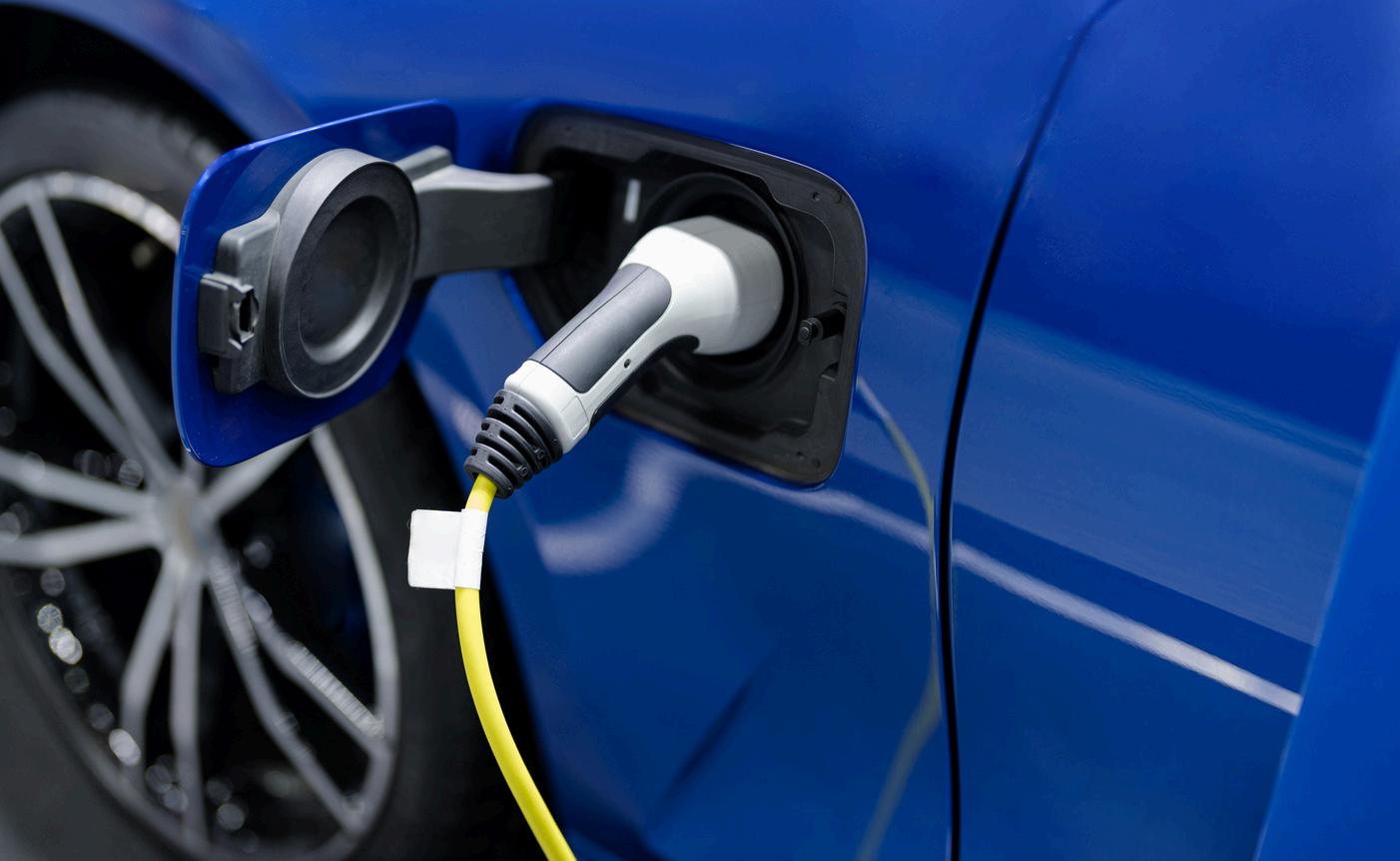










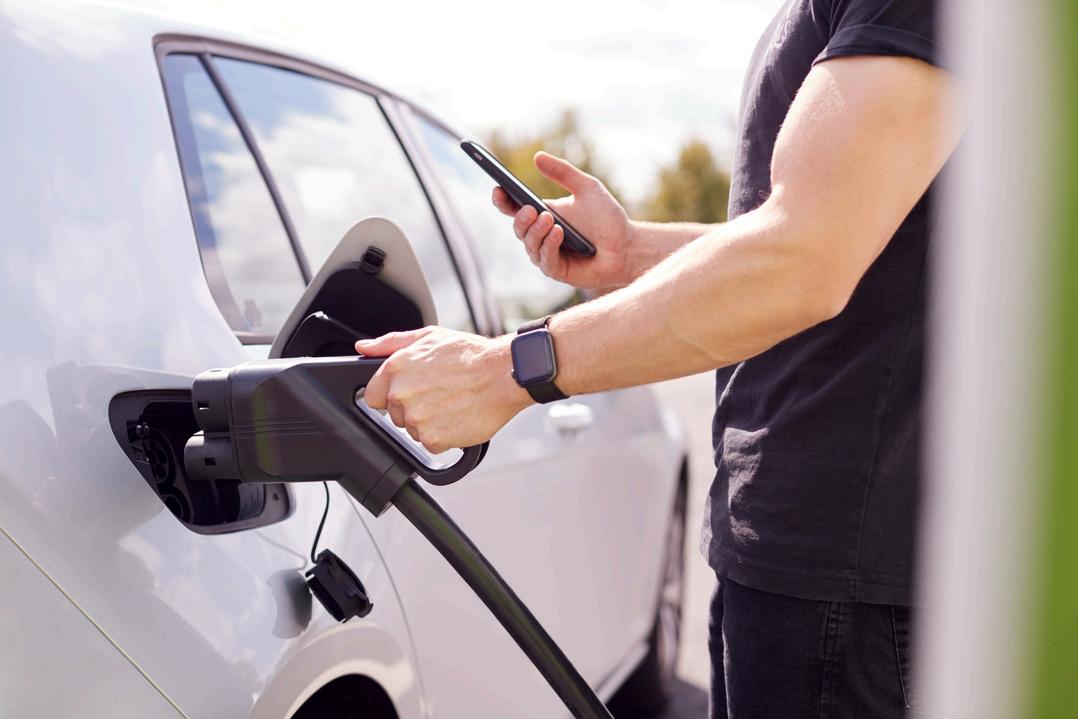
POWER 2 0 2 4 LEADERSHIP SPECIAL C O V E R S T O R Y MUSHROOM STARTUPS Are Mushroom startups in EV scooter space killing the industry growth? INDUSTRY INSIGHTS India's Electric Mobility Landscape Insights from Industry Leaders and Experts EMPOWERING INDIA: THE RISE OF ELECTRIC MOBILITY IN BUSINESS LEADERSHIP P O W E R I N G S M A R T , E L E C T R I C , E F F I C I E N T M O B I L I T Y Celebrating India's Power100 CEOs Fueling E-Mobility Transformation SPECIAL FEATURE






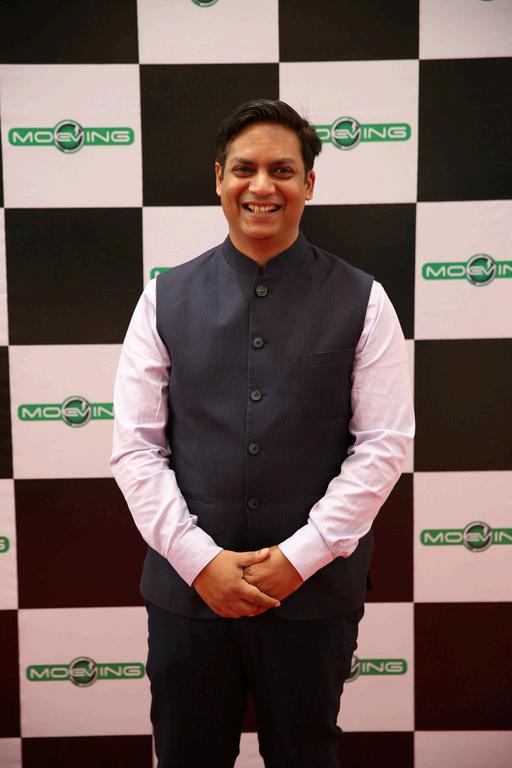





INDUSTRY OPINION 19 30 28 34 18 For EVs to penetrate deeper into Middle India, it’s time to look beyond ownership models Are Mushroom startups in EV scooter space killing the industry growth? Paving the Way Forward: Corporate Leadership in Accelerating Electric Mobility Adoption The Electric Vehicle Revolution: Gearing Up for a Major Shift Investment Opportunities in India's Electric Mobility Sector Navigating the Financial Landscape KNOWLEDGE BYTES 13 39 17 JYOTI MALHOTRA Managing Director Volvo Car India Solutions Pvt. Ltd. 20 VIKASH MISHRA Founder & CEO MoEVing 14 SULAJJA FIRODIA MOTWANI Founder & CEO Kinetic Green Energy & Power Solutions Limited 24 MAXSON LEWIS Founder & CEO Magenta Mobility Sangeeta Sridhar Shalini Tandon advertise@firstviewgroup com Sadhana Shenvekar Vaibhav Enterprises ADVERTISING CIRCULATION PRINTING Firstview Media Ventures Pvt Ltd Sadhana Shenvekar Mohan Gupta editorial@firstviewgroup com Sadhana Shenvekar Mohan Gupta Shruthi Iyer publishing@firstviewgroup com Neha Barangali Radha Buddhadev design@firstviewgroup com PUBLISHING EDITING CONTENT DESIGNING CONTENT IN CONVERSATION EM+RESEARCH THE CHAMPIONS CORNER BUSINESS NEWS Finance & Investment Special 06 37 MARKET STATISTICS 36 40 41 42 CURRENT AFFAIRS SPECIAL STORY TECH STORY POLICY RESEARCH STORY 38 BUSINESS INSIGHTS 04 COVER STORY GRAND MASTERS INDIAAWARDS2024 32 The Role of Public-Private Partnerships in India's Electric Mobility Infrastructure Development
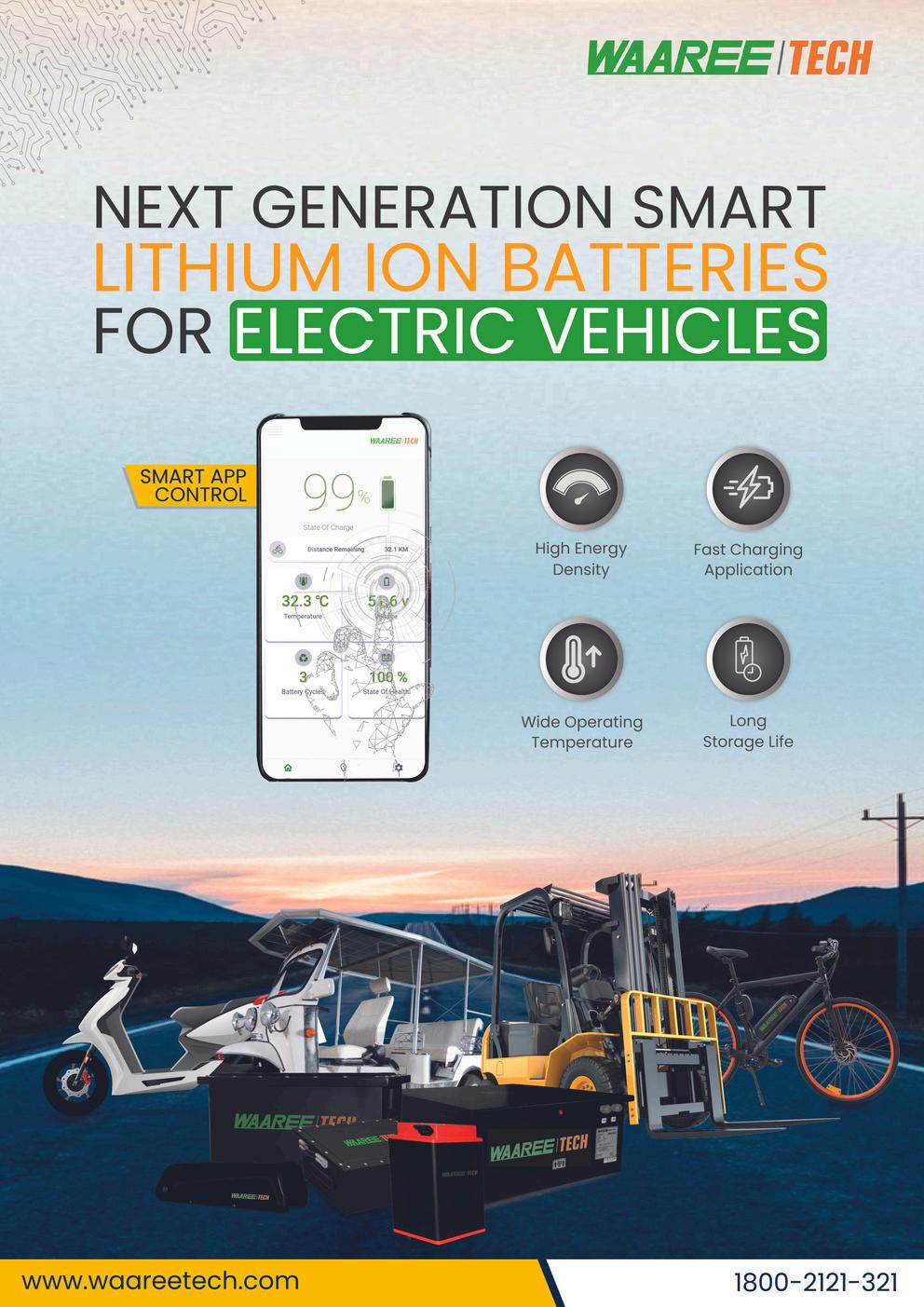
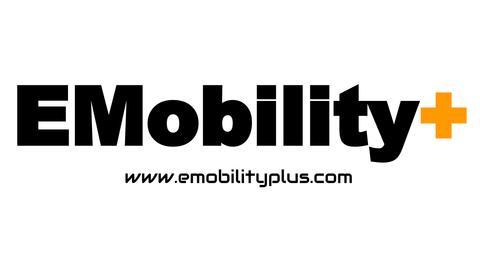
| INDIA LEADERSHIPSPECIAL|MAR-APRISSUE2024 03




India has witnessed a significant shift towards electric mobility, driven by a combination of environmental concerns, government initiatives, and technological advancements As the country grapples with air pollution, traffic congestion, and energy security challenges, electric vehicles (EVs) have emerged as a promising solution to address these issues while promoting sustainable transportation practices This column delve into the rise of electric mobility in business leadership and its transformative impact on the Indian market
The adoption of electric mobility in India's business landscape reflects a growing recognition among corporate leaders of the need to embrace cleaner and greener transportation alternatives. With the government's ambitious goal of achieving 30% electric vehicle penetration by 2030, businesses are increasingly integrating electric vehicles into their fleets as part of their sustainability and corporate social responsibility (CSR) initiatives By transitioning to electric mobility, companies not only reduce their carbon footprint but also demonstrate their commitment to environmental stewardship and sustainable development
One of the key drivers behind the rise of electric mobility in business leadership is the availability of a diverse range of electric vehicle models suited for various applications and industries From electric cars and two-wheelers to electric buses and commercial vehicles, manufacturers are offering an expanding portfolio of EVs tailored to the diverse needs of businesses across sectors This diversity enables companies to select electric vehicles that align with their operational requirements, driving patterns, and budget considerations, thereby facilitating widespread adoption
Moreover, the proliferation of charging infrastructure across India is playing a pivotal role in accelerating the adoption of electric mobility in the business sector With the government's focus on expanding the EV charging network through initiatives such as the Faster Adoption and Manufacturing of Electric Vehicles (FAME) scheme and the National Electric Mobility Mission Plan (NEMMP), businesses now have greater

access to charging facilities, enabling seamless integration of electric vehicles into their operations Additionally, advancements in charging technology, such as fast chargers and battery swapping stations, are further enhancing the convenience and efficiency of EV charging, thereby addressing range anxiety concerns among fleet operators
In addition to environmental benefits, electric mobility offers significant cost savings and operational advantages for businesses Electric vehicles typically have lower fuel and maintenance costs compared to conventional vehicles, resulting in long-term cost savings for fleet operators. Moreover, with the government's incentives and subsidies for electric vehicle adoption, businesses can leverage financial incentives to offset the initial purchase cost of EVs and accelerate their return on investment Furthermore, electric mobility offers opportunities for businesses to enhance their brand image, attract ecoconscious customers, and gain a competitive edge in the market.
Despite the growing momentum behind electric mobility in business leadership, several challenges remain, including infrastructure constraints, technological limitations, and policy uncertainties Addressing these challenges will require concerted efforts from stakeholders across the public and private sectors, including government agencies, industry associations, and electric vehicle manufacturers. Collaboration, innovation, and investment in research and development are essential to overcome barriers and unlock the full potential of electric mobility in India's business landscape
The rise of electric mobility in business leadership represents a paradigm shift towards sustainable and eco-friendly transportation practices in India By embracing electric vehicles and integrating them into their operations, businesses can drive positive environmental impact, enhance operational efficiency, and contribute to India's journey towards a cleaner and greener future With visionary leadership, strategic investments, and collective action, electric mobility has the power to empower India's businesses and pave the way for a more sustainable and prosperous future
www.reallygreatsite.com
| INDIA LEADERSHIPSPECIAL|MAR-APRISSUE2024 04
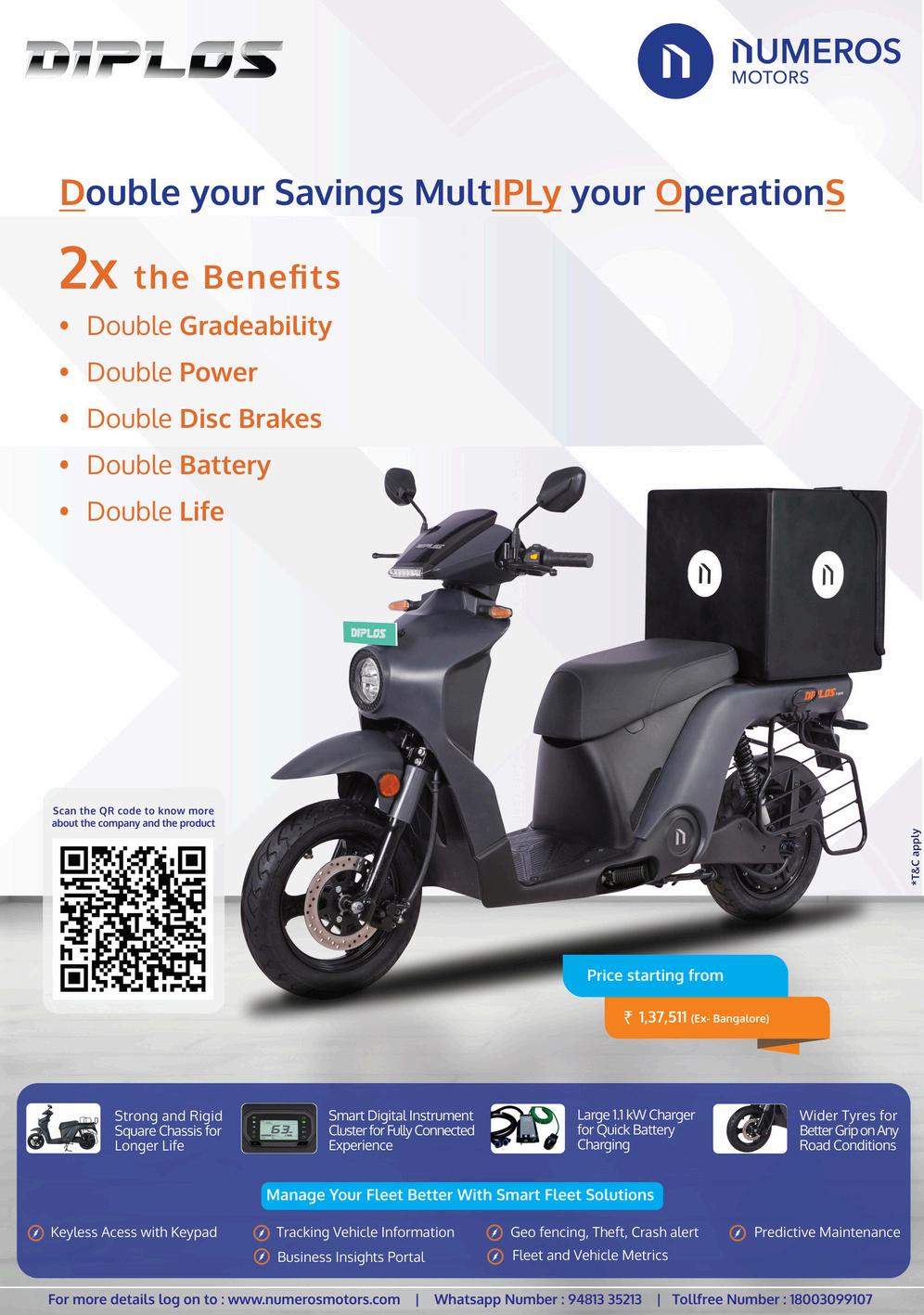

| INDIA LEADERSHIPSPECIAL|MAR-APRISSUE2024 05
BUSINESS NEWS
FINANCE & INVESTMENT SPECIAL

INVESTMENT
NexGen Energia Ventures Into EV Manufacturing With ₹1,000 Crore Investment In Jammu And Kashmir
NexGen Energia, a sustainable energy solutions company, announced its plans to invest ₹1,000 crore in establishing an electric vehicle (EV) manufacturing facility in Jammu and Kashmir The Noida-headquartered firm revealed that it is currently engaged in discussions with local authorities in the Union Territory and is actively seeking a 100-acre plot of land, either in the Kashmir Valley or in the Kathua industrial area This decision follows closely on the heels of NexGen Energia’s recent announcement of a ₹3,000 crore investment for the establishment of a Compress Bio Gas (CBG) plant in Gujarat
TapFin Raises $4 Million From Elevar Equity To Fuel India’s Sustainable Future With A Focus On Clean Transportation
Revfin And SUN Mobility Forge Alliance To Fuel Electric Vehicle Adoption With Innovative Financing Solutions And Cutting-Edge Battery Technology
SUN Mobility and Revfin join forces to accelerate electric vehicle (EV) adoption in India Revfin offers financing for 2-wheelers and 3-wheelers under SUN Mobility's Battery-as-a-Service (BaaS) model. Utilizing AI tools, Revfin provides quick loan approvals within 16 minutes and disburses funds within 24 hours. This partnership aims to deploy nearly 100,000 vehicles over two years, promoting sustainable transportation solutions
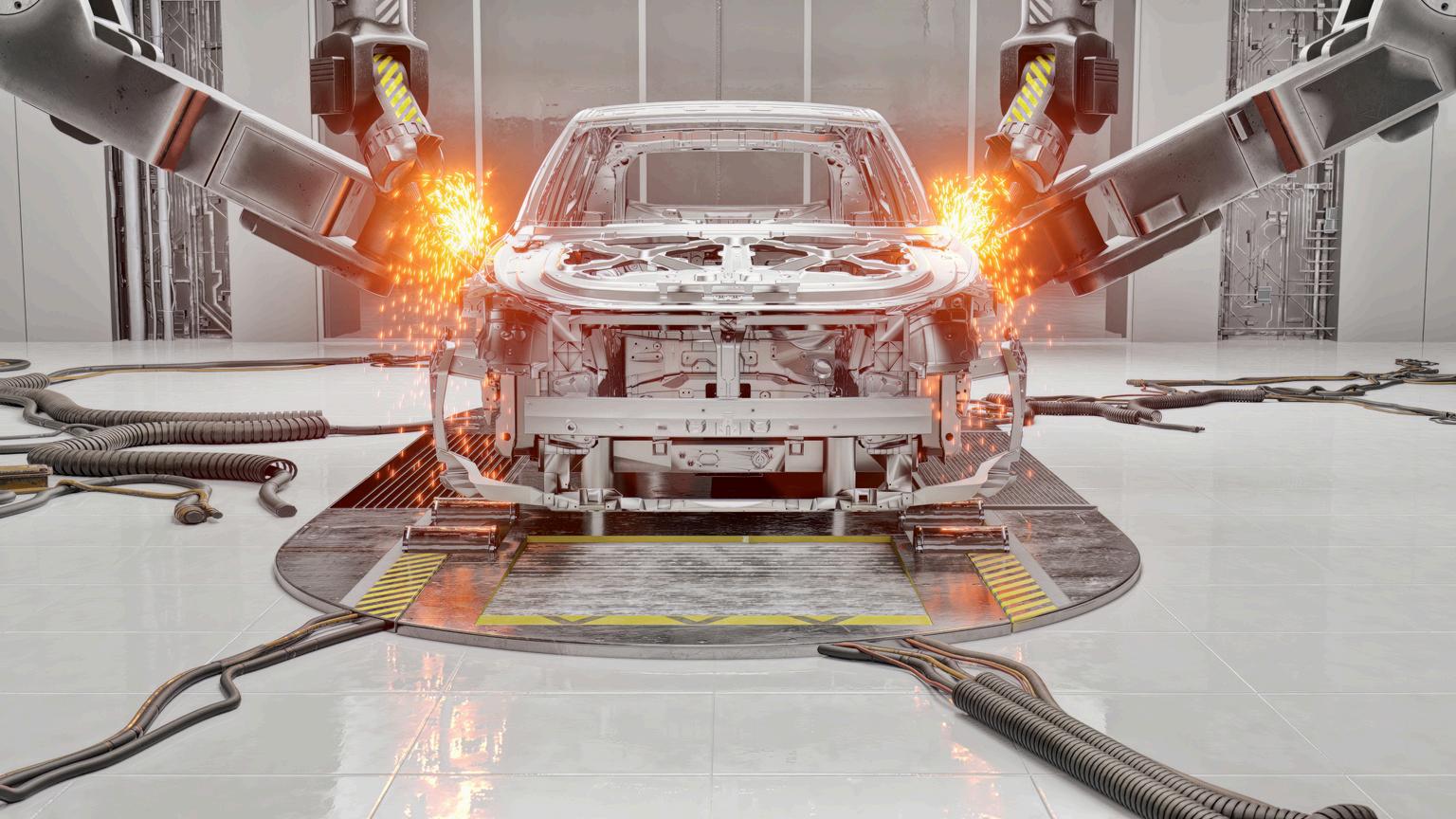
TapFin, a comprehensive sustainability platform driven by technology, has secured $4 million in initial funding from Elevar Equity, an investment firm with a presence in India and Latin America. This capital injection will expedite TapFin’s ambition to emerge as India’s premier sustainability platform, initially focusing on clean transportation while branching out into other sustainability sectors such as solar energy and other renewable technologies, as per a company announcement The funding will be utilized by TapFin to propel its expansion strategies and market penetration, enhance its technological infrastructure and data capabilities, attract topnotch talent, and foster product innovation


MAR-APR 2024
| INDIA LEADERSHIPSPECIAL|MAR-APRISSUE2024 06
ON THE ROAD TO SUSTAINABILITY INNOVATIVE PARTNERSHIPS
DRIVE EV GROWTH
Driving Sustainable Mobility: Greaves Finance and Muthoot Capital Forge Co-Lending Partnership to Boost Electric TwoWheeler Financing In India
Greaves Finance Limited, a non-banking financial company (NBFC) and a subsidiary of Greaves Cotton Ltd has announced a groundbreaking partnership with Muthoot Capital Services Limited (MCSL), a rapidly growing NBFC and part of the Muthoot Pappachan Group Together, they are launching a co-lending arrangement with a total deal size of up to ₹150 crores ($18 million) to expand the availability of electric two-wheeler financing solutions across India.
Inflection Point Ventures Invests ₹2 Crores In Pumpumpum, Fintech Mobility Startup, To Propel Expansion And Innovation In PreOwned Car Leasing
Inflection Point Ventures has injected ₹2 Crores into Pumpumpum, a Fintech mobility startup, aimed at fostering its operational growth, geographical expansion, technological enhancements, marketing initiatives, and overall organizational development Founded in 2018 by Tarun Lawadia, Founder & CEO, and Sameer Kalra, Co-Founder & CGO, both ex-IITians and senior leasing professionals, Pumpumpum specializes in offering affordable and flexible mobility solutions. Pumpumpum distinguishes itself in the Fintech mobility sector through its innovative B2B2C & B2C pre-owned car leasing model, which prioritizes consumer convenience, flexibility, and affordability


Atul Auto Limited has announced a strategic investment of ₹19,99,98,560 in its subsidiary, Atul Greentech Private Limited (AGPL) The investment, made through a subscription of equity shares on a rights basis, was completed on March 6, 2024 AGPL, incorporated on January 28, 2020, specializes in the electric three-wheeler business and produces electric vehicle components, including battery packs, battery management systems, and chargers. The subsidiary’s turnover for the fiscal year 2022-23 was ₹80 Lacs. With this investment, Atul Auto Limited now holds a total investment of ₹29 99 Crore in AGPL, owning an 80% stake in the subsidiary
ELECTRIC DREAMS PIONEERING THE SHIFT TO CLEAN TRANSPORTATION

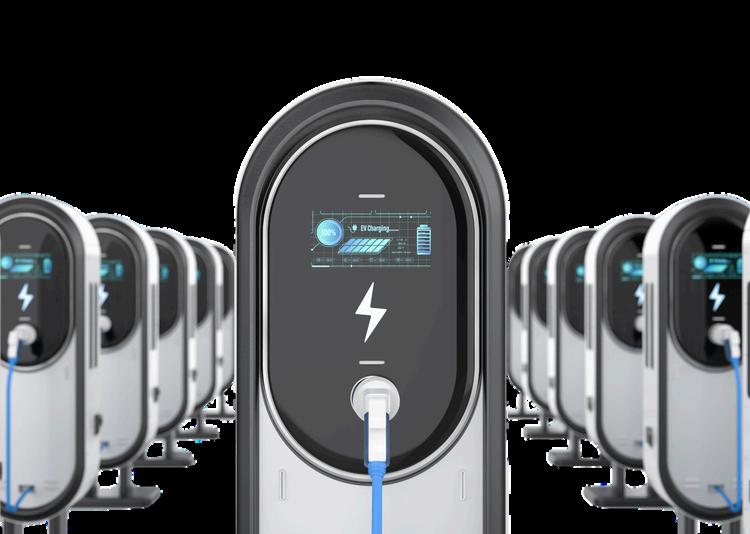

Automotive Drives Forward With ₹4.75 Crore Seed Funding Boost
Attron raised ₹4.75 crore in its Seed funding round, led by Anicut Capital and co-led by Venture Catalysts, with participation from Pontaq VC and Yashovardhan Shah (Angel investor) The funds will be utilized to advance Attron’s mission of transforming electric mobility through cutting-edge technology and innovation The investment underscores Venture Catalysts’ commitment to fostering innovation and advancing technology in the electric mobility sector
IntrCity, a leading inter-city mobility platform in India offering train and bus services, has secured ₹37 crore in a Series C funding round led by Mirabilis Investment Trust Existing investors, including Nandan Nilekani’s family trust (NRJN), Omidyar Network India, and Ujamaa Ventures, also participated in the funding In 2024, IntrCity formed partnerships with over 30 bus operators, covering more than 650 Tier 2/Tier 3 routes from its 6 hubs across India
| INDIA LEADERSHIPSPECIAL|MAR-APRISSUE2024 07
IntrCity Secures ₹37 Crore In Series C Funding To Boost Inter-City Mobility Services
Attron
Atul Auto Limited Invests ₹19.99 Crore In Subsidiary Atul Greentech Private Limited
BUSINESS NEWS FINANCE & INVESTMENT SPECIAL | MAR-APR 2024
POLICY
Delhi Cabinet Extends Electric Vehicle Policy Until June, Ensuring Incentives And Subsidies
The Delhi Cabinet has approved an extension of the Electric Vehicle (EV) policy until June of this year, ensuring the continuation of current incentives and subsidies According to a statement from the Delhi government, vehicles purchased from January 1 onwards will be eligible for the benefits provided under this extension The policy will be operational until either June 30 or the announcement of Delhi EV Policy 2 0, whichever occurs earlier During a Cabinet meeting, the choice to prolong the policy was finalized, while inputs from diverse stakeholders are under review for potential integration into the forthcoming Delhi EV Policy 2 0
Government Of India Unveils
Ambitious Scheme To Accelerate EVehicle Manufacturing
India unveils a groundbreaking scheme to attract global electric vehicle (EV) manufacturers, aiming to bolster domestic manufacturing and revolutionize the automotive sector With a minimum investment requirement of INR 4150 Crore, companies must establish manufacturing facilities within 3 years, achieve a 50% domestic value addition (DVA) in 5 years, and benefit from customs duty concessions The initiative aims to reduce oil imports, trade deficits, and air pollution while promoting indigenous manufacturing, technological innovation, and sustainable development in the EV industry
Audi Official Applauds India’s New EV Policy, Foresees Surge In Local Production Of Premium Electric Cars
Audi AG's Andre Konsbruck lauds India's new electric vehicle policy, aiming to boost local production of high-end EVs The policy offers import duty concessions to firms setting up manufacturing units, attracting global players like Tesla Audi India foresees the premium segment growing to 100,000 units annually by 2030 and is considering local manufacturing of battery-electric vehicles to align with global trends
India Launches Electric Mobility Promotion
Scheme 2024 To Accelerate EV
Adoption
In a significant move towards promoting electric vehicles (EVs) across the nation, the Ministry of Heavy Industries, Government of India, has introduced the Electric Mobility Promotion Scheme 2024 (EMPS 2024). Approved by the Department of Expenditure, Ministry of Finance, this scheme aims to accelerate the adoption of EVs in the country With a total outlay of ₹500 crore for four months, starting from April 1, 2024, until July 31, 2024, EMPS 2024 primarily targets the faster adoption of electric two-wheelers (e-2W) and threewheelers (e-3W) The scheme seeks to provide a significant boost to green mobility and the development of the EV manufacturing ecosystem in India


Karnataka Government Revokes Electric Bike Taxi Scheme Citing Safety And Legal Concerns
The Karnataka government has revoked the Electric Bike Taxi Scheme 2021, citing violations of the Motor Vehicle Act, concerns about “deteriorating law and order,” and safety issues for women The decision follows objections from autorickshaw unions The transport department, in a notification, highlighted the illegal use of non-transport two-wheelers by certain app-based organizations and the resulting conflicts affecting law and order. Ola, Uber, and Rapido offer bike-taxi services in the state, with Rapido being the market leader However, Rapido clarified that the government’s notification does not impact its bike taxi operations in Karnataka, and it will continue serving customers without disruptions The government had earlier expressed intentions to address illegal bike taxis but awaits the resolution of ongoing cases involving Rapido in the Karnataka High Court.
Karnataka Approves New Law Increasing Vehicle Registration Fees
The Karnataka government has approved a new law aimed at increasing vehicle registration fees in the state Governor Thaawarchand Gehlot gave his approval to the Karnataka Motor Vehicle Taxation (Amendment) Act, 2024, on March 6, and it was published in the Gazette Under the new legislation, an additional 3 percent fee will be imposed on transport vehicles, with the proceeds directed towards the Karnataka Motor Transport and Other Allied Workers Social Security and Welfare Fund. Furthermore, the government now has the authority to impose a lifetime tax on electric vehicles (EVs) Electric cars, jeeps, omnibuses, or private service vehicles costing more than ₹25 lakh will be subject to a 10 percent tax on their registration cost This marks the first instance of such a tax being levied on electric vehicles in the state
| INDIA LEADERSHIPSPECIAL|MAR-APRISSUE2024 08
BUSINESS NEWS FINANCE & INVESTMENT SPECIAL | MAR-APR 2024
THIN TANK
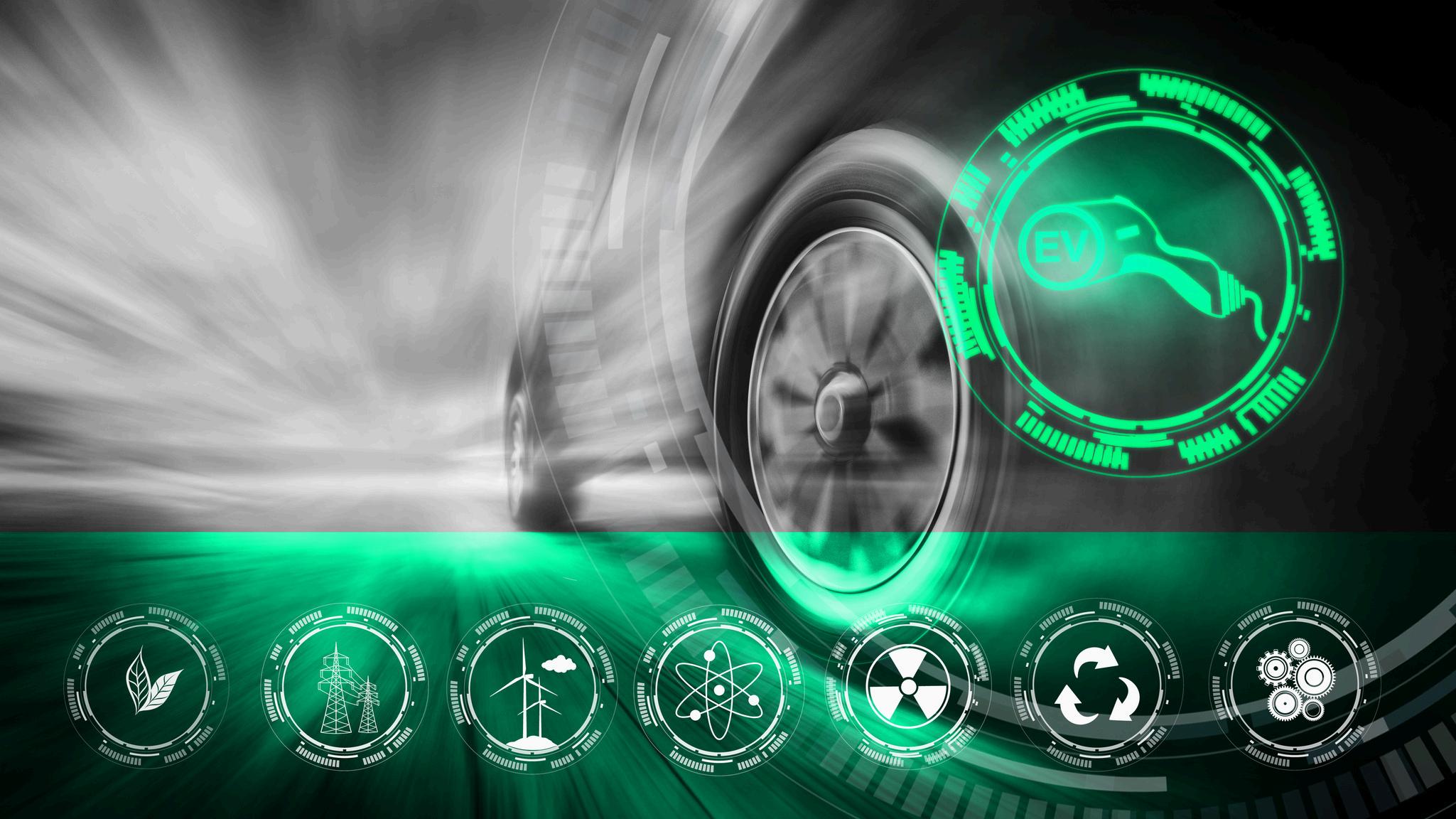
CHOOSING CLEAN INDIA'S ECO FRIENDLY TRANSPORTATION SOLUTIONS
India Sets Ambitious Goal: 30% Electric Vehicle Sales By 2030, Says Report
India's automotive landscape is shifting towards alternative fuels, with petrol vehicle sales declining from 86% to 76% and diesel from 12% to 11% between 2020 and 2023 Electric vehicles (EVs), compressed natural gas (CNG), liquified petroleum gas (LPG), and hybrids are gaining popularity, though infrastructure challenges persist. EVs offer the lowest lifetime cost, with government incentives driving demand. However, challenges like range anxiety hinder widespread adoption Government efforts to expand charging and fueling infrastructure aim to accelerate the transition, with EVs and CNG poised to challenge traditional fuels by 2030

India Revs Up EV Loans: Report Unveils Strategies To Fast-Track Electric Two- And Three-Wheeler Financing
India's electric two-wheeler and threewheeler market soared in 2023, surpassing 1.5-million-unit sales. However, a major hurdle remains access to financing for EVs. To tackle this, SIDBI, NITI Aayog, and RMI released the "De-Risking Lending for a Brisk EV Uptake" report It proposes six de-risking measures to make EV loans more accessible, including tailored financial products, standardization for streamlining, and institutionalized risk mitigation By implementing these recommendations, India aims to accelerate its electric mobility transition, aligning with its climate goals of achieving net-zero emissions by 2070.
India’s Push For EV Manufacturing Could Spur Influx Of Chinese Auto Firms: Report
India's push for domestic electric vehicle (EV) manufacturing could attract a surge of Chinese automotive companies, states a report by the Global Trade Research Initiative With China's advanced EV technology and state support, Indian reliance on Chinese auto components is expected to increase, potentially leading to Chinese firms dominating the Indian EV market Notably, Chinese automakers like SAIC Motor and BYD Auto have already penetrated the Indian market The report stresses the need for cautious management of risks associated with reliance on foreign manufacturers, while India's EV policy, including reduced import duties, may further entice Chinese investment.
| INDIA LEADERSHIPSPECIAL|MAR-APRISSUE2024 09 BUSINESS NEWS FINANCE & INVESTMENT SPECIAL | MAR-APR 2024
TENDER
MAHAPREIT Seeks Proposals For Setting Up 350 Electric Vehicle Charging Stations In Maharashtra
JBM Auto Limited Secures Tender For 1,390 Electric Buses Under PM-eBus Sewa Scheme
CESL Issues Tender For Procurement Of 3,132 Electric Buses Under PM-eBus Sewa Initiative
CESL Invites Bids For Management Of Public EV Charging Stations In Noida
CESL Launches 5-Year Nationwide Lease Contract For 1,000 Electric Cars
Convergence Energy Services Limited (CESL) Announces Open Tender for Empanelment of Charge Point Operators
CESL/EESL Issues Tender For Managed Service Partner For Public EV Charging Stations In Delhi
Convergence Energy Services Limited (CESL) Announces Open Tender for Empanelment of Charge Point Operators

Mahindra And Adani Total Energies Join Forces To Boost Electric Vehicle Adoption In India
Mahindra & Mahindra has announced the signing of a MoU with Adani Total Energies E-Mobility Limited (ATEL), a wholly owned subsidiary of Adani Total Gas Limited This partnership marks a pivotal step towards building a greener and more sustainable future, aligning with India’s ambitious climate action goals The MoU between Mahindra and ATEL outlines a roadmap for the establishment of an expansive EV charging infrastructure across the country Additionally, the collaboration will involve the rollout of e-mobility solutions to facilitate seamless access to the charging network for customers, encompassing discovery, availability, navigation, and
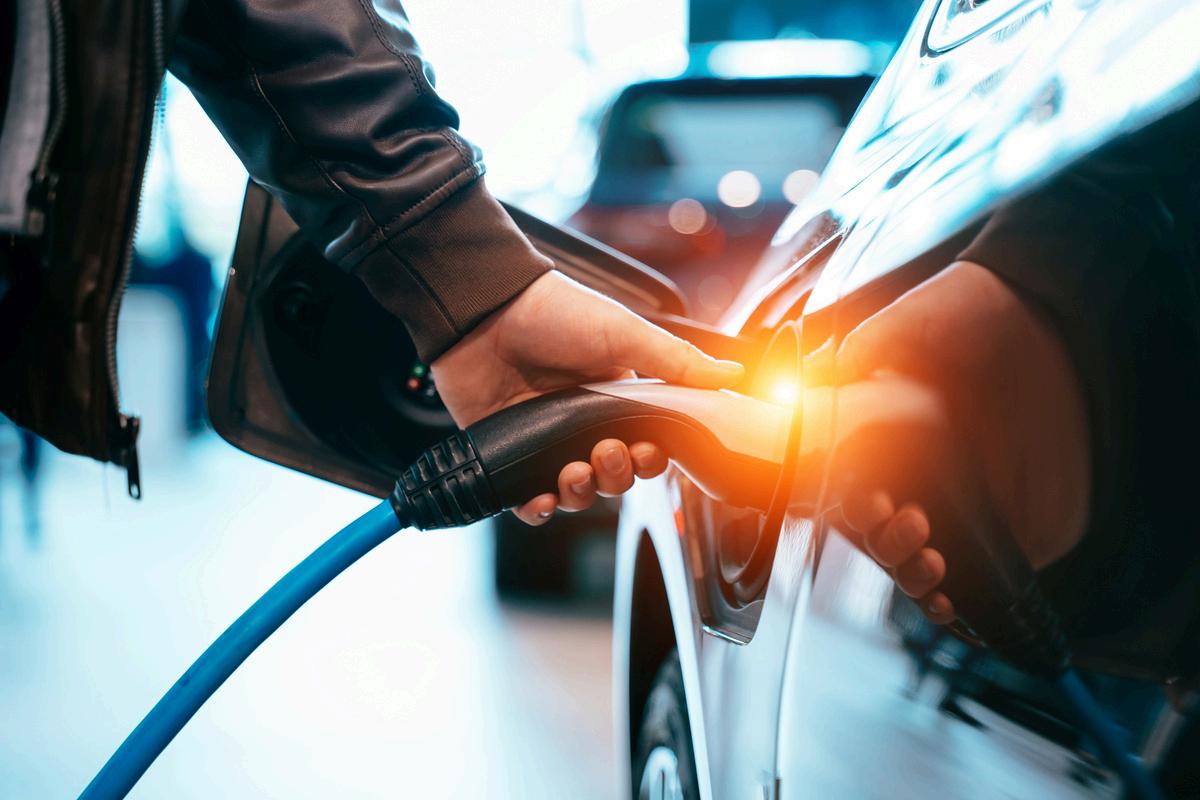

India: Pioneering A bility With SAIC Motor p Joint Venture
g with the US$23 billion ’s leading conglomerate nd B2C sectors, have usiness roadmap for their nture – JSW MG Motor s collaboration heralds a y in India, capitalizing on pportunities emerging in g automotive sector The italizes on SAIC Motor’s erience and technical ned with JSW Group’s owess in India. JSW MG to introduce advanced nd new-age mobility nhancing local sourcing upply chain
Statiq And GLIDA Forge Strategic Partnership To Drive Electric Vehicle Charging Infrastructure In India
Statiq and GLIDA (formerly known as Fortum Charge & Drive India), two prominent players in India’s electric vehicle (EV) charging sector, have forged a partnership to drive the adoption of electric vehicles across the nation This groundbreaking collaboration aims to revolutionize the EV charging infrastructure in India, offering enhanced convenience, accessibility, and empowerment to Passenger Electric Vehicle (PEV) users nationwide Under this partnership, all public chargers within GLIDA’s charging network can now be accessed through the Statiq App, providing users with visibility and seamless access to GLIDA’s entire charging network, including existing and upcoming chargers.
Ashok Leyland And Minus Zero Forge Strategic Alliance To Pioneer Autonomous Trucking In India
Ashok Leyland has announced a strategic partnership with Minus Zero, India’s foremost autonomous driving technology startup. This long-term collaboration aims to deploy autonomous solutions at scale, setting the stage for a transformative shift in the commercial vehicle industry The alliance’s primary focus will be on developing autonomous trucking solutions tailored for ports, factory operations, and corporate campuses Future endeavors include expansion into hub-to-hub applications and long-haul trucking, subject to evolving regulatory frameworks surrounding autonomous driving.
| INDIA LEADERSHIPSPECIAL|MAR-APRISSUE2024 10 BUSINESS NEWS FINANCE & INVESTMENT SPECIAL | MAR-APR 2024
TENDER

Revfin Partners With Maharashtra Government’s Social Justice Department For PM Solar2EV Initiative
Revfin partners with the Government of India for a transformative solar energy and electric vehicle initiative in Maharashtra At the 'PM Solar2EV' Stakeholder meet, Revfin showcased its success in empowering women e-auto drivers and received support from Union Minister Shri Ramdas Ji Athawale. Intending to finance 2 million electric vehicles nationwide in five years, Revfin aims to accelerate India's transition to sustainable mobility and financial empowerment
Okaya EV Chargers Partne HPCL For 600 EV Charger Deployment
Okaya EV Chargers secures a c Hindustan Petroleum Corporat (HPCL) for 600 EV chargers includes 60KW CCS2 Dual Gun CCS2 Dual Gun chargers, accessibility nationwide Equ various protective features, the prioritize user safety and en protection Okaya EV Chargers, with certifications conforming to ISO standards, aims to facilitate seamless electric vehicle

Tata Motors Launches Next-Gen Green-Fuel Commercial Vehicles For Tata Steel, Pioneering Sustainable Mobility Solutions
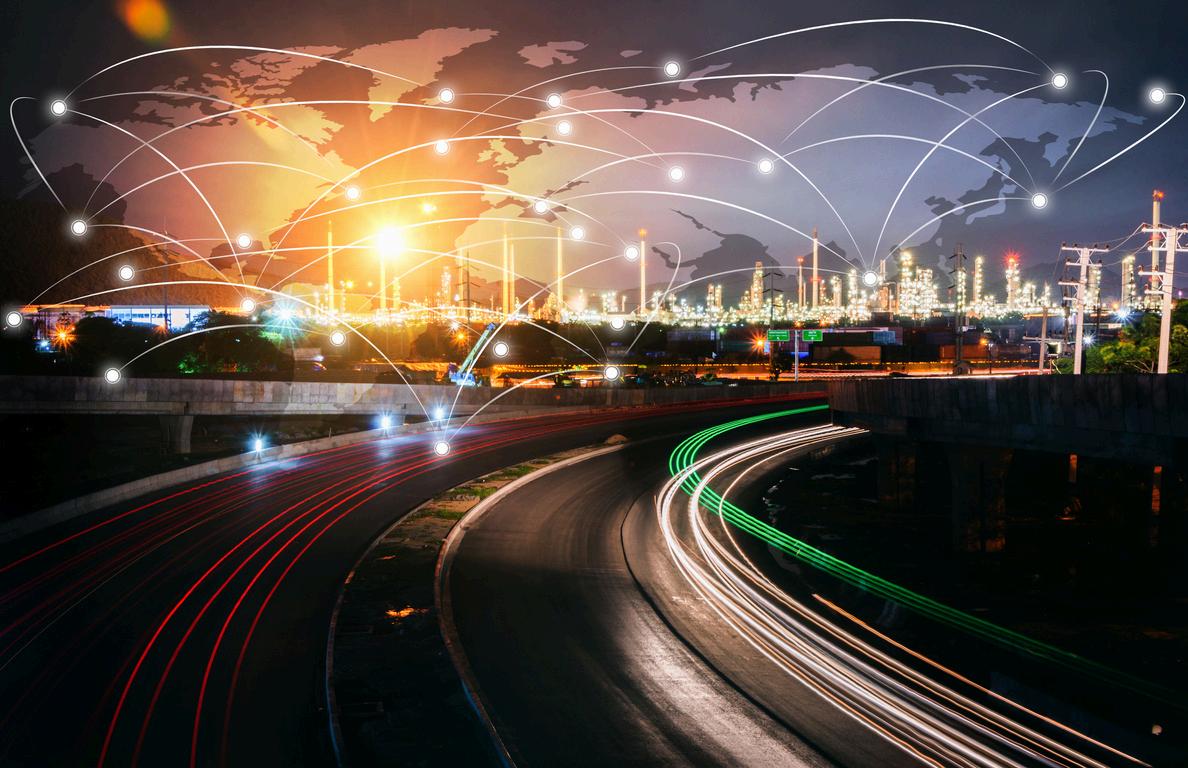

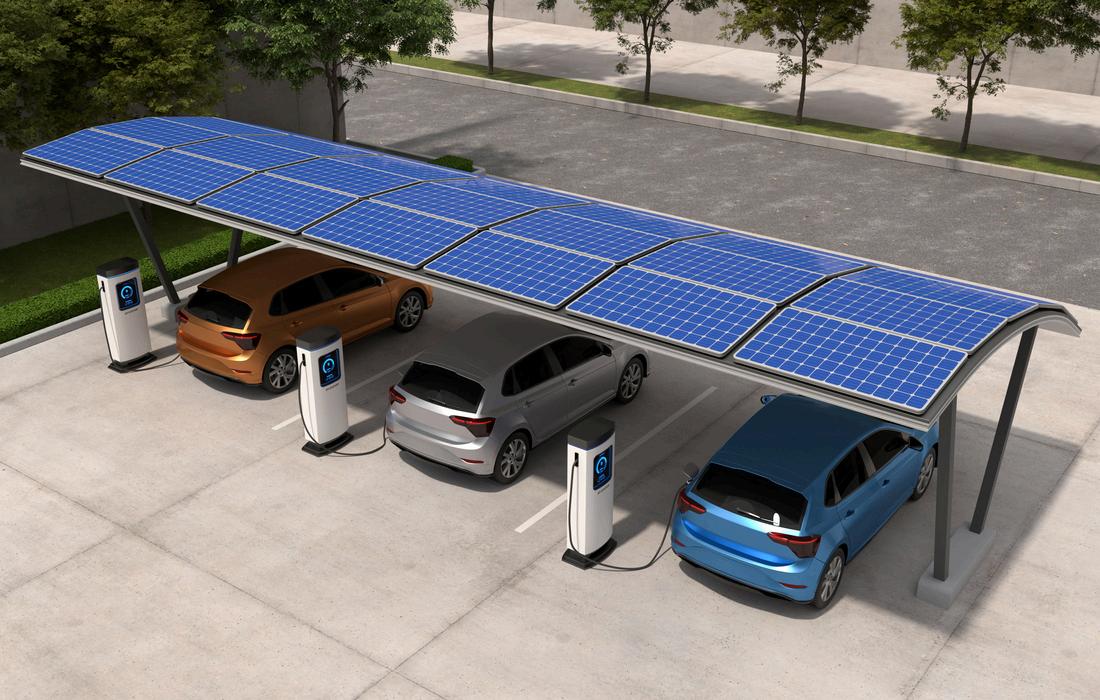

Tata Motors initiated the handover of its xt-generation environmentally-friendly mmercial vehicles to Tata Steel This fleet, mprising Prima tractors, tippers, and the tra EV bus, is powered by both Liquefied atural Gas (LNG) and battery electric chnologies The ceremonial flag-off took ace in Jamshedpur as part of the Tata oup’s Founder’s Day celebration, with Mr Chandrasekaran, Chairman of Tata Sons, esiding over the event. Key attendees cluded Mr. T V Narendran, CEO & anaging Director of Tata Steel and Mr
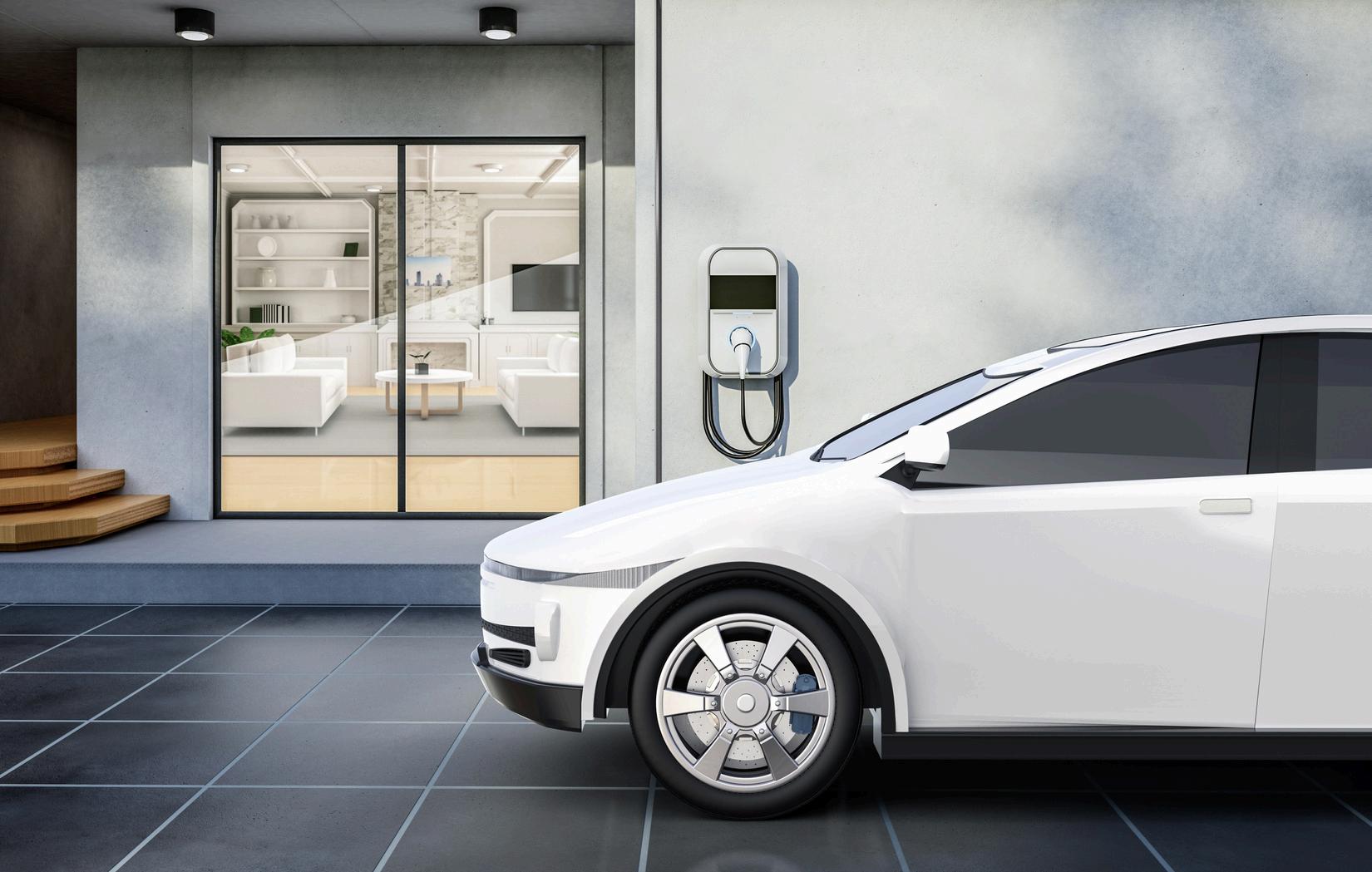
| INDIA LEADERSHIPSPECIAL|MAR-APRISSUE2024 11 BUSINESS NEWS FINANCE & INVESTMENT SPECIAL | MAR-APR 2024
OTHER
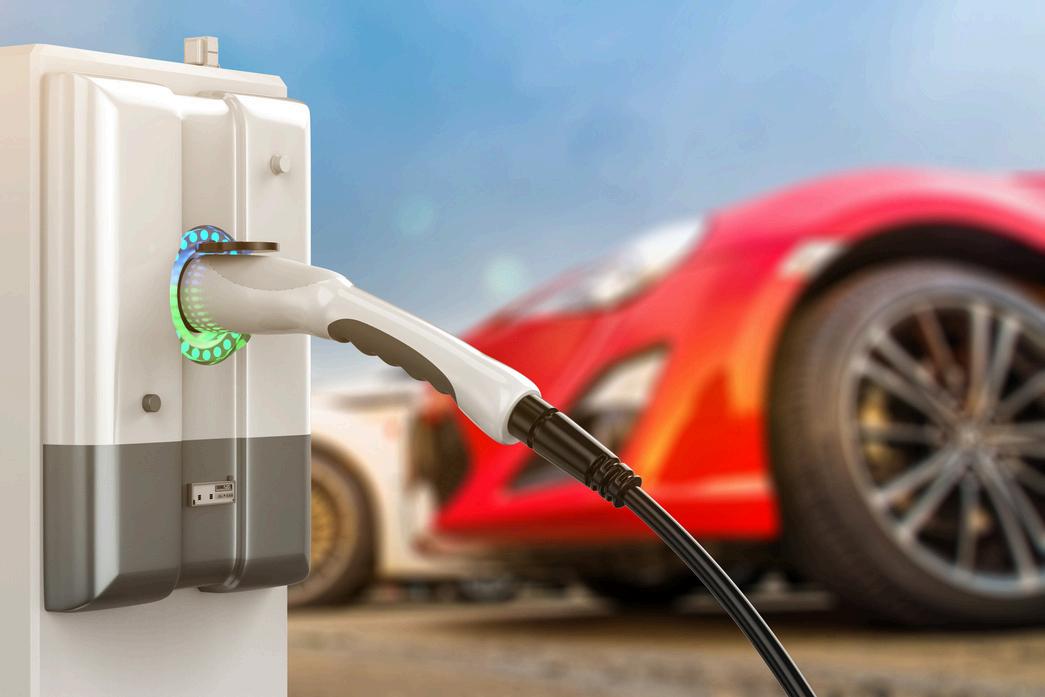
Servotech Power Systems Secures Contract To Establish 20 EV Charging Stations In Nashik, Accelerating India’s Electric Vehicle Revolution
Servotech Power Systems Ltd has secured a significant contract from the Nashik Municipal Corporation (NMC) Under this agreement, Servotech will provide, commission, and construct 20 EV charging stations across the Nashik Municipal Corporation area The primary aim of this contract is to address the growing demand for accessible charging facilities for electric vehicles, facilitating the state’s transition towards sustainable transportation solutions Servotech will manage the installation, supply, commissioning, construction, and maintenance of these EV charging stations, catering to various vehicles and significantly enhancing Nashik’s EV charging network
Adani Total Energies To Develop Electric Vehicle Charging Stations Along Uttar Pradesh Expressways
Adani Total Energies E-Mobility Ltd has been approved by the board of the Uttar Pradesh Expressways Industrial Development Authority (UPEIDA) to construct charging infrastructure for electric vehicles along four expressways in Uttar Pradesh. This collaborative endeavor seeks to establish 26 charging stations along these expressways, facilitating convenient access for electric vehicle drivers The charging cost is set at Rs 9 74 per kilowatthour Last year, UPEIDA outlined requirements, offering a 10-year lease f 2,000 sqft space along the Agra-Luckn Bundelkhand, Purvanchal, and Gorakh Link expressways Among the technically eligible contenders, Adani T Energies E-Mobility Ltd was selected as preferred company.

Olectra Greentech Secures Contract To Supply 10 Electric Buses To Assam State Transport Corporation
Olectra Greentech Limited secures a significant contract from Assam State Transport Corporation (ASTC) for the supply of 10 Electric Buses within India Valued at approximately Rs 15 14 Crores, the contract is expected to be fulfilled within 90 days. P. Hanuman Prasad, Company Secretary, expresses enthusiasm, highlighting the company's commitment to sustainable transportation solutions
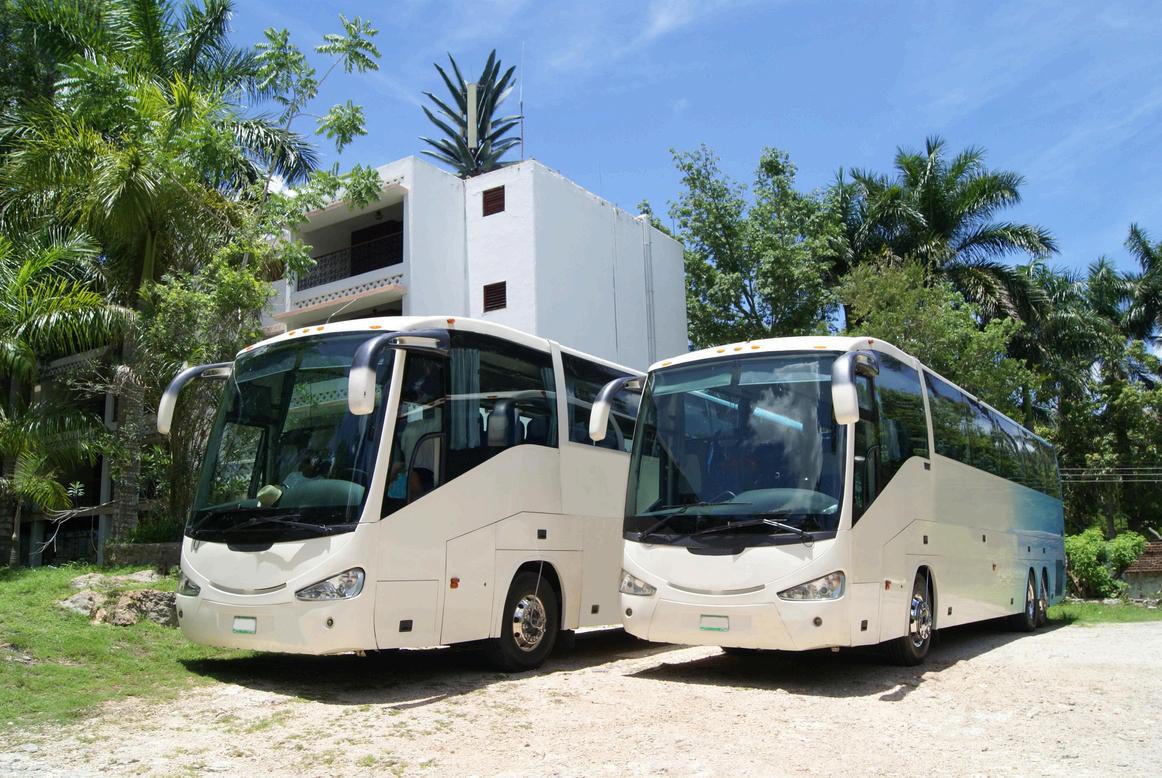
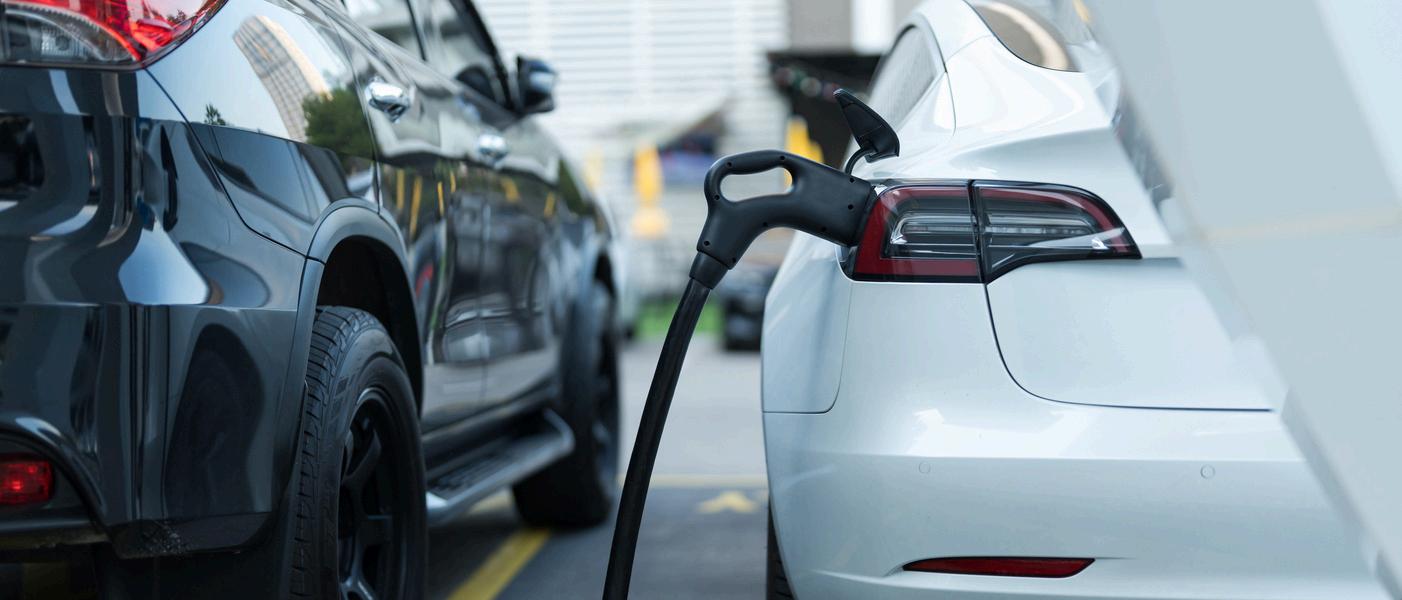
Servotech Lands 1400 DC Fast EV Charger Order Valued At ₹111 Crore From IOCL And OEMs
Servotech Power Systems Ltd has clinched a significant deal to supply 1400 DC fast EV chargers to Indian Oil Corporation Limited (IOCL) and other EV charger OEMs Valued at ₹111 crores, the order encompasses two charger variants of

60 kW and 120 kW. Servotech will undertake the manufacturing, supply, and installation of these chargers nationwide, with a focus on deploying them at Indian Oil petrol pumps and other designated locations This strategic move is expected to accelerate the adoption of decarbonized mobility and address the evolving requirements of the EV charging infrastructure
Recordent Partners With iFEVA to Revolutionize Credit Management In India’s Electric Vehicle Industry, Bolstering Financial Growth And Efficiency
Recordent Pvt Ltd has entered into an MoU with the International Federation of Electric Vehicle Association (iFEVA), a prominent non-profit organization dedicated to fostering the growth of the electric vehicle (EV) sector in India This collaboration signifies Recordent’s commitment to offering its advanced credit, collections, and recovery solutions to member businesses of iFEVA, marking a significant advancement in the EV industry’s development The partnership aims to establish a robust ecosystem of creditworthy sellers and buyers within the EV sector, enabling businesses to focus on their overall growth trajectory
| INDIA LEADERSHIPSPECIAL|MAR-APRISSUE2024 12 BUSINESS NEWS FINANCE & INVESTMENT SPECIAL | MAR-APR 2024









Celebrating Women Driving EV Progress










omen are not just icons; they are beacons tion Their stories remind us that when determination, and expertise come there's no limit to what we can
MD & CEO Mahi d L Mil M R Pe Ec N Le Mo OM Head of Operations Revfin Services PVT.
COO
EV
Electric VehicleBusiness and Strategy Audi India
Suman Mishra
Khushbu Shah
Mindra
Pvt. Ltd. Swarana Biyani Lead
Founder & CEO Kinetic Green Energy & Power Solution Ltd
PoweredBy
Sulajja Firodia Motwani
Payal Maini
Mobility+
achieve.”
REVOLUTIONIZING TRANSPORTATION: INSIGHTS INTO THE ELECTRIC MOBILITY LANDSCAPE

SULAJJA FIRODIA MOTWANI
Founder & CEO
Kinetic Green Energy & Power Solutions Limited
KEY HIGHLIGHTS
Establishment of Kinetic Green Energy with a vision to democratize electric mobility in India
Targeting high-volume segments and bridging the price gap between electric and traditional vehicles
Collaborating with Tonino Lamborghini to redefine luxury and sustainability in mobility solutions
What inspired you to venture into the electric vehicle sector, and how do you envision the future of electric mobility in India?
Commitment to a sustainable future and a desire to take ahead meaningfully, the great legacy of my family to service to society – that's what drove me to establish Kinetic Green. We saw the challenges –rising pollution, emission norms, and a constant struggle for fuel security and we knew that automobile technology’s future will now have to be green and sustainable EV was the obvious answer!
We set up Kinetic Green in 2014 with a vision to bring “green mobility to the masses” and create a global leader in light electric mobility, specializing in Light mobility- electric three-wheelers, twowheelers, and golf carts
Having established a strong foundation of R&D and a solid EV product range, we are now on a mission to expand our reach and scale up our presence across India and globally With a target of Rs 1000 crores in revenue next year, we are taking our EVs deep into India- not just in the big cities but also in smaller towns and rural areas Our approach to the electric vehicle market is to provide innovative, reliable, long-lasting, and affordable personal e-mobility solutions, aiming to bridge the gap between public transport and personal mobility for a wider audience Our new ELuna is a testament to this commitment!

With our passion for electric vehicle technology, we have established ourselves as one of India's largest electric two and three-wheeler companies We are creating jobs, attracting the brightest young minds, and fostering a diverse workforce- with an emphasis to bring more women into the mobility space I'm particularly proud of our commitment to women in this industry – a minimum of 25% female representation on our assembly line, and an unwavering dedication to developing products like the E-Luna, designed to appeal to a wider female audience
The company's success can be attributed to its platform approach, which allows it to develop multiple variants of electric vehicles on the same chassis, catering to various segments and markets
Kinetic Green’s vision is to create a brand that continually evolves with changing market dynamics, offering affordable, reliable commuting solutions for the longterm period
What strategies made Kinetic Green a leader in electric vehicles, and what sets them apart in the market?
Our success in the electric two- and threewheeler market stems from a well-rounded strategy that capitalizes on focus on R&D, on make in India, and creating well designed EV’s that our customers love! We are also working on a collaborative approach to promote e-mobility by forging key partnerships and aiming to provide a total solution to our customers, helping them adopt this new technology
Firstly, Kinetic Green strategically targeted the high-volume electric twowheeler (E2W) and electric threewheeler (E3W) segments, which make up 80% of India's annual vehicle sales This focus allowed them to become a leader in these key areas.
Secondly, the company recognized the price gap between electric and traditional gasoline vehicles as a barrier to adoption They understand that as E2W volumes rise, production costs will decrease, eventually eliminating the price difference and driving mass adoption
Thirdly, we identified battery swapping and battery as a service as a game-changer and convenient alternative to traditional charging
And to solidify our lead, we partnered with e commerce giants like Big Basket We delivered a fleet of our game-changing ELuna scooters, perfectly suited for last-mile deliveries It's a win-win – they get a sustainable solution, and we showcase the power of Kinetic Green. We even launched a special program called E-Luna Fleets to cater to the booming gig economy Similarly, the Kinetic Safar Jumbo electric three-wheeler – another sustainable lastmile hero
| INDIA LEADERSHIPSPECIAL|MAR-APRISSUE2024 14 IN CONVERSATION
We also offer value-added services through key partnerships to enhance customer experience. From the comprehensive IT platform, KG Konnect, featuring GPS tracking and vehicle diagnostics, to extended warranty solutions and financing options with leading banks like SBI and Axis, and fast charging and battery swapping infrastructure
At Kinetic Green, we've combined strategic market focus, a deep understanding of customer concerns, smart partnerships, and the power of our brand legacy to become a leader in India's electric two- and three-wheeler market. Our commitment to innovation and customer experience is the fuel that will propel us even further as the EV revolution gathers pace The future is electric, and Kinetic Green is leading the charge. Recent reports highlight our meteoric rise to the number six spot in the electric two-wheeler segment during March 2024 and as India’s 7th largest EV seller- all segments put together And it feels like we have just started!
Can you share insights into your collaborations with Tonino Lamborghini boost electric mobility and advance the EV sector?
Our strategic collaborations with renowned global partner, Tonino Lamborghini, is one of the significant milestones in our journey towards fostering innovation and global footprint in the electric mobility sector.
Our partnership with Tonino Lamborghini saw the inception of a joint venture back in 2018, aimed at the design and manufacturing of premium electric and solar-powered golf carts for global markets By synergizing Tonino Lamborghini's unparalleled design prowess with Kinetic Green's robust manufacturing capabilities, we have set forth to redefine the standards of luxury and sustainability in mobility solutions on a global scale
This strategic partnership exemplifies Kinetic Green's unwavering dedication to fostering global collaborations and driving innovation in the realm of electric mobility We stand constant in our commitment to revolutionizing the landscape of sustainable transportation, one groundbreaking collaboration at a time
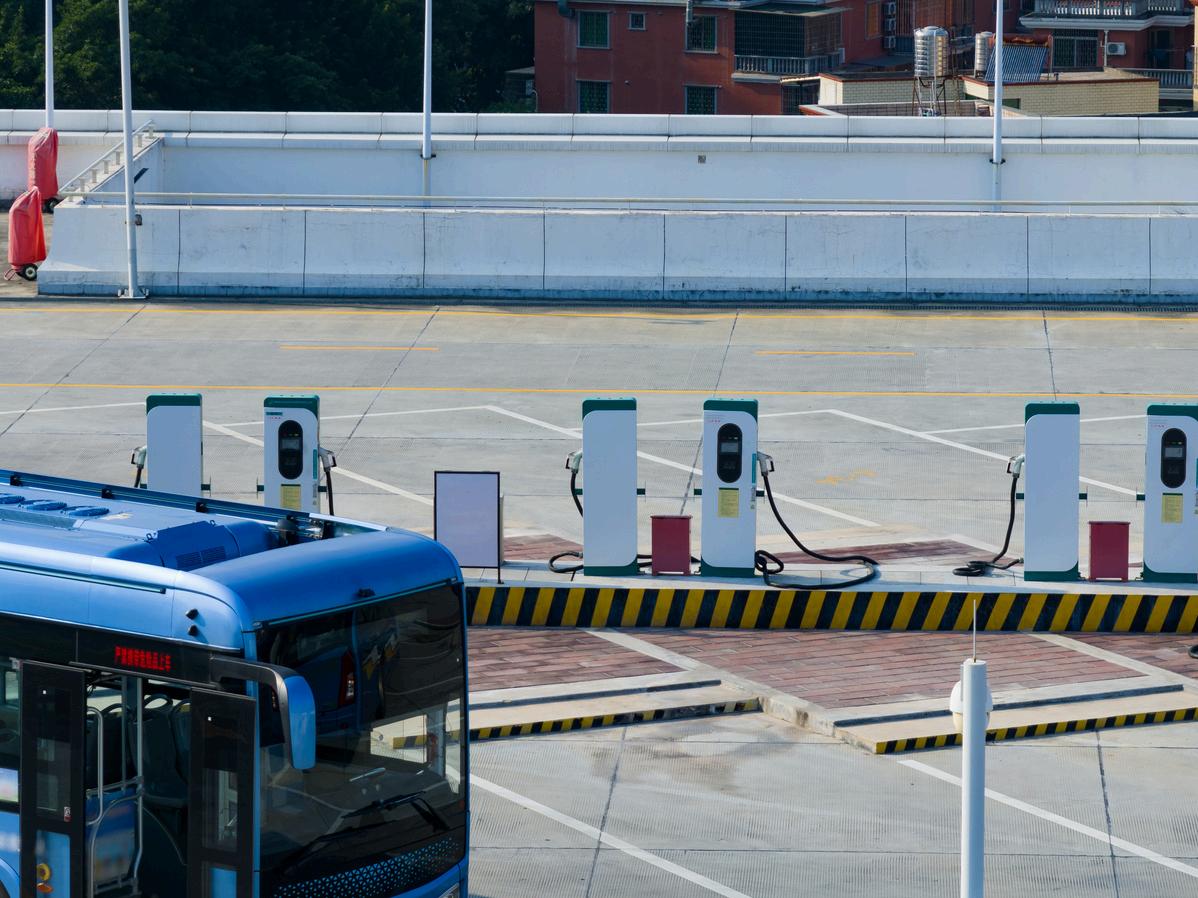
How does the awards and recognitions motivate you, and what advice would you give to aspiring entrepreneurs, particularly women, in the EV sector?
Awards and accolades are certainly humbling They serve as a wonderful acknowledgment of the hard work and dedication the team and I have poured into this industry But for me, the biggest motivator is seeing the positive impact our work has. Witnessing the shift towards a cleaner future, with more people adopting EVs, is the true reward It fuels my passion to keep innovating and pushing the boundaries in the EV space in India and for India.
The EV sector is brimming with opportunities, and it's fantastic to see more women entering this dynamic field My advice would be:
Embrace the Challenge: This industry is still evolving, so expect challenges But view them as opportunities to learn, adapt, and break new ground
Find Your Niche: The EV sector is vast Identify a specific area where your skills and interests lie, whether it's battery technology, charging infrastructure, or sustainable manufacturing.
Don't Be Afraid of Failure: Every successful entrepreneur has faced setbacks. Learn from your mistakes, pick yourself up, and keep moving forward
Believe in Yourself: This industry needs passionate and driven individuals. Trust your vision, back your ideas, and don't let anyone dim your light
Remember, the EV revolution is being shaped by a diverse range of voices Women bring unique perspectives and strengths to the table. Seize this opportunity to be a part of something groundbreaking and make a real difference in the world
Can you shed light on your role in shaping the regulatory landscape and promoting sustainable transportation solutions?
Absolutely, my involvement in industry forums and committees stems from a deep commitment to shaping a robust and sustainable electric mobility ecosystem in India and in doing my best to support this revolution!
I've been actively involved in advocating policies that promote EV adoption in India. For example, I believe that demand incentives are critical to getting more EVs on the road in India in immediate future and to gain critical mass quickly where EV transition becomes irreversible. By working with these industry bodies, we can present a unified voice to policymakers I've also contributed to discussions on standardizing charging infrastructure and developing a robust charging network across the country This is crucial to addressing range anxiety and making EVs a more convenient choice for consumers Furthermore,my involvement has helped promote sustainable transportation solutions beyond just EVs This includes promoting battery recycling programs and advocating for the use of cleaner energy sources to power the charging grid
From urban centers to rural areas, our mission extends far and wide. With our EVs, we're not only reducing emissions but also bridging the gap between public transport and personal mobility, empowering communities everywhere."

| INDIA LEADERSHIPSPECIAL|MAR-APRISSUE2024 15 IN CONVERSATION
What are the key challenges and opportunities facing the electric vehicle industry in India, and how can stakeholders overcome the same to accelerate the adoption of EVs?
Drawing on my experience in the electric vehicle industry, I see three key challenges hindering widespread EV adoption in India:
Affordability Gap: The upfront cost of EVs, particularly those with longer ranges, remains a significant hurdle compared to traditional vehicles This is primarily driven by battery technology
Charging Infrastructure Deficit: India currently lacks a robust charging network, especially outside major cities This creates "range anxiety" for potential EV buyers, who worry about finding charging stations during long journeys.
Limited Consumer Awareness: Many consumers are not fully aware of the long-term benefits of EVs, such as lower running costs, environmental advantages, and government incentives
However, amidst these challenges, there are immense opportunities to propel the Indian EV sector forward. Policy initiatives like subsidies, tax breaks, and the FAME scheme can significantly bring down the
upfront cost of EVs and incentivize domestic manufacturing Continuous advancements in battery technology can lead to longer ranges, faster charging times, and ultimately, lower battery costs Rising fuel prices and increasing environmental concerns are already driving a natural curiosity towards EVs. This interest can be capitalized upon with targeted awareness campaigns
The key to unlocking these opportunities lies in stakeholder collaboration Collaborative efforts can create policies that incentivize EV manufacturing, battery production, and the development of a nationwide charging network Collaboration between public entities and private companies can accelerate the rollout of charging stations, particularly in rural and semi-urban areas. Fostering collaboration between research institutions, automakers, and battery companies can accelerate breakthroughs in battery technology, leading to cheaper and more efficient batteries. Standardized charging infrastructure and battery technology will ensure interoperability, making EVs more user-friendly and encouraging wider adoption
One of our products, Zulu electric scooter, is available with a pay-as-you-use model We have reduced the cost of ownership by 35 percent by bringing the cost of our electric two-wheeler at par with a 100 cc ICE vehicle Kinetic Green users can pay a rental
fee and gain access to the battery, thereby avoiding the immediate impact of a substantial upfront battery cost. By working together, stakeholders can address these challenges and capitalize on the immense potential of the Indian EV industry. This collaborative approach will pave the way for a faster transition towards a cleaner and more sustainable transportation system in India, and I believe my experience positions me well to contribute to this collective effort
As a prominent female leader in this sector, what strategies do you believe are essential to encourage and support more women to take up leadership roles and thrive in the automotive and electric vehicle industries?
The automotive sector, traditionally maledominated, faces specific challenges when it comes to gender diversity By actively encouraging women to join and thrive in the automotive sector, we not only tap into untapped potential but also bring diverse perspectives that drive innovation and elevate the entire industry


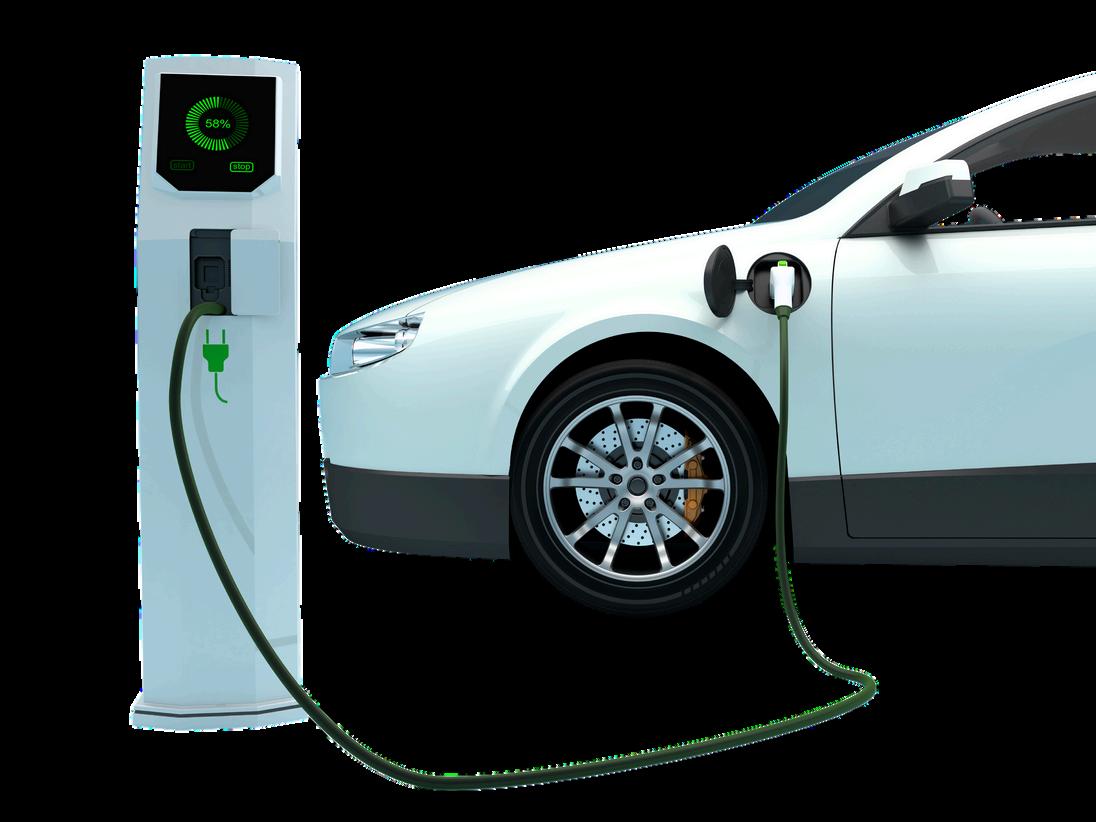
I believe that the advent of electric vehicles presents an opportunity to break down barriers and redefine the industry, making it more inclusive and diverse We view these challenges as opportunities for positive change. As the industry undergoes a transformative shift towards cleaner and more efficient transportation solutions, there is a chance to reset the gender balance Unlike traditional engine based vehicles with much more emphasis on mechanical engineering based parts and manufacturing processes, EVs comprise much more of electronics and software This will enable more women to enter the core areas of R&D and assembly of EVs. Our proud example, where our group company Kinetic Communications, maker of EV electronics stands as a testament to this commitment where entire shop floor is staffed by remarkable women, showcasing that gender diversity is not just attainable but can indeed be a driving force behind success At Kinetic Green also, we have attained 25% women participation on the shop floor and aiming to ramp it up to 50% in next 2 years
Electric Vehicles sector is also creating new opportunities for all, including women, in the development of the EV eco-system, from EV charging to battery swapping, to EV components to entrepreneurship
L|MAR-APRISSUE2024 16 IN CONVERSATION

DRIVING
SUSTAINABILITY
AND ELECTRIC MOBILITY: A DEEP DIVE INTO VOLVO CAR INDIA'S VISION AND STRATEGY
JYOTI MALHOTRA
Managing Director
Volvo Car India
KEY HIGHLIGHTS
Driving Sustainability: Volvo's Commitment to Environmental Responsibility
Powering Tomorrow: Volvo's Bold Electric Mobility Roadmap
Empowering EV Adoption: Volvo's Collaborative Charging Infrastructure Initiatives
What role does sustainability play in Volvo Cars' business strategy, and how is the company working towards achieving its environmental goals?
Concern for the environment is prime to Volvo Cars strategy worldwide and while we have committed towards becoming an allelectric company by the end of 2030 we’re aiming towards becoming a circular business by 2040 We actively promote the use of recycled materials in all our cars The interiors in our cars are made from recycled ocean plastic waste and the carpets from recycled PET bottles In India we have green dealerships that use solar energy and have high levels of water recycling In our community outreach programmes we have contributed substantially towards providing solar power plants to primary health centres in NCR falling in Haryana and Uttar Pradesh
Volvo Cars isn't just about selling electric vehicles; we're leading the change towards a sustainable future With plans to introduce a new EV model or variant every year in India, we're demonstrating our longterm commitment to advancing electric mobility.

Can you provide insights into Volvo Cars' long-term strategy for advancing electric mobility and how the new charging technology fits into that strategy?
Globally we have announced that Volvo Cars has the ambition to become an all-electric company by end of 2030 In India we are committed towards this ambition and we plan to introduce one EV model or variant every year We already have a lineup of 3 EVs in India that offer the best of global standards in quality and safety to our customers. Our EVs provide a range more than 400km per charge and they incorporate the latest in battery technology Even though we give a warranty of 8 years on our batteries, we have already tied up with eco-friendly recyclers who have installed the latest technology and are compliant with World Bank norms and USA EPA standards
How does Volvo Cars plan to collaborate with charging infrastructure providers and other stakeholders to facilitate the deployment and adoption of new charging technology?
Volvo Cars India has supported deployment of charging infrastructure by having fast DC chargers and 11 KW AC chargers installed at our retailer facility locations. The public charger information is available to consumers on the Google infotainment In addition Volvo Car h som r offe
Can you share insights into Volvo Cars' approach to local manufacturing and sourcing in India, particularly in the context of electric vehicle production?
Volvo Car India was the first company to give India a locally assembled Luxury EV in the XC40 Recharge All our current offerings are also assembled at our Hoskote plant near Bengaluru This shows our commitment towards growing the Indian market We have globally set ourselves ambition of becoming an all-electric company by end of 2030 and have also committed towards introducing a new EV model or variant every year In line with this, as the market grows and warrants local manufacturing we will evaluate the same
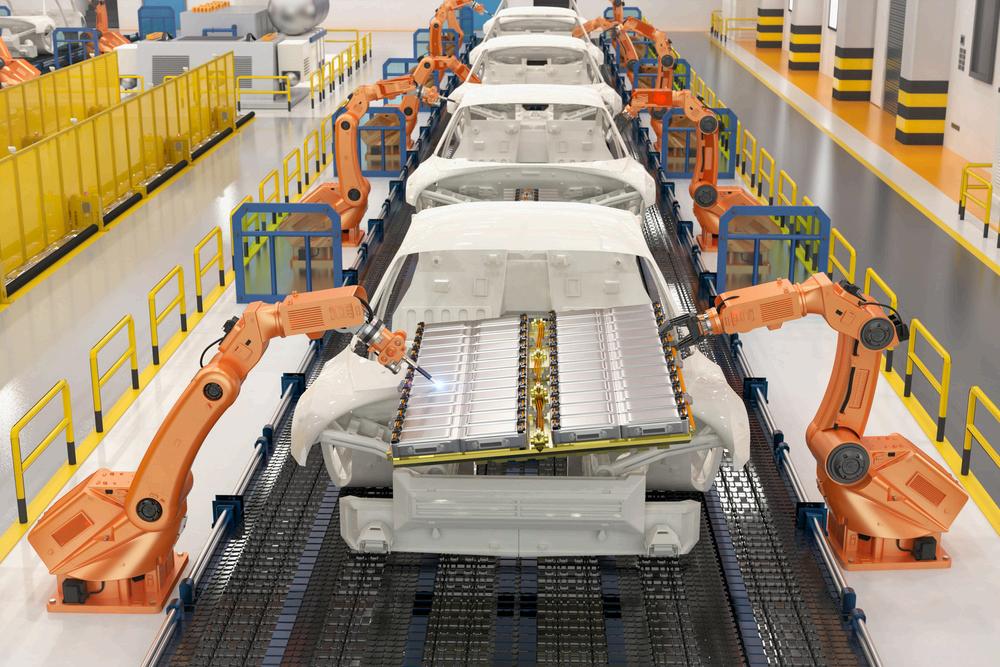
How does Volvo Cars plan to collaborate with government agencies, industry partners, and other stakeholders to promote the adoption of electric vehicles in India?

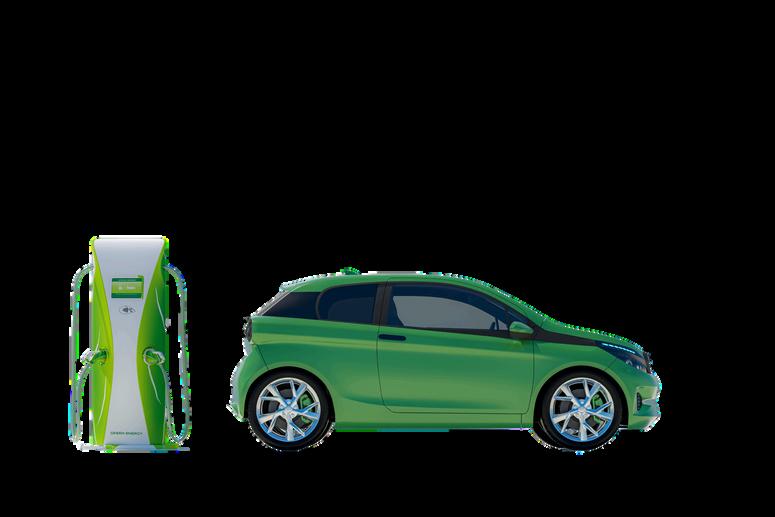
Volvo Car India, in sync with the company’s global objectives will become an all-electric company by 2030 We are sure that our consistent efforts in that direction & government policies would help for faster adoption of electric vehicles in India
| INDIA LEADERSHIPSPECIAL|MAR-APRISSUE2024 17 IN CONVERSATION
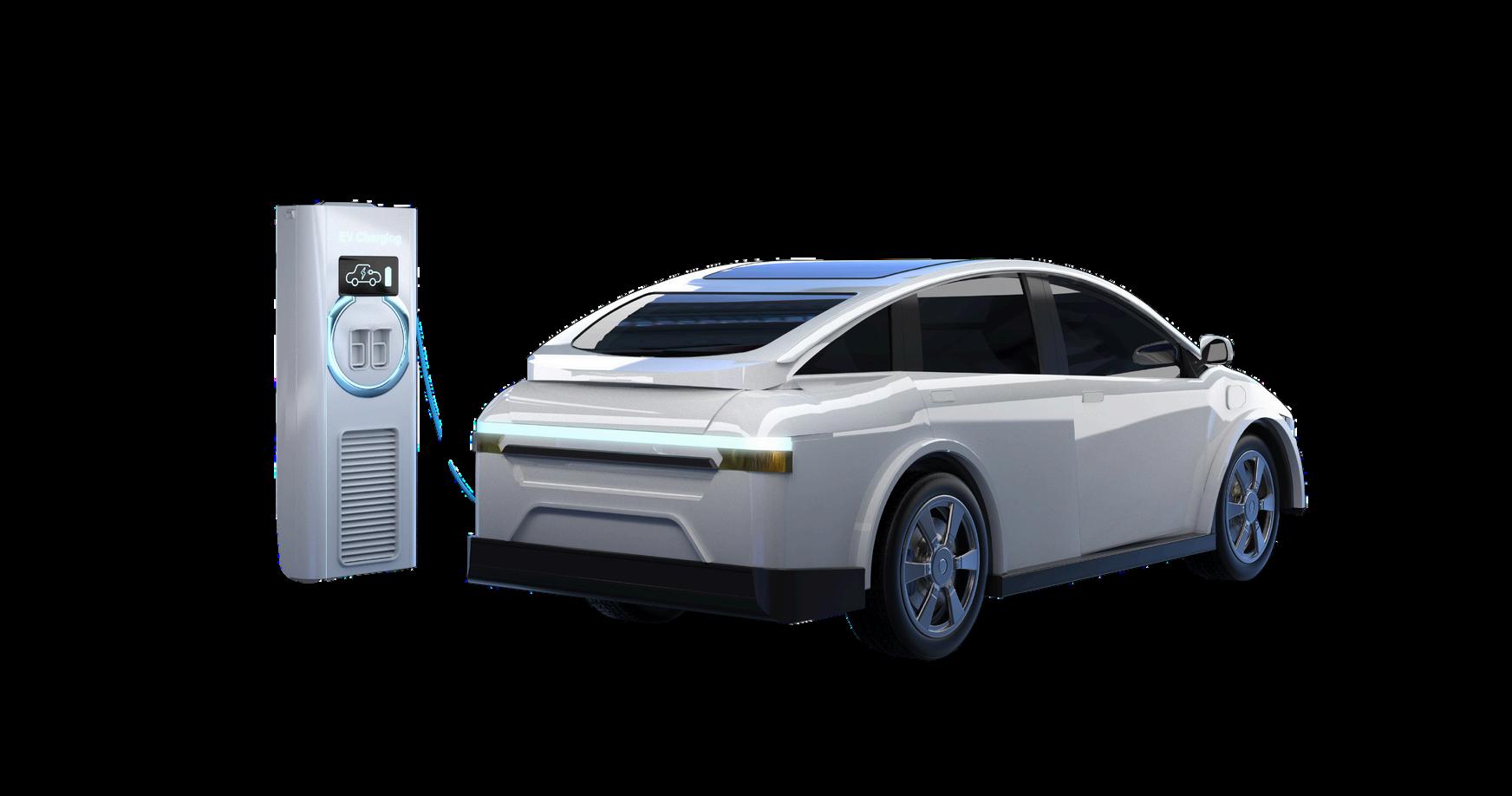


INVESTMENT OPPORTUNITIES IN INDIA'S ELECTRIC MOBILITY SECTOR
Navigating the Financial Landscape
India's electric mobility sector is experiencing a surge of interest and investment as the country transitions towards cleaner and more sustainable transportation solutions With the government's ambitious targets to promote electric vehicle (EV) adoption and reduce carbon emissions, the electric mobility market presents lucrative investment opportunities for businesses and investors This write-up root into the financial landscape of India's electric mobility sector and explore the investment opportunities available to stakeholders

Investment in India's electric mobility sector is significantly influenced by the government's supportive policy framework and incentives, which aim to encourage EV adoption Various initiatives offer subsidies and incentives to manufacturers, buyers, and charging infrastructure developers, stimulating demand and investment in the sector Additionally, ambitious targets for EV penetration and strategies to promote manufacturing, infrastructure development, and R&D further bolster investor confidence
Investment opportunities in India's electric mobility sector span across various segments of the value chain, including vehicle manufacturing, charging infrastructure, battery technology, and mobility services Electric vehicle manufacturers are attracting significant investment to ramp up production capacity, develop new models, and enhance technology and innovation With the rise of electric two-wheelers, three-wheelers, and commercial vehicles in India, manufacturers are capitalizing on the growing demand for affordable and efficient electric mobility solutions
Charging infrastructure is another area ripe for investment in India's electric mobility sector As the adoption of electric vehicles increases, the demand for EV charging stations is expected to surge, creating opportunities for investors to develop and deploy charging infrastructure across the country. Fast chargers, battery swapping

stations, and smart charging solutions are some of the innovative technologies driving investment in the EV charging space, catering to the diverse needs of consumers and fleet operators
Battery technology plays a crucial role in the electric mobility ecosystem, and investments in battery manufacturing and R&D are essential to drive down costs and improve performance. With the government's focus on promoting domestic battery manufacturing and reducing dependence on imports, investors are exploring opportunities to invest in battery manufacturing facilities, research labs, and technology startups, aiming to capitalize on the growing demand for EV batteries in India and abroad.
Mobility services such as ride-hailing, fleet management, and vehicle leasing are also witnessing increased investment activity in India's electric mobility sector With the rise of electric mobility startups and platforms offering EV-centric services, investors are betting on the potential of these innovative business models to disrupt the traditional transportation ecosystem and capture market share in the rapidly evolving mobility landscape
While the electric mobility sector in India offers promising investment opportunities, navigating the financial landscape requires careful consideration of market dynamics, regulatory environment, and technological trends. Investors must conduct thorough due diligence, assess risks, and identify strategic partnerships to maximize returns and mitigate challenges By leveraging insights from industry experts, monitoring market trends, and staying abreast of policy developments, investors can position themselves to capitalize on the growth potential of India's electric mobility sector and contribute to the country's transition towards a cleaner and more sustainable transportation future
| INDIA LEADERSHIPSPECIAL|MAR-APRISSUE2024 18
FOR EVS TO PENETRATE DEEPER INTO MIDDLE INDIA, IT’S TIME TO LOOK BEYOND OWNERSHIP MODELS
To achieve India's ambitious 2030 EV targets, we must focus on Middle India's tier-2 and 3 cities, where innovative models like shared electric mobility can bridge the adoption gap.
India’s EV revolution has shifted into high gear, with sales touching an all-time high of 1.6 million units in the recently concluded financial year. Even better, this revolution isn’t limited to metros alone Reports indicate that smaller cities and towns are witnessing robust sales of two- and four-wheeler EVs Meanwhile, the state of Uttar Pradesh boasts India’s highest EV ownership due to its dominance in threewheelers while others like Rajasthan, Bihar, Telangana and Gujarat are also registering steady growth across different EV segments
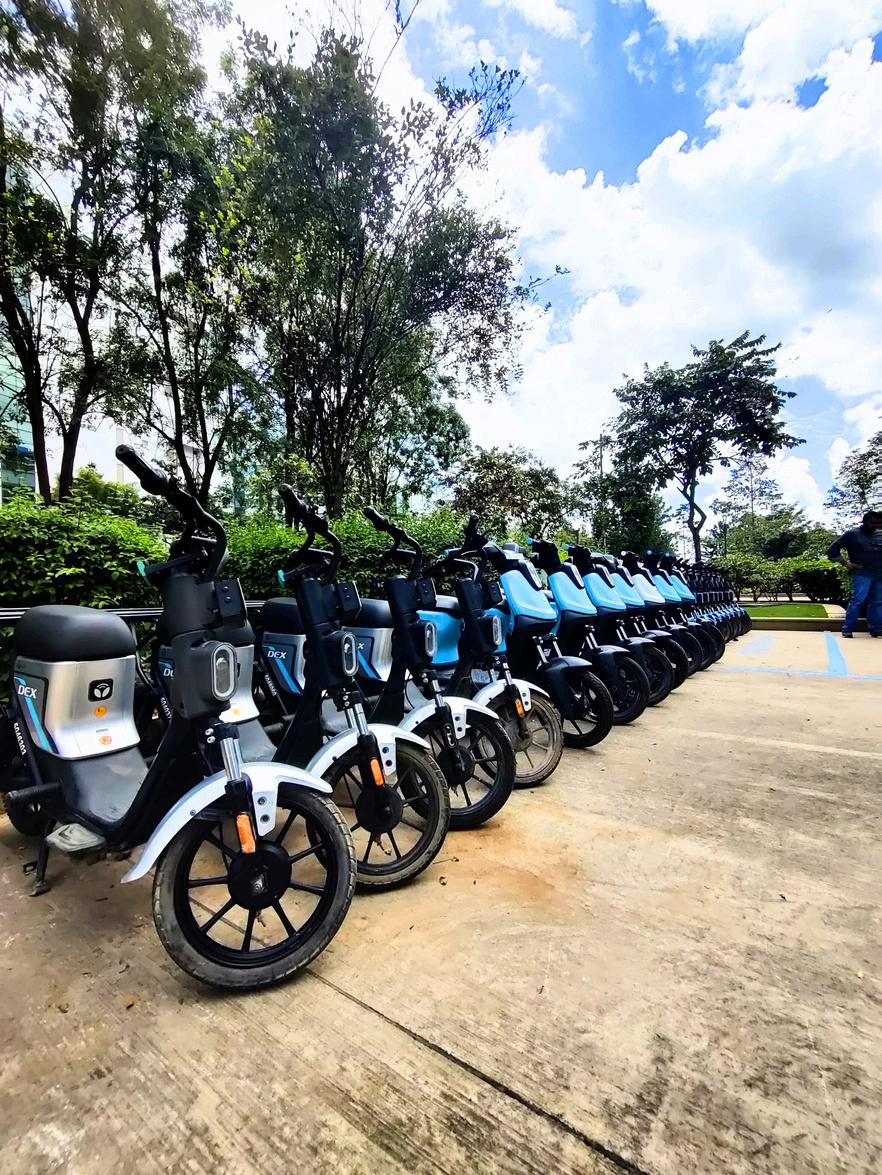
These developments bode well for India’s 2030 goal of EVs accounting for 100% of two- and three-wheelers and 30% of private cars on the road. However, it’s important to note that relying on EV sales alone may not get us to this target We need to focus on speeding up EV adoption, especially in Middle India (i e , tier-2 and 3 cities and towns) where a significant adoption gap still exists Putting these cities and towns at the centre of the next wave of growth in EVs requires alternative models that incentivise and encourage EV usage, not just ownership.
In a similar vein, shared mobility services also hold the key for mainstreaming EVs in tier-2 and 3 cities. Many of these cities experience severe congestion due to poor infrastructure and lower reliance on – and availability of – public transport Shared EVs can help deal with congestion and pollution before they become serious threats in these emerging cities
Shared two-wheelers, in particular, are perfectly adapted for the short intra-city distances and narrow roads in smaller cities Their reliance on smart technologies makes them easy to access for new or first-time users with a basic knowledge of smartphones Users also don’t need to worry about battery charging, as the service providers bear the costs of setting up charging and swapping infrastructure, which is typically factored into the usage fee
Even after progressive schemes and subsidies like FAME-II, the share of EVs in two-wheeler and car sales in India is at around 5% and 2% respectively Solving for mass adoption of EVs beyond the metros requires the use of creative solutions to tackle challenges related to ownership costs, charging infrastructure and range anxiety.
The good news is that one such demonstrated solution already exists in many larger cities, in the form of the ‘shared electric mobility’ model
In Bengaluru, Delhi or Mumbai, renting a self d i l t i t bike is easy and cost-effective today Go to see commuters and delivery executives zi coloured rented EVs Besides being better services also democratise electric mobility f they bypass the need for ownership, they ca millions of people who have never tried an possess the financial means to buy one

Replicating the shared EV mobility model in tier-2 and 3 cities at scale will not be an easy or ‘overnight’ task. However, partnerships can pave the way for the speedy rollout of such services With government support, original equipment manufacturers (OEMs) can join hands with aspiring entrepreneurs based in these cities, and combine their respective strengths – i e , the service provider’s technology and operational expertise and the entrepreneur’s contacts and local knowledge – to bring these services to users at a faster rate
The world over, cities large and small are encouraging residents to leave their vehicles at home and use public transport or shared electric services for their work, leisure, and commute needs. Looking beyond vehicle ownership models can lift EV adoption in Middle India’s cities and towns and make them active participants in India’s clean mobility transition

| INDIA APRISSUE2024 19 INDUSTRY OPINION
AMIT
Shared
EV adoption
Middle
Co-founder & CEO YULU
GUPTA
mobility - Unlocking
in
India
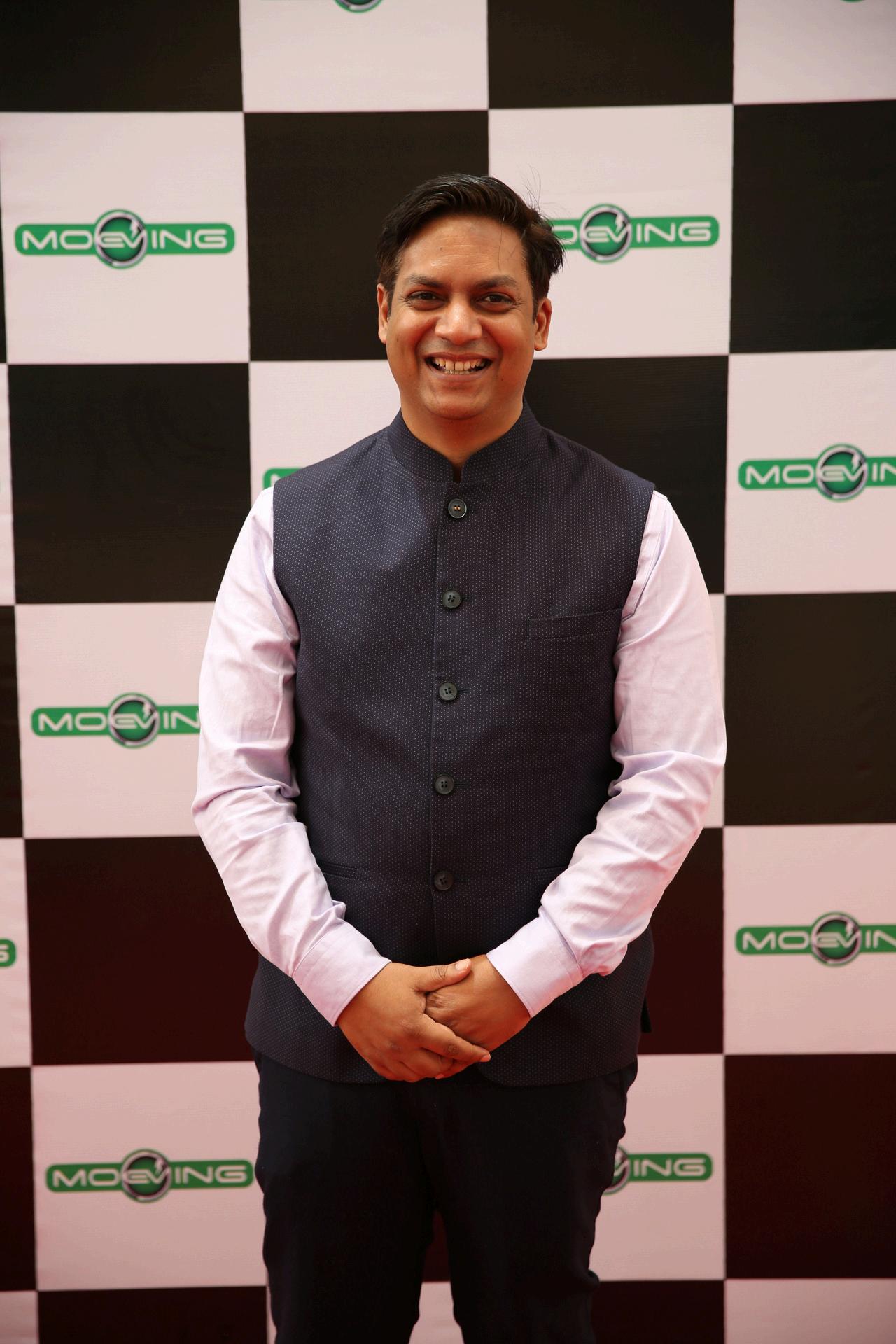
LEADING INDIA'S ELECTRIC
MOBILITY
TRANSFORMATION IN INDIA'S LOGISTICS SECTOR
VIKASH MISHRA
Founder & CEO
MoEVing
KEY HIGHLIGHTS
MoEVing's innovative approach has deployed over 2000 electric vehicles, significantly reducing carbon emissions and advancing sustainable logistics in India
Collaborative policymaking and strategic partnerships have been pivotal in navigating the complex transition from fossil fuels to electric mobility, as emphasized by MoEVing's CEO
MoEVing's ambitious expansion plans, coupled with a focus on innovation and ecosystem collaboration, aim to accelerate India's transition to sustainable electric mobility solutions
As the Founder and CEO of MoEVing, What drove you to launch MoEVing and how do you see its impact on India's electric mobility future, especially in e-commerce last-mile delivery?
After completing my education as a chemical engineer at IIT Delhi and earning my MBA from NUS Singapore, I spent 15 years in the oil and gas industry in India and South East Asia However, after moving to Gurgaon in 2015, I couldn't ignore the alarming pollution levels that had gripped our cities Witnessing my children having to wear masks just to step outside prompted me to reassess my work and transition towards clean energy
My journey began with working at an e-bus company and then leading the electric mobility initiative at Shakti Foundation For the past nine years, I've been deeply involved in the electric vehicle sector.
In early 2021, I noticed an opportunity to bring electric vehicles into the last mile logistics sector which led to starting MoEVing MoEVing deploys only electric vehicles, and our vision is to revolutionize logistics across all sectors by transitioning to technology enabled EV-based solutions. This not only aims to enhance the air quality in our cities, thereby securing a brighter future for the upcoming generations, but also seeks to improve the livelihoods of our driver partners through smoother driving experiences and reduced emissions

Over the next 5 years, our goal is to deploy a minimum of 15,000 vehicles, expand our operations from 16 cities to 100, and increase our client base from 50 to 500 Additionally, we aim to enable EV-based logistics across more than 30 different segments
With over 20 years in energy and mobility, including roles at Shakti Foundation and Shell India, how have your insights shaped your approach to EV policy advocacy and innovation?
I firmly believe in the importance of collaborative policy development, involving government, private sector, and civil society organizations India's rapid growth as an EV market is a testament to this collaborative approach, with central agencies like NITI Aayog and MHI, along with state governments, playing crucial roles Initiatives such as e-FAST and Shoonya demonstrate the collective effort being made
The success we are witnessing today is a result of collaborative policymaking on charging infrastructure, FAME subsidies, and state EV policies It's imperative for all stakeholders at the state level, across manufacturing, electricity, and transport sectors, to work in unison to ensure the success of EV adoption in their respective regions
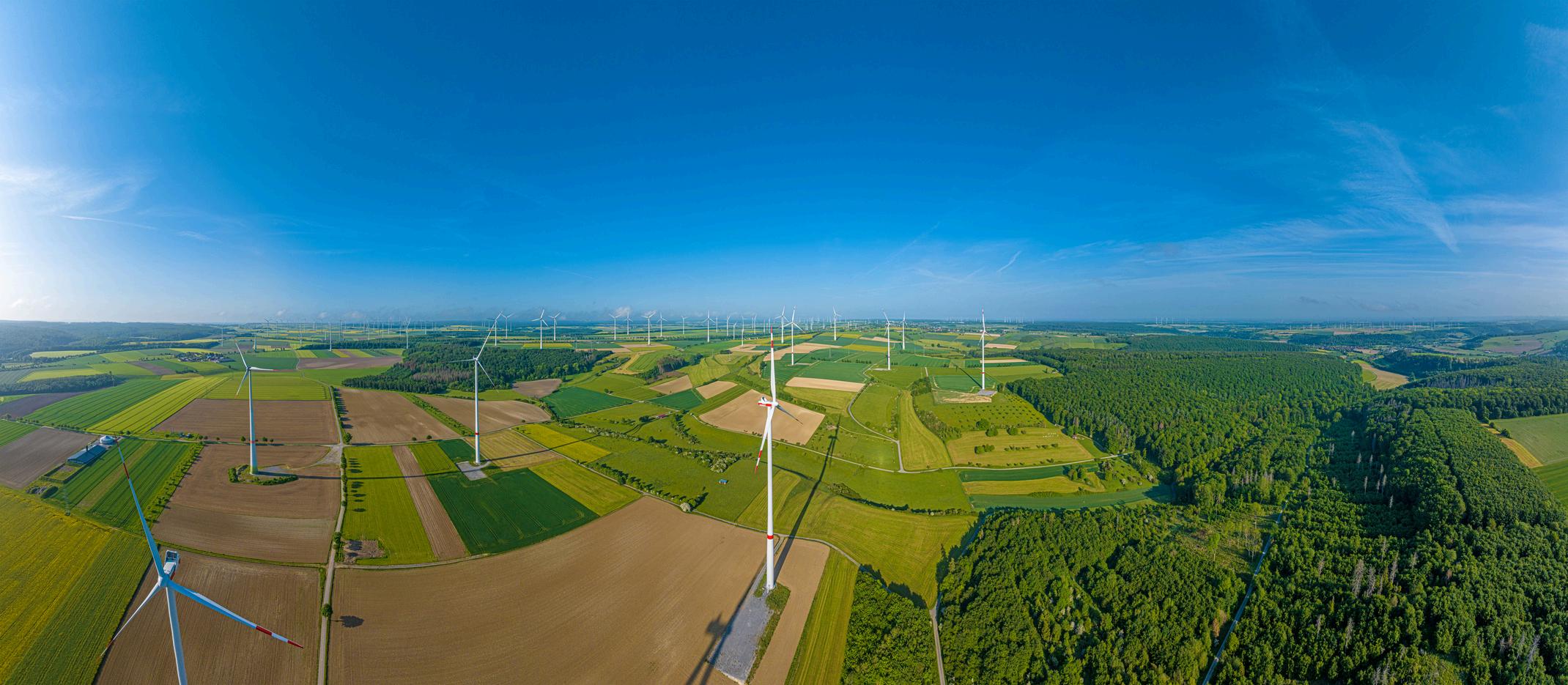
Can you highlight key milestones or success stories from MoEVing's journey in deploying over 2000 EVs in India's logistics, driving electric vehicle adoption?
We are proud to share some success stories and notable milestones achieved in accelerating the adoption of electric vehicles (EVs) in the logistics sector With MoEVing's innovative approach and tech-enabled solutions, we have deployed over 2000 EVs across India, establishing ourselves as a top player in the EV ecosystem, helping us abate 4000+ Tons of CO2 which is equivalent to planting 1.5 Lakh trees. We have been the fastest to deploy 100 Tata Ace EVs in the country, while also deploying them efficiently where our drivers consistently surpass the ARAI certified range of 150 kms by running the vehicles for 164+ kms on a regular basis Through our tech-driven and solution oriented approach, we have served customers in 10+ industry segments to shift their last-mile logistics needs from traditional ICE vehicles to electric mobility Additionally, our Driver-Cum-Owner (DCO) program has empowered numerous drivers to transition to electric mobility, providing them with financing support, education, and infrastructure to thrive in the EV sector These initiatives have not only contributed to reducing environmental impact but also driven economic growth and social empowerment in local communities Through continuous innovation and collaboration, MoEVing remains committed to revolutionizing sustainable logistics and shaping the future of electric mobility in India
| INDIA LEADERSHIPSPECIAL|MAR-APRISSUE2024 20 IN CONVERSATION
With experience in both oil and gas and electric mobility, how do you foresee India's transition from fossil fuels to electric mobility, and what key challenges and opportunities should stakeholders focus on to facilitate this shift?
I see the transition from traditional fossil fuelbased transportation to electric mobility in India as inevitable yet complex Companies that are part of EV100, have committed to greener supply chains and plan to transition into EV fleet for their logistic operations Sustaining and amplifying this massive transition hinges on extending central and state incentives for at least three years until EVs reach a 30% market share Additionally, state support, which also includes no-entry permits for EVs and registration cost waivers, will boost the adoption Mandates for fleet electrification will speed up emissions reduction and innovation Lastly, we also need to address India's inadequate charging infrastructure, evident in India’s 182 vehicles per point which makes it essential to establish a robust charging network.
As an EV industry leader, what strategies are crucial for tackling infrastructure challenges in EV charging and battery swapping, especially to scale up electric vehicle adoption in commercial fleets like logistics?
I believe that addressing infrastructure challenges related to EV charging requires a multifaceted approach First and foremost, collaboration between government bodies, private entities, and EV companies like MoEVing is essential to accelerate the deployment of charging infrastructure. We need to focus on developing a robust network of fast-charging stations along key transportation routes and in urban areas where commercial fleets operate Additionally, incentivizing the deployment of charging infrastructure through policies
andfinancial support can encourage private investment Through strategic partnerships, technological innovation, and supportive policies, we can create an ecosystem conducive to scaling up electric vehicle adoption for commercial fleets, driving forward the mission of companies like MoEVing in advancing sustainable transportation solutions
How can male-dominated industries like automotive and electric mobility encourage more women to pursue careers and leadership roles, and how can companies like MoEVing contribute to fostering diversity and inclusion?
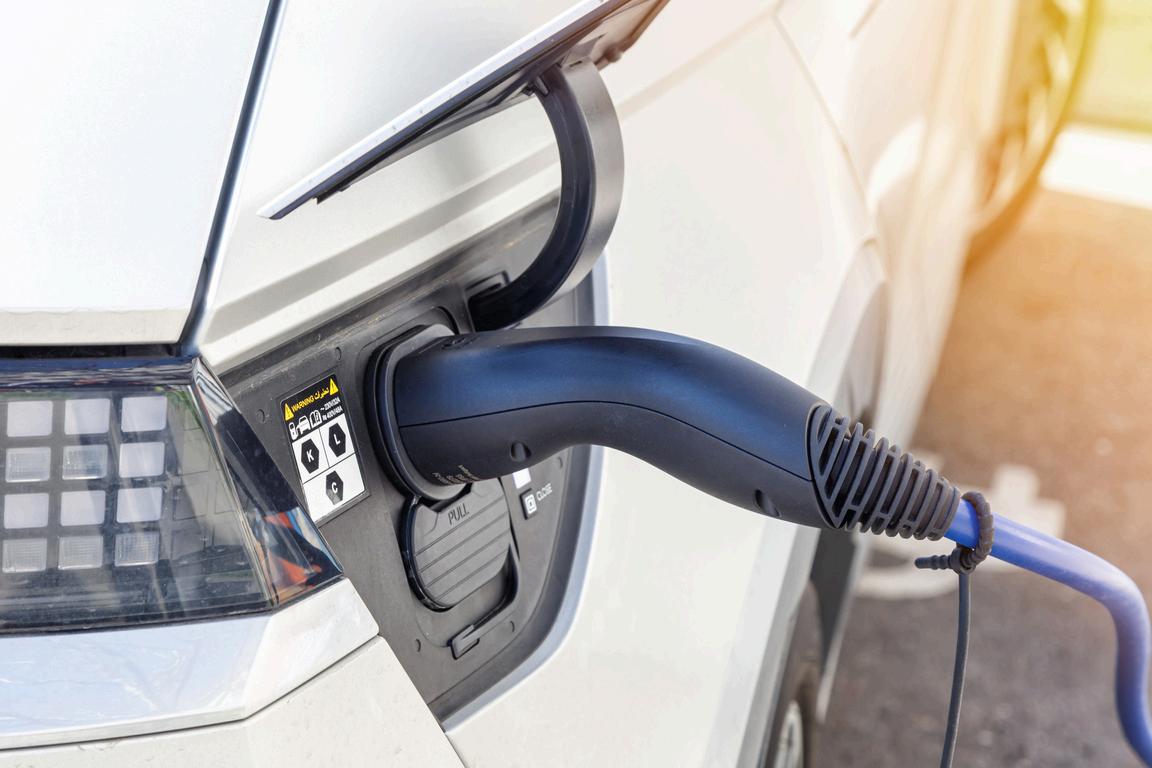
At MoEVing, we recognize the importance of fostering gender diversity from the bottom up Our initiative to collaborate with NGOs working for women to onboard women drivers into our ecosystem is just one example of our commitment to this cause Additionally, the leadership of women in our team plays a crucial role in promoting gender inclusion within our organization and the broader industry. To encourage more women to pursue careers and leadership roles in male-dominated industries like automotive and electric mobility, it is essential to provide mentorship, training, and networking opportunities specifically tailored to women Companies like MoEVing can contribute by implementing inclusive hiring practices, offering equal opportunities for career advancement, and creating a supportive work environment where women feel empowered to thrive and succeed Through these initiatives, we can build a more diverse and inclusive workforce that drives innovation and sustainability in our industry
MoEVing's vision: expansion, innovation, and ecosystem building to accelerate India's sustainable electric mobility transition.
What are your future aspirations for MoEVing, and what key initiatives will you prioritize to accelerate India's transition to sustainable electric mobility?
Looking ahead, MoEVing aims to solidify its position as a leader in sustainable and efficient electric mobility solutions in India Our key focus areas and strategic initiatives will revolve around three pillars: expansion, innovation, and an ecosystem approach Firstly, we plan to expand our EV fleet and charging infrastructure, aiming to integrate 15,000 electric vehicles into our fleet over the next five years and expand into 100 new tier-2 and tier3 cities Secondly, innovation will remain at the forefront of our efforts, with a focus on developing cutting-edge technology and solutions to optimize logistics operations and enhance the customer experience Finally, collaboration with industry stakeholders across sectors, EV ecosystem players and most importantly, the driver community will play a crucial role in promoting EV adoption on a broader scale to create an enabling environment for electric mobility Through these strategic initiatives, MoEVing is poised to accelerate the transition towards sustainable and efficient electric mobility solutions, driving positive impact for the environment, society, and economy in India
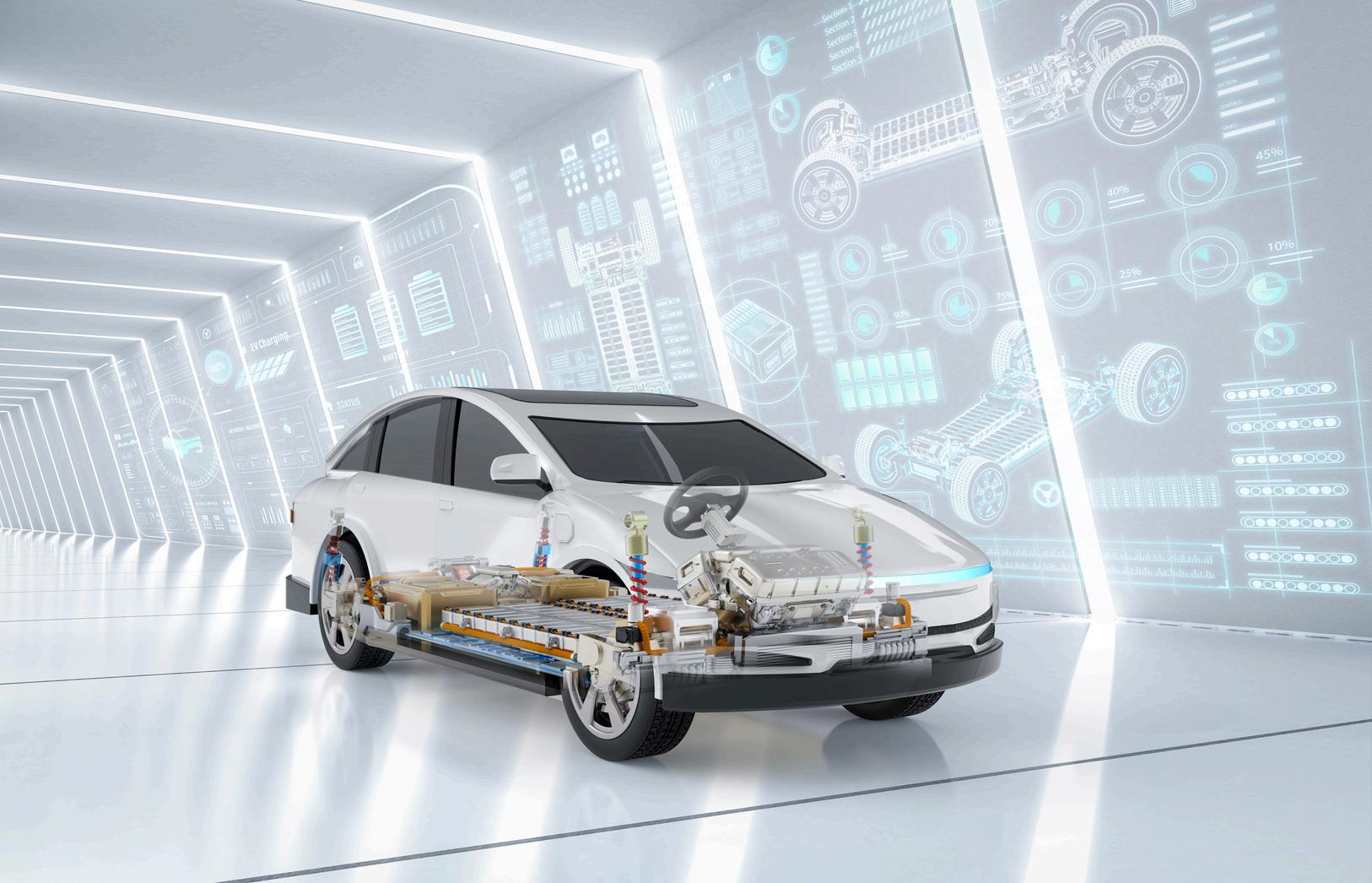

IN CONVERSATION
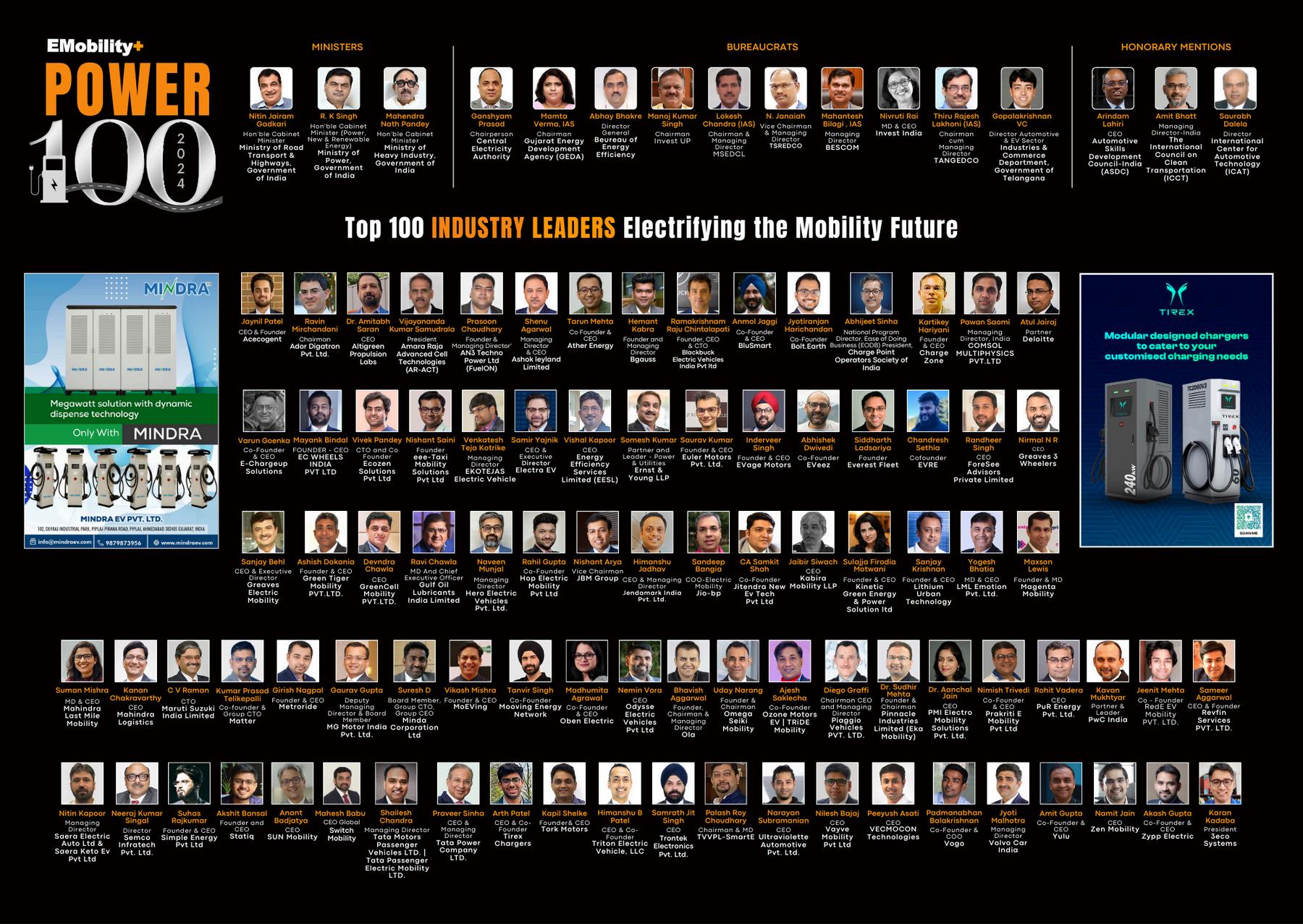

TECHNOLOGY DRIVING EFFICIENCY: ENHANCING FLEET OPERATIONS THROUGH INNOVATIVE SOFTWARE SOLUTIONS

MAXSON LEWIS
Founder & CEO Magenta Mobility
KEY HIGHLIGHTS
Magenta Mobility emerged from a blend of automotive and electricity expertise, aiming to lead India's electric mobility future
With over 2000 electric cargo vehicles deployed, Magenta Mobility pioneers sustainable logistics, offering businesses both financial stability and environmental responsibility
Overcoming deployment challenges through strategic infrastructure setup and client engagement, Magenta Mobility aims to scale operations nationwide while maintaining safety and sustainability
The
As the Founder and CEO of Magenta Mobility, recognized for innovative contributions in electric mobility, can you share the inspiration behind founding the company and your vision for its role in shaping India's electric mobility future?
My journey leading up to the founding of Magenta Mobility spans nearly 25 years, characterized by diverse experiences in the automotive and electricity sectors During my initial years in the automotive industry and subsequent pursuit of a master's degree, I cultivated a deep understanding of the intricate workings of the sector. However, it was my extensive tenure in the electricity domain, spanning over 15 years and marked by global engagements, that laid the groundwork for Magenta's inception The inspiration for Magenta Mobility emerged during the nascent stages of electric vehicle (EV) adoption, around 2014-15, prior to mainstream recognition Witnessing the emergence of electric vehicles like the Chevy Bolt, I foresaw the transformative potential of sustainable logistics solutions Advocating for the idea that "Electricity is the new oil" to electricity companies, I remained steadfast in my conviction that decarbonization and electrification would revolutionize transportation Simultaneously, personal considerations played a significant role in shaping Magenta's vision Contemplating the legacy I would leave for future generations, particularly for my son, spurred a deep commitment to fostering a sustainable future Recognizing the imminent EV revolution in India, I saw an opportunity for Magenta to assume a leadership role in driving this transformation. Thus, Magenta Mobility was

born with a clear mandate: to empower sustainable mobility and decarbonize logistics. Our vision encompasses impacting human lives through the electrification of lastmile and mid-mile logistics, as well as the development of robust charging infrastructure
How does Magenta Mobility plan to revolutionize freight transportation by electrifying and decarbonizing it nationwide, and what impact do you expect these solutions to have on sustainability and cost-effectiveness for businesses?
Today, we are India’s largest electric cargo fleet operator with more than 2000 EVs After successfully leading the deployment of E3W, we are at the cusp of piloting Light Commercial Vehicles (LCVs) and Medium Commercial Vehicles (MCVs), further signifying a significant leap forward in the evolution of logistics solutions By continuously expanding product profiles and our fleet, we provide tangible proof of concept to industries, demonstrating the viability and profitability of our logistics services Our approach not only offers OEMs a reliable partner but also reassures clients of our ability to successfully deploy and manage their fleets, nationally Furthermore, our solutions offer businesses both sustainability and costeffectiveness advantages Electric vehicles eliminate price escalations typically associated with diesel and petrol vehicles, offering businesses greater financial stability and predictability Additionally, our commitment to decarbonization aligns with evolving environmental regulations and sustainability goals, positioning our clients as leaders in corporate social responsibility.
inception of Magenta Mobility was born from a vision to revolutionize transportation, driven by the belief that 'Electricity is the new oil' and a commitment to fostering a sustainable future for generations to come
What challenges did you face deploying over 800 Cargo 3wheeler electric vehicles in major cities, and how did you overcome them? Additionally, what strategies are in place to scale up nationwide operations?
Two years ago, our deployment challenges revolved around the ecosystem issues, especially with various external stakeholders’ lack of understanding regarding electric vehicles (EVs) Fast-forward to today, while awareness has increased, operational hurdles have emerged as the forefront challenges Firstly, ensuring the availability of charging infrastructure up to Magenta's safety and quality standards remains paramount Secondly, integrating EVs into client ecosystems accustomed to diesel and petrol operations requires operational education and adaptation Lastly, city-specific issues, such as the availability of delivery executives, pose logistical challenges To address these challenges, we've implemented strategic solutions For charging infrastructure, we initiate the setup three months before
| INDIA LEADERSHIPSPECIAL|MAR-APRISSUE2024 24 IN CONVERSATION
entering a city, often partnering with relevant companies to expedite deployment With clients, we engage in transparent, C-suite level discussions to manage expectations and foster an understanding of EV operations Additionally, on the ground, we collaborate closely with delivery executives to overcome logistical hurdles. Lastly, we have signed off an Annual Operating Plan (AOP) to systematically tackle challenges related to the setup of charging infrastructure Looking ahead, our scaling strategies are comprehensive. Through proactive infrastructure setup, client engagement, and ground-level partnerships, we are poised to scale our operations efficiently while maintaining our commitment to providing safe, smart and sustainable logistics solutions
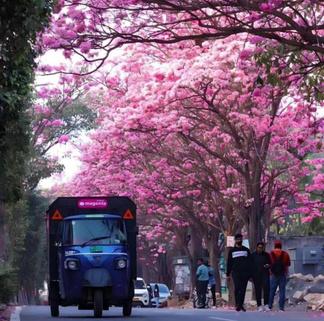
How have partnerships with top ecommerce, FMCG, FMCD, pharmaceutical, food, courier, and logistics companies contributed to Magenta Mobility's growth and success, and what benefits do they provide to clients?
Our partnerships with e-commerce companies have played a pivotal role in showcasing the effectiveness of our sustainable logistics solutions By engaging with FMCG, FMCD, pharmaceutical and other sectors, we are now pioneering conversations around the adoption of electric vehicles in these sectors too. We approach these conversations with a mindset of mutual benefit, co-creating opportunities to ensure that all parties in the ecosystem reap rewards
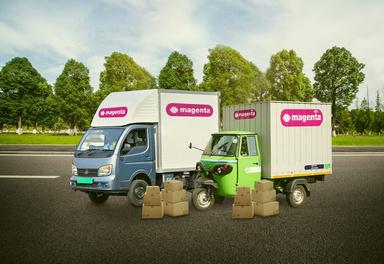

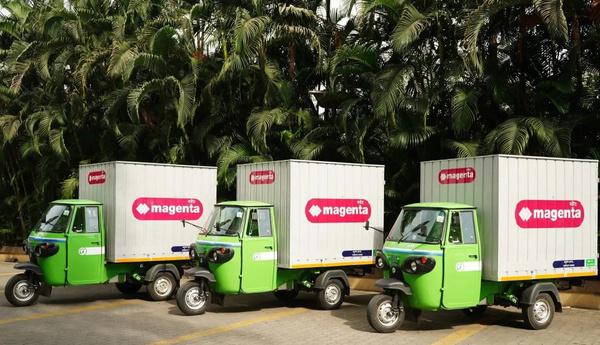
How does Magenta Mobility's software technology enhance fleet operations, and what future innovations can we expect?
Our technology platform offers a holistic solution for managing our fleet, delivery executives and charging infrastructure seamlessly Through real-time monitoring and optimization capabilities, we harness the abundant data generated by electric vehicles to enhance various operational facets. For instance, we optimize charging schedules, ensuring efficient vehicle charging and minimizing downtime Our fleet management functionalities contribute to asset and route optimization, thereby improving internal efficiency Furthermore, our software technology fosters reliability and transparency, benefiting both our internal operations and client satisfaction In the future, we remain dedicated to continuous software innovation by working towards refining delivery routes for enhanced efficiency Additionally, we aspire to collaborate with governmental bodies, leveraging our data to inform transportation policies and infrastructure development. Moreover, we're utilizing data analytics to enhance the driving behavior of our delivery executives, thus bolstering road safety and operational efficiency
As a coach and advisor in the mobility sector with expertise in management consulting and clean energy, what advice do you have for aspiring entrepreneurs entering the electric mobility industry, especially regarding overcoming challenges and seizing opportunities for growth and innovation?
Firstly, it's crucial to recognize that the electric mobility sector presents a vast array of opportunities for innovation and growth Unlike established industries, the electric mobility space is relatively nascent, offering a level playing field for newcomers to make their mark While larger companies may have substantial resources at their disposal, they also face their own set of challenges Therefore, don't hesitate to dive into this space; opportunities abound for those willing to seize them However, it's essential to move beyond conventional
thinking While there's a tendency to focus on aspects like vehicle manufacturing or fleet operations, there are numerous untapped opportunities in other areas For instance, there's a significant lack of investment in charging infrastructure R&D or comprehensive software platforms integrating charging station networks Exploring such less-traveled paths could yield substantial rewards Moreover, in a landscape rife with misinformation, it's crucial to seek guidance from trusted sources Look to individuals and organizations with proven expertise and a track record of success in the electric mobility sector By surrounding oneself with the right mentors and advisors, one can navigate challenges more effectively and capitalize on emerging opportunities.
Looking ahead, what are your aspirations and strategic priorities for Magenta Mobility in the coming years? How do you plan to strengthen your position as a leader in the electric mobility space further and continue driving positive impact in the transportation sector?
Our strategic priorities are clear, guided by a robust Annual Operating Plan (AOP) and a comprehensive five-year strategy In the immediate term, our focus is on aggressive expansion Our AOP dictates the deployment of 5000 vehicles with predefined profit margins by the end of this year Additionally, we've launched the 'Ab Ki Baar Dus Hazaar' program, aiming to deploy 10,000 vehicles by September 2025 These initiatives serve as our starting line, setting the pace for our future endeavors Strategically, our aim is nothing short of attaining global leadership in the EV Logistics space Moreover, our aspirations extend beyond mere market dominance. We aspire to be recognized as pioneers of safe, smart and sustainable transportation, transcending the boundaries of electric vehicles alone. Our vision encompasses holistic transformation, encompassing driver management, technological innovation, and operational excellence By leading this transition, we aim to leave a lasting positive impact on the transportation sector In the next two years, we envision ourselves at the epicenter of this transformative shift, both in India and on the global stage
| INDIA LEADERSHIPSPECIAL|MAR-APRISSUE2024 25 IN CONVERSATION
EMPOWERING TOMORROW: PMI ELECTRO MOBILITY SOLUTIONS' TRAILBLAZING JOURNEY IN INDIA'S ELECTRIC MOBILITY REVOLUTION

What inspired your foray into electro mobility and the establishment of PMI Electro Mobility Solutions Pvt. Ltd.?
We began as a bus body building company, renowned for our craftsmanship in creating Bus Coaches for esteemed OEMs nationwide Yet, as we observed the shifting landscape, we realised that we need to evolve with the changing world Aligned with the government's unwavering push towards mass electric mobility, we made a pivotal decision to embrace this transformative vision This wasn't just a strategic shift; it was a heartfelt commitment to combat climate change and nurture a sustainable future Our transition into the public electric mobility segment marked not just a business evolution, but a moral imperative making a meaningful impact, one that resonates with our core values
The release of consolidated tenders by Convergence Energy Services Ltd (CESL) showcased the government's steadfast commitment to advancing e-mobility nationwide This commitment was reinforced by ongoing dialogues between government officials and industry stakeholders, backed by a robust policy framework that included enhanced payment security measures, illustrating a proactive approach to addressing industry concerns
We also witnessed the recent launch of the PM e-Bus Sewa scheme, coupled with a nationwide tender, further emphasized the central government's unwavering dedication, spearheaded by the Hon'ble Prime Minister Narendra Modi, to extending e-mobility

DR. AANCHAL JAIN
CEO PMI Electro Mobility
Solutions
Pvt. Ltd.
KEY HIGHLIGHTS
PMI Electro Mobility Solutions shifted from bus body building to electric mobility, aligning with government initiatives and expanding to 28 cities nationwide
PMI innovates by reducing e-bus charging times and establishing an automated battery plant, setting new standards in efficiency and scalability
Through collaborations with stakeholders and financial supporters, PMI exceeds expectations, pioneering e-mobility adoption in tier 2 and tier 3 towns
initiatives to tier-2 and tier-3 cities This inclusive strategy underscores the government's enthusiasm for collaborating with a diverse array of stakeholders in the emobility sector, fostering an environment conducive to growth and innovation
Presently, PMI Electro Mobility operates in 28 cities across the country, with strategic plans for gradual expansion into new geographical areas by the end of the year This deliberate expansion aligns with our overarching vision of generating sustainable transportation and contributing to the nation's electric mobility landscape
Could you highlight PMI Electro Mobility Solutions' innovative technologies driving electro mobility advancements?
At PMI, technological innovation is at the heart of our operations, driven by a robust Research and Development wing dedicated to enhancing every facet of our manufacturing and operations We continually explore insights and possibilities to elevate operational efficiency, enhance passenger comfort, and prioritize passenger safety
Specifically, in terms of technological advancements and operational efficiencies, one of our significant achievements is the reduction in the charging time of our e-buses By optimizing charging protocols and leveraging cutting-edge technologies, we have significantly minimized the time required to recharge our e-Buses. This reduction in charging time translates into reduced idle time for our e-Buses, maximizing their operational uptime and efficiency on the roads
We are also coming up with an automated, state-of-the-art battery plant, symbolizing our commitment to innovation and sustainability. This advanced facility is set to incorporate the latest automation technologies to streamline battery production processes, ensuring precision, consistency, and scalability. The automated battery plant not only enhances the quality and reliability of our batteries but also reinforces our position as a leader in ecofriendly transportation solutions
These technological advancements exemplify PMI’s unwavering dedication to pushing the boundaries of innovation in the electric vehicle industry By investing in cutting-edge research, development, and infrastructure, we strive to pioneer transformative solutions that redefine the standards of excellence in sustainable transportation
PMI Electro Mobility's relentless pursuit of technological innovation, from reducing charging times to pioneering automated battery plants, underscores our dedication to pushing the boundaries of excellence in eco-friendly transportation.
| INDIA LEADERSHIPSPECIAL|MAR-APRISSUE2024 26
IN CONVERSATION
How does PMI Electro Mobility Solutions collaborate with stakeholders to foster electro mobility adoption and innovation?
PMI Electro Mobility stands tall, carving out its distinct niche in the market amidst wellestablished players in e-bus manufacturing Despite formidable competition, India's expansive and populous landscape offers ample room for growth and success for every player Central to our success is our collaboration with State Transport Undertakings, Central Agencies, and transporters. These partnerships allow us to integrate seamlessly into existing transportation networks, ensuring our vehicles meet regulatory standards and address specific regional needs Moreover, various financial supports from Piramal Alternatives, REC etc have provided the necessary backing to fuel our expansion and innovation initiatives
The true gauge of our success lies in the response from passengers themselves, who meticulously plan their schedules around PMI e-buses, even in the most remote and challenging terrains of Himachal Pradesh and Leh. From the outset, our focus has been on tier 2 and tier 3 towns, where our pioneering efforts have positioned us as the trailblazers in numerous geographies The enthusiastic acceptance and high reorder rates from these locations stand as a testament to PMI's ability to not only meet but exceed the expectations of both passengers and concerned authorities alike
The release of consolidated tenders by Convergence Energy Services Ltd (CESL) showcased the government's steadfast commitment to advancing e-mobility nationwide This commitment was reinforced by ongoing dialogues between government officials and industry stakeholders, backed by a robust policy framework that included enhanced payment security measures, illustrating a proactive approach to addressing industry concerns.
We also witnessed the recent launch of the PM e-Bus Sewa scheme, coupled with a nationwide tender, further emphasized the central government's unwavering dedication, spearheaded by the Hon'ble Prime Minister Narendra Modi, to extending e-mobility
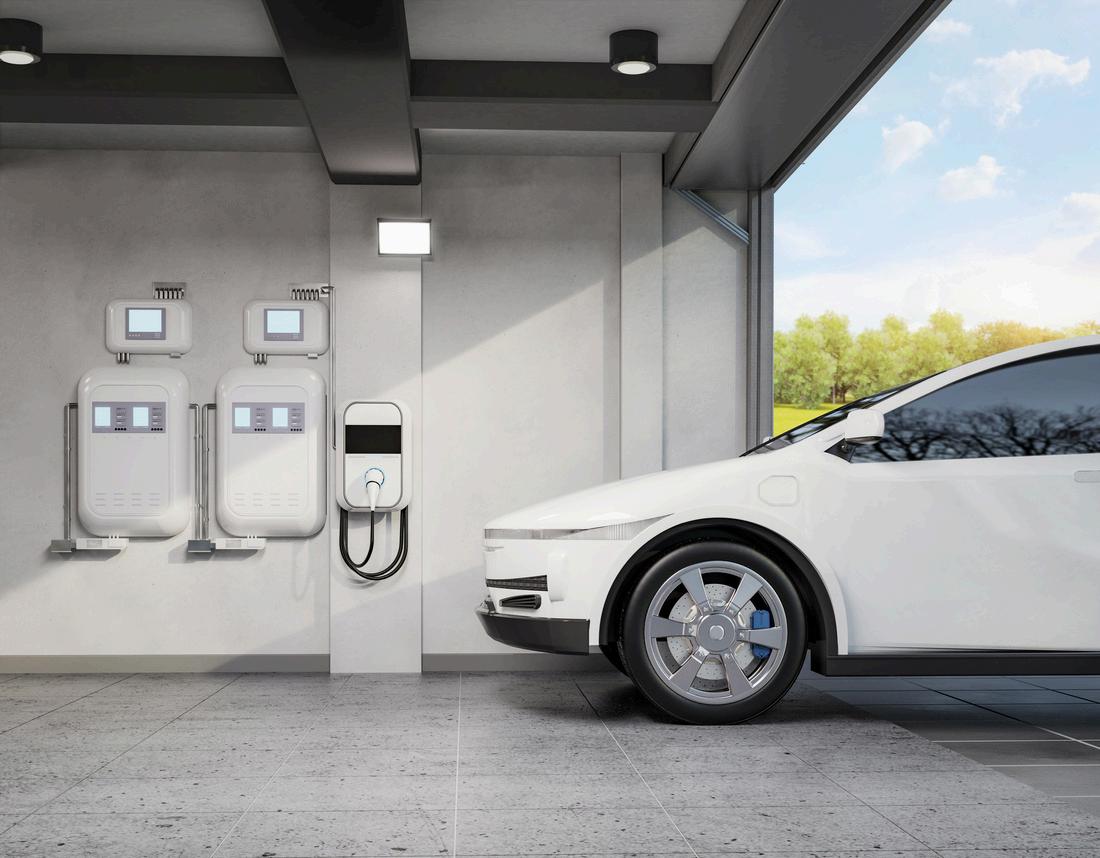

What's your vision for electro Mobility in India, and how does PMI Electro Mobility Solutions contribute to it?
At PMI, our dedication to sustainability transcends mere corporate obligation it's a deeply ingrained commitment to safeguarding our planet Inspired by the visionary leadership of our Honourable Prime Minister and fuelled by an unwavering sense of duty, we have embarked on a transformative journey toward achieving a net-zero nation by 2070
Sustainability is woven into the very fabric of our organizational ethos, guided by three core principles:
Pursuit of Net Zero:
At PMI Electro Mobility, we are on a mission to revolutionize transportation through green mobility solutions that uphold environmental sustainability Our fleet of 1300 e-Buses traverses 28 cities, collectively covering an astounding 125 million green kilometres, resulting in the reduction of 3 lakh tonnes of CO2 emissions This is just the beginning; we envision exponential growth in the days to come.
Embracing Diversity and Inclusivity:
We recognize diversity as a fundamental aspect of sustainability, fostering empowerment through inclusivity for social sustainability. The expansion of our operations with an additional assembly line in our all-women battery plant underscores our unwavering commitment to diversity and gender equality
Access for All:
PMI Electro Mobility is steadfast in its commitment to providing access to sustainable transportation services across towns and cities Our e-Buses offer more than just transportation; they provide reliability, eco-friendliness, comfort, and safety for all passengers. Operating in tier 1 to tier 4 towns, our e-Buses stimulate economic growth, foster community belonging, and enhance overall quality of life We firmly believe that sustainable public transportation should be accessible to everyone, regardless of their location, and we are dedicated to realizing this vision.
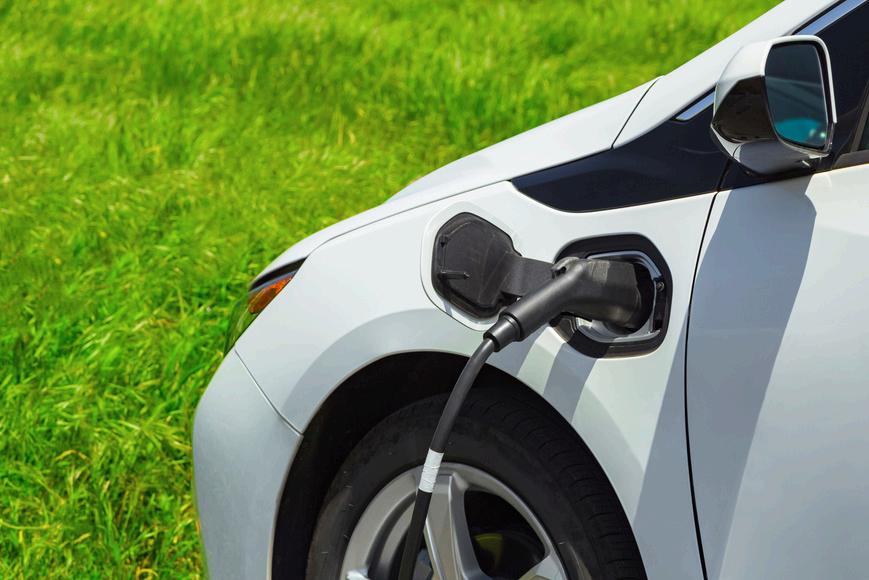
We have implemented numerous integrations, iterations, and measures to reduce environmental impact, from sourcing to operations One notable achievement is the significant reduction in charging time for our e-Buses Through optimized charging protocols and cutting-edge technologies, we have minimized recharge time significantly This reduction translates to less idle time for our e-Buses, maximizing operational efficiency and uptime on the roads Together, these collective efforts propel us closer to our shared goal of building a greener, more sustainable future for generations to come, imbued with hope, compassion, and stewardship for our planet.
What upcoming projects is PMI Electro Mobility Solutions undertaking, and how will they influence the electro mobility sector?
As we look ahead to the upcoming financial year, PMI Electro Mobility stands at the threshold of significant capacity expansion, poised to meet the surging demand for ebuses nationwide With an order book already comprising over 3300 e-buses, we are preparing to extend our operations to new cities, fortifying our presence across the country in various locations
This expansion not only benefits urban centres but also holds immense promise for tier-2 and tier-3 cities, offering residents dependable, comfortable, and environmentally friendly local transport solutions As technological advancements continue to propel the e-mobility sector forward, PMI remains steadfast in its commitment to integrating these innovations into our e-buses This not only enhances passenger comfort and safety but also reduces stress for drivers, ensuring an unparalleled commuting experience
At PMI Electro, we take immense pride in contributing to Prime Minister Narendra Modi's vision of achieving a net-zero nation by 2070. Our dedication to sustainable mobility resonates deeply with this noble aspiration, propelling us forward in our mission to forge a greener and cleaner future for generations to come
| INDIA LEADERSHIPSPECIAL|MAR-APRISSUE2024 27
IN CONVERSATION
PAVING THE WAY FORWARD: CORPORATE LEADERSHIP IN ACCELERATING ELECTRIC MOBILITY ADOPTION
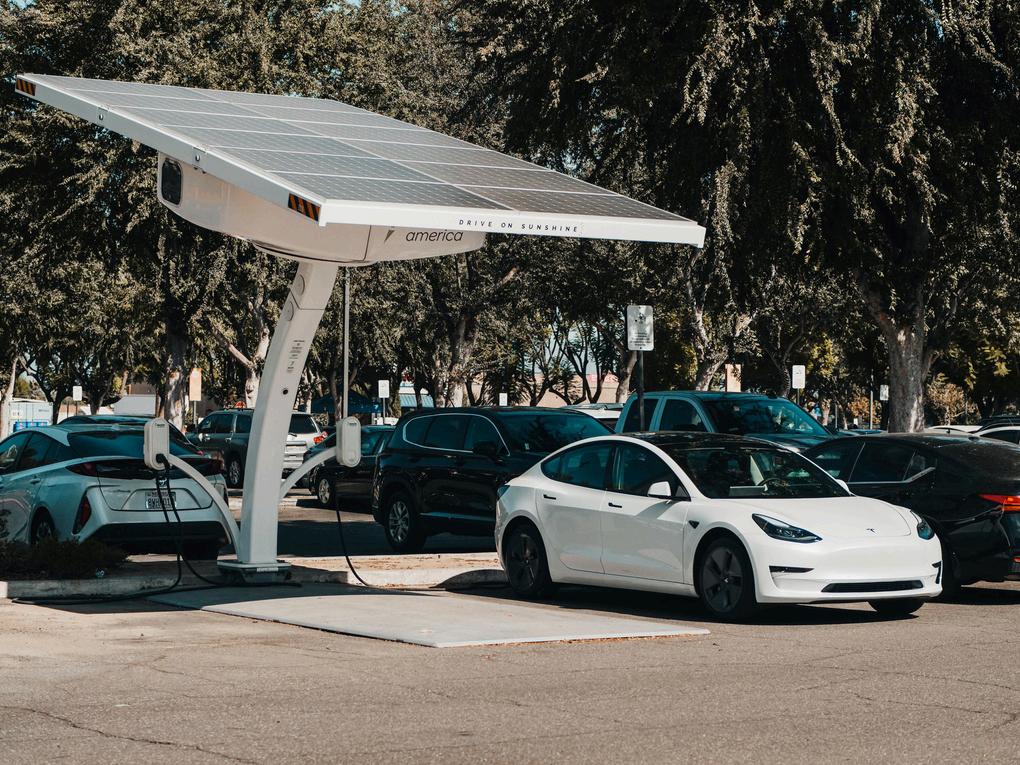
In recent years, the global conversation around transportation has shifted dramatically towards sustainability and the urgent need to reduce carbon emissions. One of the most promising solutions to this challenge is the widespread adoption of electric vehicles (EVs) As countries around the world commit to ambitious targets for decarbonization, corporate leadership has emerged as a driving force behind the acceleration of electric mobility adoption
The Road to Electric Mobility
The transition to electric mobility represents a significant paradigm shift in the automotive industry With advancements in battery technology, improvements in charging infrastructure, and growing consumer demand for eco-friendly transportation options, the stage is set for a rapid expansion of the EV market. However, realizing the full potential of electric mobility requires strong leadership and proactive initiatives from corporate entities across various sectors
Corporate Leadership in Action
Leading corporations are already taking bold steps to promote electric mobility adoption. From automotive giants investing heavily in electric vehicle development to tech companies innovating in the field of battery technology and charging infrastructure, corporate leaders are driving innovation and shaping the future of transportation Additionally, businesses are increasingly integrating electric vehicles into their fleets, setting ambitious sustainability targets, and collaborating with policymakers and other stakeholders to create an enabling environment for electric mobility
Challenges like range anxiety and infrastructure gaps are speed bumps on the journey to electric mobility, but they also represent opportunities for corporate leaders to drive innovation and collaboration.
high upfront cost of electric vehicles, and the need for further investment in charging infrastructure However, these challenges also present opportunities for corporate leaders to innovate, collaborate, and develop solutions that address the barriers to electric mobility adoption
Furthermore, the transition to electric mobility has the potential to create new markets, drive economic growth, and create jobs in sectors such as manufacturing, technology, and renewable energy By embracing electric mobility, corporations can position themselves as leaders in sustainability, enhance their brand reputation, and contribute to the global effort to combat climate change
Looking Ahead
As we look to the future, corporate leadership will continue to play a crucial role in accelerating electric mobility adoption By investing in research and development, expanding infrastructure, and advocating for supportive policies, businesses can drive innovation and pave the way for a sustainable transportation revolution. The road to electric mobility may present challenges, but with strong leadership and collective action, we can build a cleaner, greener future for generations to come
India, with its burgeoning population and rapid urbanization, faces significant challenges in transportation, including pollution and congestion In response, the country has set ambitious goals for electric mobility adoption, aiming to reduce emissions and promote sustainable transportation solutions This article explores the opportunities and challenges associated with accelerating electric mobility adoption in India Challenges and Opportunities
While the momentum towards electric mobility is growing, significant challenges remain These include concerns about range anxiety, the

| INDIA LEADERSHIPSPECIAL|MAR-APRISSUE2024 28 INDUSTRY OPINION
Opportunities:
Government Initiatives: The Indian government has launched several initiatives to promote electric mobility, including the Faster Adoption and Manufacturing of Hybrid and Electric Vehicles (FAME) scheme, providing incentives for EV adoption and infrastructure development
Rising Demand: With increasing environmental awareness and concerns about air pollution, there is a growing demand for cleaner transportation options among consumers and businesses
Economic Potential: The shift towards electric mobility presents opportunities for job creation, investment in manufacturing, and the development of a robust EV ecosystem, contributing to economic growth
Technological Innovation: India has a thriving technology sector, which can drive innovation in electric vehicle technology, battery storage, and charging infrastructure
Conclusion:
Infrastructure:
The lack of adequate charging infrastructure remains a significant barrier to electric mobility adoption, particularly in rural and semiurban areas
Range Anxiety:
Limited driving range and concerns about battery performance and reliability contribute to "range anxiety" among consumers, affecting EV adoption rates.
Cost:
The high upfront cost of electric vehicles compared to conventional vehicles is a deterrent for many consumers, despite potential long-term savings on fuel and maintenance
In the journey towards electric mobility, corporate pioneers blaze a trail of innovation, turning challenges into opportunities. Through their visionary leadership, they navigate the complexities of range anxiety and infrastructure gaps, guiding us towards a future where electric vehicles reign supreme.
Conclusion:
Accelerating electric mobility adoption in India requires a coordinated effort involving government, industry, and civil society Addressing infrastructure gaps, reducing costs through incentives and subsidies, and raising awareness about the benefits of electric vehicles are essential steps towards achieving India's goals for sustainable transportation With the right policies, investments, and partnerships, India can realize the full potential of electric mobility, contributing to a cleaner, greener future for all.

NITIN KAPOOR
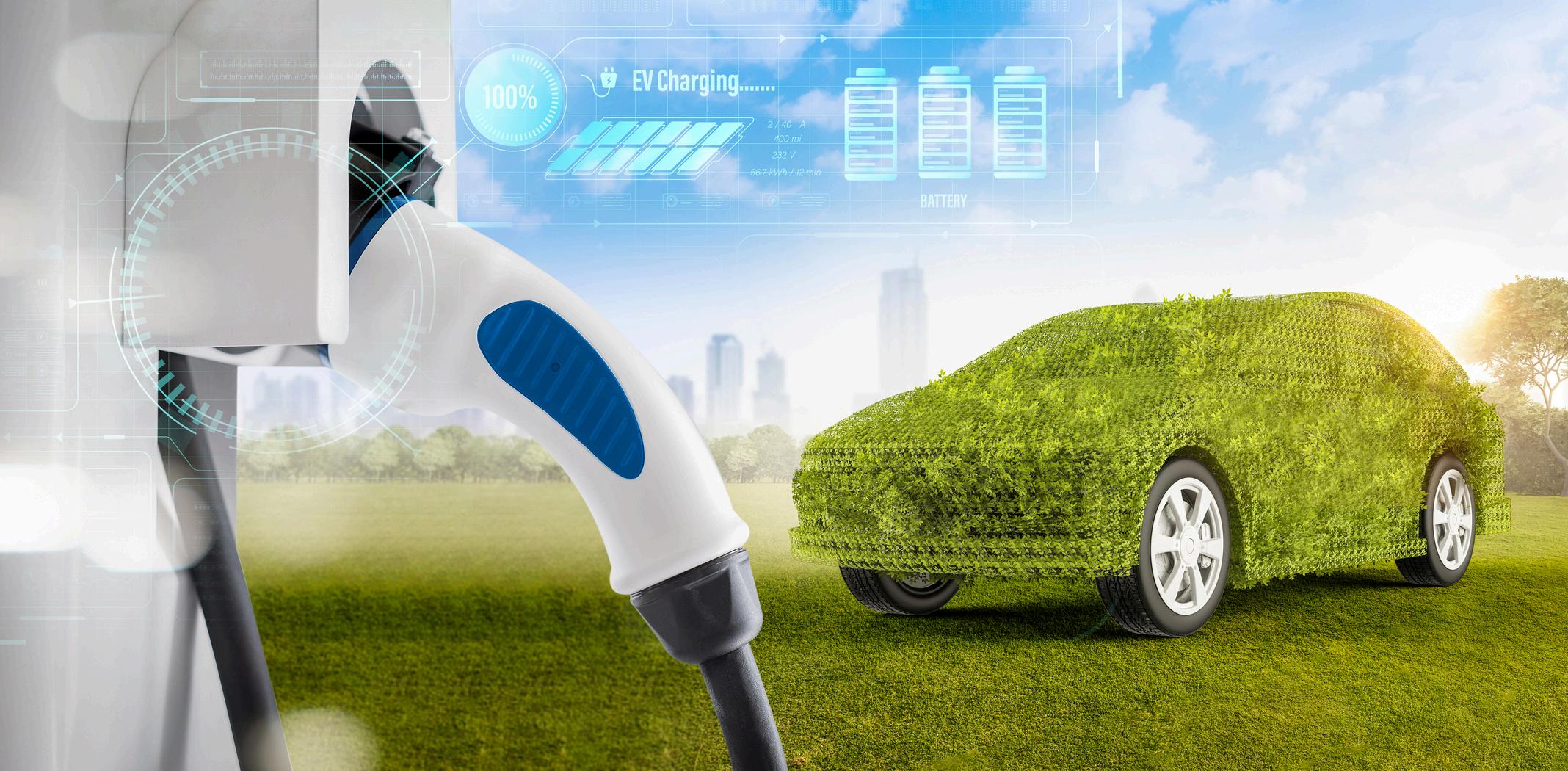

INDUSTRY OPINION | INDIA LEADERSHIPSPECIAL|MAR-APRISSUE2024 29
MD
Saera Electric & Saera Keto EV Pvt Ltd
ARE MUSHROOM STARTUPS IN EV SCOOTER SPACE KILLING THE INDUSTRY GROWTH?

Today we will see the growing number of Mushroom EV companies and how customers are troubled by them & how it is impacting the industry growth
In past 3-5 years, EV scooter industry has seen consistent double-digit growth with current sales volume crossing 800K annually. Today in India there are more than 300 companies registered for manufacturing of EV scooters (2022 data - the number keeps fluctuating as some get added and some close down) Unlike to ICE scooter market where only a handful of legacy businesses have survived the increasing regulatory demands & customer trust.
Questions is, is the volume growing as fast as it should, given the costbenefit analysis and despite having so many manufacturers in the space Let’s analyze
These are small startups mainly coming from B & C class cities trying to take their share of the Pie Most of them had no previous experience in the Automotive domain Some of them are from different industries or previously manufactured auto parts Young entrepreneurs too have decided to try their luck in the EV market which is growing.
They have registered as small-scale companies since investment & turnover is low
Why number of Mushroom
Startups increasing?
Its very easy to manufacture EV scooters, import components from China, assemble them in not-so state-of-art facilities and sell them through individual or common channels

In the race for market share, Mushroom EV companies risk the industry's reputation with their profit-driven tactics, while established brands maintain trust and service standards.
It requires low investment and low network. Supply chain management is easy as number of parts and assembly setup requirements are less & moreover, regulatory requirements are also minimal
As far as marketing is concerned hardly any company is spending in ads. They just depend on the dealer to pull in customers.
Market Leadership
Particularly in class A and some class B cities, the brand takes precedence over everything else, people need a better brand trust and service network Hence Ola, TVS, Bajaj, Ather etc are found to be doing good. The Mushroom brands are unable to penetrate these markets despite having lower price points
When we talk about C and D class cities plus taluka and village places, small companies are doing okay But certain mushroom startups have taken certain pockets of the market but none of them are Pan India players The main reason for they doing business is the product price point which is far lower than the big companies
Problem definition
While talking to various dealers & potential customers I realized that they are troubled by the mushroom startups Customers are remorseful of their decision of buying a EV scooter & some of them moving back towards ICE scooters Even some are refraining others from buying EV scooters with their bad experience
The main reasons derived from customer verbatim are
Most of the times the business practices followed by many EV Mushroom startups are same when it comes to distribution and service of EVS Most practices are focused towards company profit in short term & oriented towards customers & dealers
Mushroom EV scooter manufacturers
| INDIA LEADERSHIPSPECIAL|MAR-APRISSUE2024 30 INDUSTRY OPINION
The biggest problem seen by people with mushroom startups is the continuity of business So far many companies have shut down owing to supply chain issues from China, issues in marketing & service, business expectations which were never achieved
Short-sited Business practices are forcing dealerships to close down False commitments, attrition in sales/service people and ignorance towards customers once sales are done is keeping the dealers face all the heat Dealers are incurring losses forcing them to close down & alarming the business circles to stay away from this business
I also met customers who have used an EV for one and half year 2 years and then in case of technical issues have found the dealer is closed and there is no more dealer in available in the city
Warranty has been declined for stupid reasons & customer have incurred huge penalty if he wants to keep the vehicle running. The warranty issue is faced with all brands big or small
Lets understand better,
Imagine a Mushroom EV company has sold 2000 scooters worth Rs 1 Lakh each in 3 years in their respective pocket It means they have done business worth 20 crore rupees, and suddenly management decides to close down the company as the business is not growing as per plan
In such a case what about those 2000 customers who have purchased vehicles owing to government push & fuel saving advertisements?? They will have no support system in case of issues! No go-to dealer or service person to supply them with spares or service
In an EV scooter the major components include a battery, controller & motors to which 2-3 years warranty is provided What will happen if a warranty claim arises after the company closes down?? Who will honor the terms and provide them with technical support??
……. I met many customers who have suffered because of this. they have literally sold their vehicle for 10000 - 20000 odd rupees which was purchased for more than a lakh of rupees. So here the value has gone down by 90% Was the Fuel saving worth 90% of the cost?? Does it justify the purchase decision??
Historically, the automotive industry has abided by a regulation to supply parts and provide services for at least 7 years after a product launch even if the company decides to close down
As the market swells with mushrooming ventures, trust becomes a scarce commodity, leaving consumers mired in regret and industry-wide stagnation. Amidst this landscape, the allure of traditional ICE scooters beckons, as disillusioned buyers seek refuge from the pitfalls of nascent EV ventures.
This brings a very critical point in our mind,
isn't the regulation applicable to the mushroom startups to provide services post-sales??
are they not required to honor the key regulation of 7 years of postsales support??
how can the government allow these companies to close down so easily and leave their customers orphan??
Many who have suffered have moved back to ICE scooters & also refraining others to purchasing EVs Unfortunately, the term ‘customer is promoter’ is forgotten by these small companies
These instances are growing & are hampering the overall industry growth. Also, they are decreasing the competition which normally keeps any industry healthy
Don’t you think there is a need for stringent regulations? & specific authorities to ensure the regulations are met and strict actions are taken in case of violation?
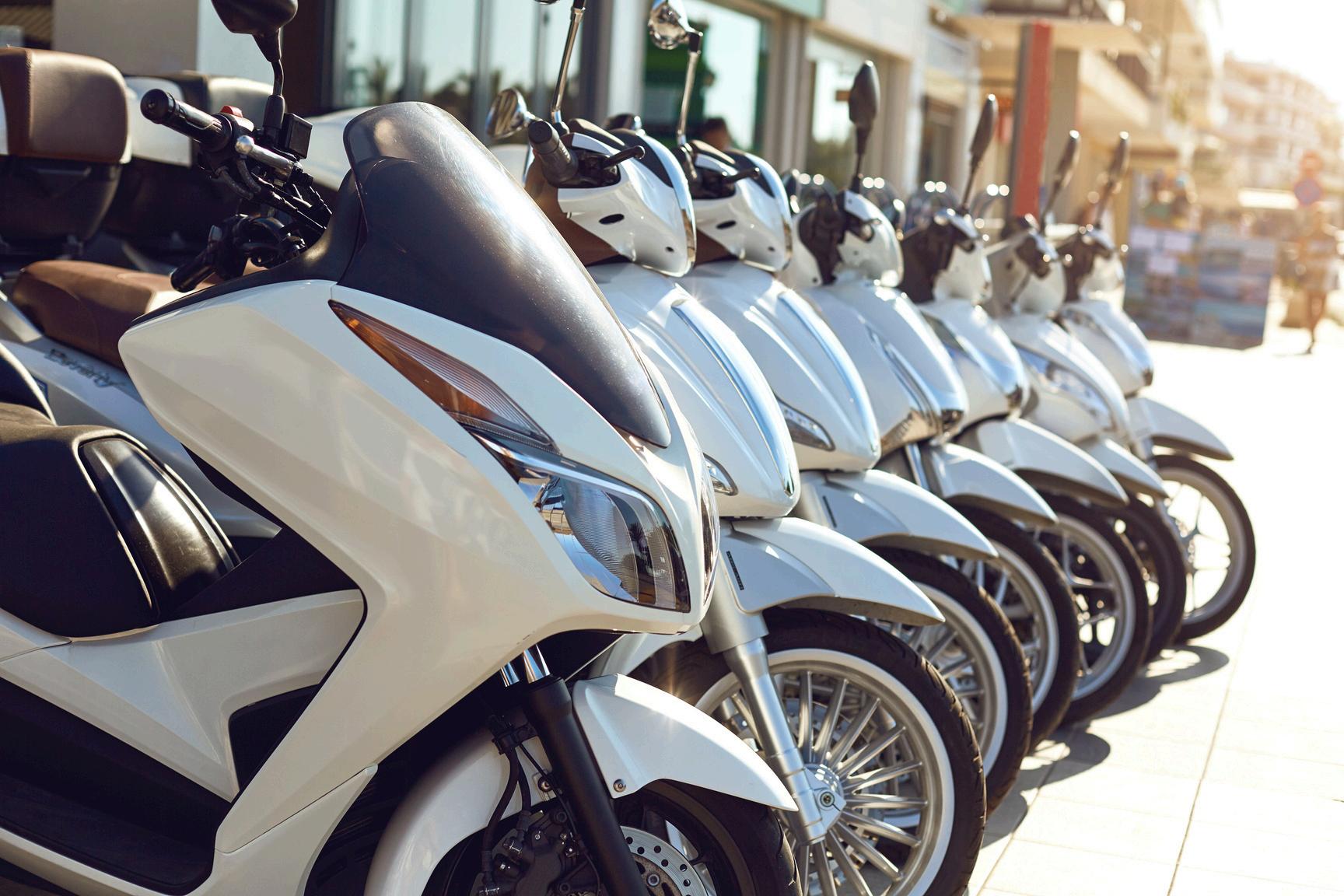

INDUSTRY OPINION
Founder Exponent Business Solutions ABHIJIT KULKARNI
| INDIA LEADERSHIPSPECIAL|MAR-APRISSUE2024 31
THE ROLE OF PUBLICPRIVATE PARTNERSHIPS IN INDIA'S ELECTRIC MOBILITY INFRASTRUCTURE DEVELOPMENT


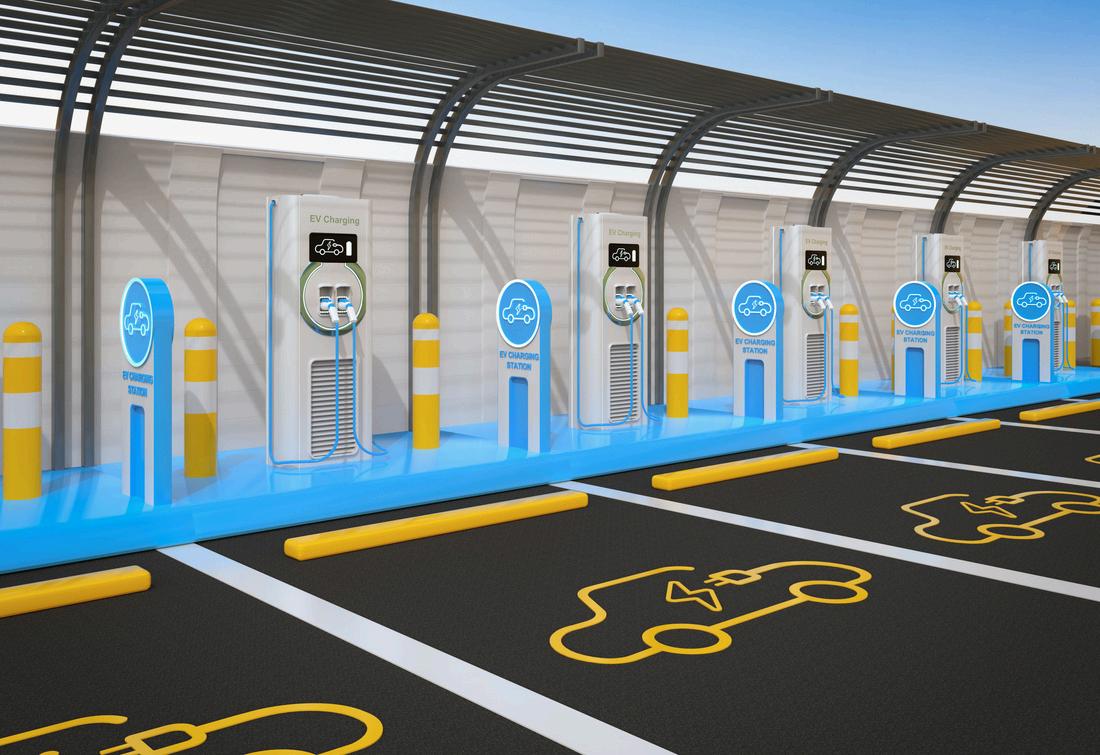


India's transition towards electric mobility requires a concerted effort from both public and private sectors to develop the necessary infrastructure to support widespread adoption of electric vehicles (EVs) In this Knowledge Byte, we explore the role of public-private partnerships (PPPs) in India's electric mobility infrastructure development, highlighting the collaborative efforts driving the growth of EV charging networks, battery swapping stations, and other critical infrastructure components
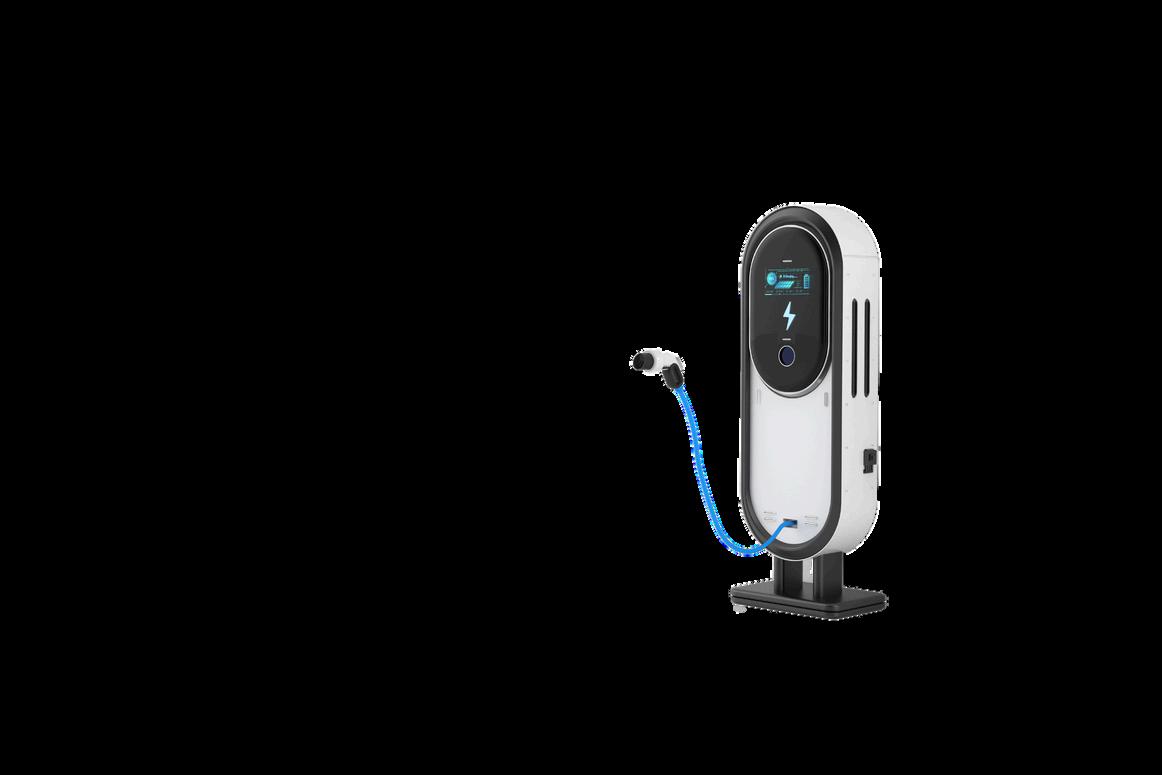
Furthermore, smart charging networks equipped with cloud-based management systems, predictive analytics, and demand-response capabilities are optimizing the utilization of charging infrastructure and enhancing the efficiency of EV charging operations By leveraging data analytics and real-time monitoring, smart charging networks can adjust charging schedules, manage peak demand, and minimize grid impact, thereby ensuring reliable and sustainable operation of EV charging stations.
Public-private partnerships play a crucial role in overcoming the challenges associated with electric mobility infrastructure development, including high capital costs, regulatory hurdles, and technological complexities By bringing together the resources, expertise, and networks of both public and private entities, PPPs enable faster deployment of EV charging infrastructure and enhance accessibility and convenience for EV users across India.
One of the key areas where PPPs are making significant strides is in the development of EV charging infrastructure. Charging infrastructure is essential for addressing range anxiety concerns among EV owners and facilitating the widespread adoption of electric vehicles PPPs involving government agencies, utility companies, and private charging infrastructure providers are instrumental in deploying charging stations in strategic locations, such as highways, urban centers, and commercial hubs
Moreover, PPPs are driving innovation in charging infrastructure, with the development of fast chargers, ultra-fast chargers, and smart charging networks. Fast chargers capable of delivering high-power DC charging are being deployed along major highways and intercity routes, enabling EVs to recharge quickly and conveniently during long-distance travel Ultra-fast chargers, with charging capacities of up to 350 kW or more, are also being piloted in select locations, offering ultra-rapid charging speeds and reducing charging times significantly.

Battery swapping stations are another area where PPPs are driving innovation and expansion in India's electric mobility infrastructure Battery swapping offers a convenient and time-efficient alternative to traditional charging, enabling EV owners to swap depleted batteries for fully charged ones in a matter of minutes PPPs involving OEMs, battery manufacturers, and energy service providers are collaborating to deploy battery swapping networks in urban areas, enabling seamless and hassle-free charging experiences for EV users
Moreover, PPPs are playing a critical role in addressing the financing and funding challenges associated with electric mobility infrastructure development By leveraging public funds, subsidies, and incentives, along with private investments and expertise, PPPs can mobilize the necessary resources to accelerate the deployment of EV charging infrastructure, battery swapping stations, and other essential components of the electric mobility ecosystem
In conclusion, public-private partnerships are driving India's electric mobility infrastructure development, enabling the deployment of EV charging infrastructure, battery swapping stations, and other critical components necessary for the widespread adoption of electric vehicles. By fostering collaboration, innovation, and investment between public and private stakeholders, PPPs are paving the way for a cleaner, greener, and more sustainable transportation future in India
KNOWLEDGE BYTE | INDIA LEADERSHIPSPECIAL|MAR-APRISSUE2024 32

THE ELECTRIC VEHICLE REVOLUTION: GEARING UP FOR A MAJOR SHIFT

The Indian automotive landscape is undergoing a seismic shift towards electric vehicles (EVs) This transformation is driven by a potent combination of market responsiveness, strategic product diversification, rapidly evolving charging infrastructure and new product introductions Let's delve deeper into these key factors propelling India's EV revolution, segment wise.
The electric four-wheeler (e4w) segment is witnessing established players like Hyundai and Tata leveraging their existing distribution networks of over 5,000 touchpoints across India to introduce compelling EV models This strategic move will undoubtedly accelerate e4w penetration by leveraging their widespread reach and brand recognition
The electric three-wheeler (e3w) segment boasts the highest level of EV penetration due to a dynamic environment where established players and new entrants are equally aggressive Notably, over 50% of all three wheeler registrations in India for the past 2 years were electric , according to the International Energy Agency (IEA). This fierce competition fosters rapid innovation and keeps prices competitive, further accelerating adoption
We see a clear trend of brands in the electric two-wheeler (e2w) segment actively listening to consumer feedback. This agile approach has resulted in a broader product portfolio, catering to diverse needs The introduction of family-oriented scooters and cost-effective options is a prime example This strategy has yielded impressive results, with market penetration in the electric scooter segment increasing from single digit to 20%. This trend highlights the crucial role of consumercentricity in accelerating EV adoption
Given the sheer volume of motorcycles on Indian roads, the t to electric motorcycles could have a profound impact As tec advances and infrastructure improves, electric motorcyc become a common sight, unlocking their untapped poten market where motorcycles constitute a significant portion of th

With over 50% of three-wheeler registrations in 2022 being electric, fierce competition breeds innovation, making the e3w segment a beacon of rapid adoption and evolution.
wheeler industry. During the financial year 2023-24 , over 11.6 million motorcycles were sold in the country This impressive figure underscores the enduring popularity of motorcycles as a mode of transportation for millions of Indians and an untapped potential for electric motorcycles Traditionally, motorcycles have been the largest contributors in the two-wheeler segment, but now we’re witnessing the entry of new players who are developing electric alternatives This expansion into the electric vehicle industry has the potential to significantly boost overall EV adoption in the two-wheeler market.
The often-cited barriers of range anxiety and safety concerns are gradually being addressed The rapid expansion of the public charging network, spearheaded by a collaborative effort from the government, private companies, and charging point operators (CPO) has significantly improved accessibility The growth of EV charging points from 500 in 2015 to 12,146 in Feb 2024 is a testament to it Additionally, the implementation of stringent safety norms has led to absence of incidents related to EV safety over the past two years, which has instilled a sense of confidence in consumers.
In conclusion, with government support, proactive initiatives by startups and auto OEMs, and the continuous improvement of charging infrastructure, 2024 appears poised to be a pivotal year for solidifying India's transition to EVs. This multi-pronged approach, encompassing diverse product offerings, improved accessibility, and a growing sense of consumer confidence, is paving the way for a more sustainable future for Indian transportation
 Chief Business Officer
Chief Business Officer
| INDIA ECIAL|MAR-APRISSUE2024 34 INDUSTRY OPINION
Raptee Energy JAYAPRADEEP VASUDEVAN
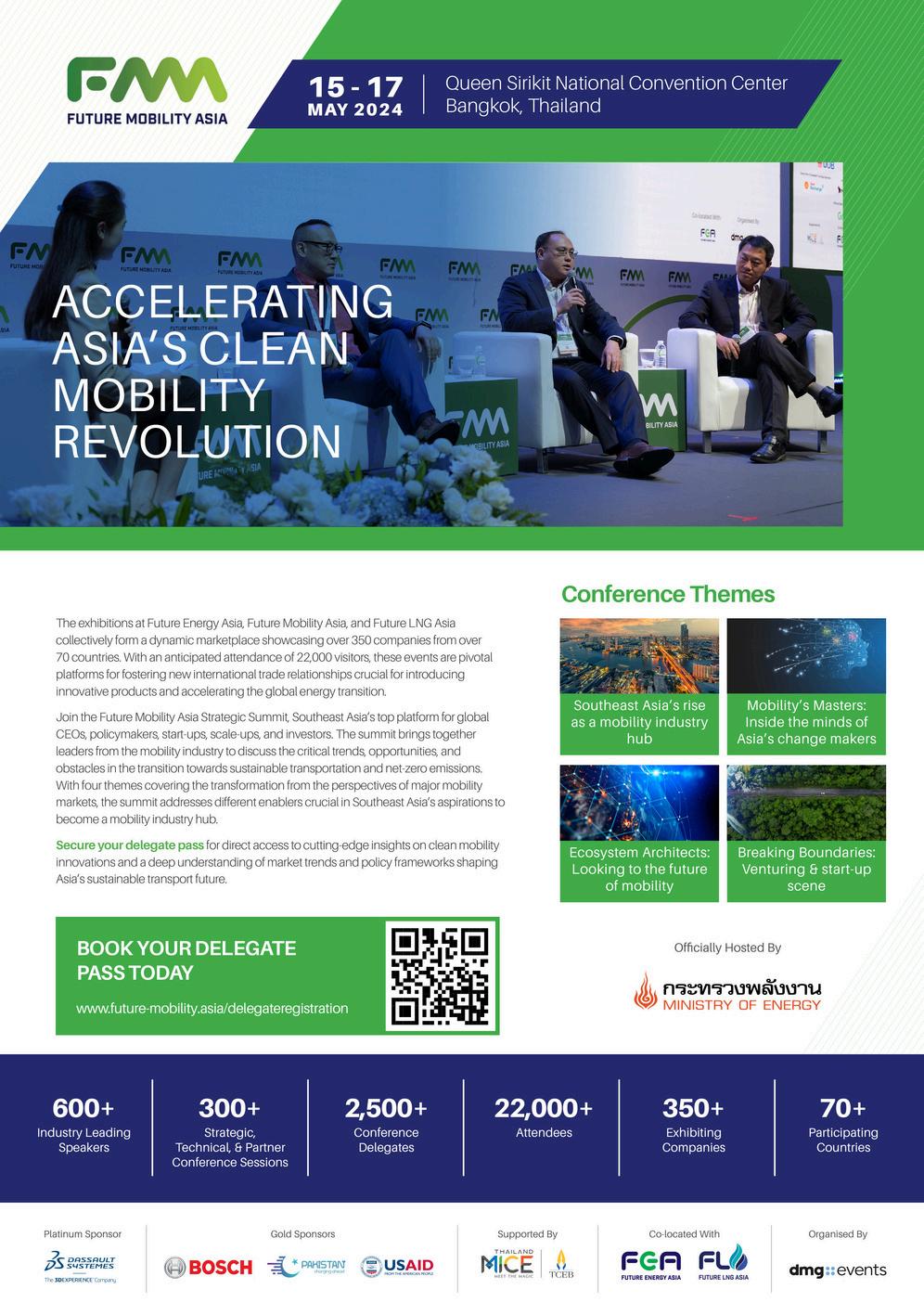

| INDIA LEADERSHIPSPECIAL|MAR-APRISSUE2024 35
INDIA'S ELECTRIC MOBILITY LANDSCAPE
Insights from Industry Leaders and Experts

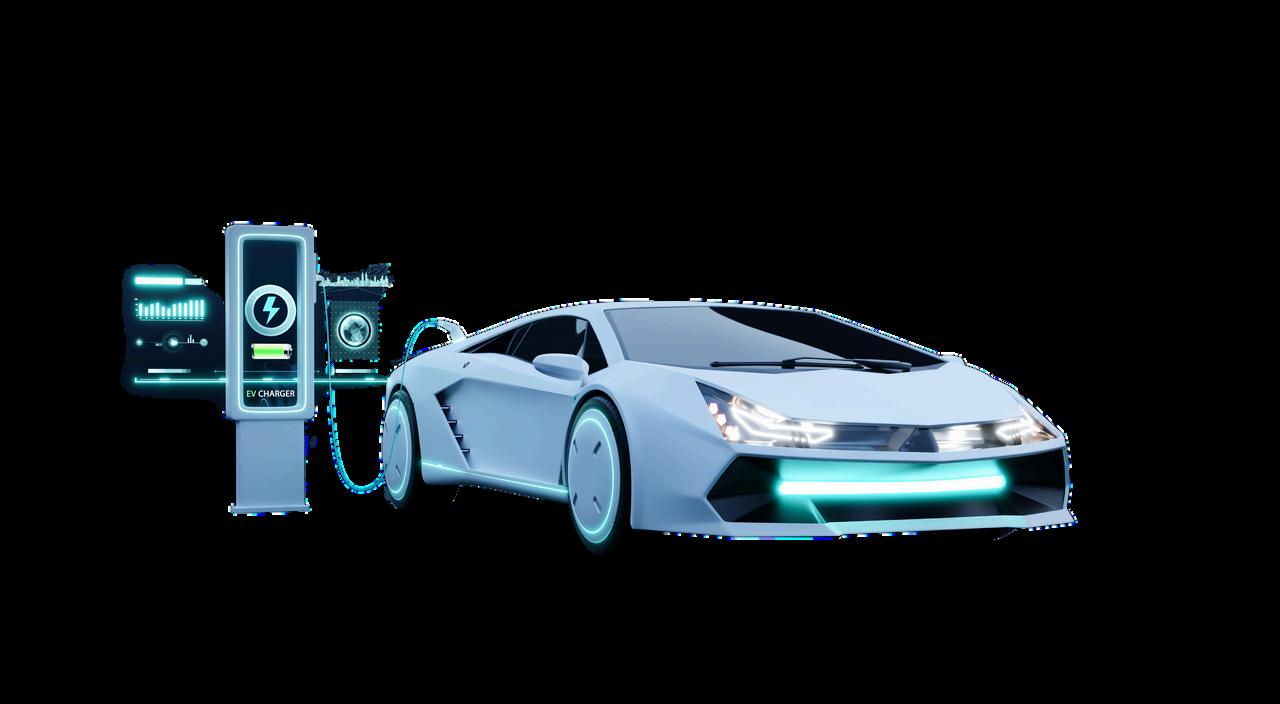
In the dynamic landscape of transportation in India, electric mobility has emerged as a key focus area, driven by a combination of technological innovation, government policies, and changing consumer preferences. As the country aims to transition towards cleaner and greener transportation solutions, the electric mobility sector is witnessing rapid growth and evolution This column explore India's electric mobility sector, gathering insights from industry leaders and experts regarding the prevailing trends, challenges, and opportunities influencing the landscape.
The electric mobility sector in India has experienced significant growth in recent years, fueled by increasing awareness of environmental sustainability and the need to reduce greenhouse gas emissions With the government's ambitious target of achieving 30% electric vehicle penetration by 2030, industry stakeholders are working towards accelerating the adoption of electric vehicles across the country From electric cars and two-wheelers to electric buses and commercial vehicles, the electric mobility market in India is witnessing a diverse range of offerings catering to various segments and applications.
Industry leaders and experts emphasize the importance of collaboration and partnership among stakeholders to drive the growth of electric mobility in India With a complex ecosystem comprising government agencies, automotive manufacturers, charging infrastructure providers, and consumers, collaboration is essential to address the multifaceted challenges hindering the widespread adoption of electric vehicles By fostering partnerships and alliances, stakeholders can leverage each other's strengths and resources to overcome barriers and unlock the full potential of electric mobility.
One of the key challenges facing the electric mobility sector in India is the need for robust charging infrastructure While significant progress has been made in expanding the EV charging network, particularly in urban areas, gaps remain in rural and semi-urban regions. Industry

leaders stress the importance of accelerating the deployment of charging infrastructure across the country to address range anxiety concerns among consumers and facilitate the widespread adoption of electric vehicles Additionally, advancements in charging technology, such as fast chargers and battery swapping stations, are critical to enhancing the convenience and accessibility of EV charging.
Government policies and regulations play a crucial role in shaping the electric mobility landscape in India Industry leaders commend the government's initiatives, such as the Faster Adoption and Manufacturing of Electric Vehicles (FAME) scheme and the National Electric Mobility Mission Plan (NEMMP), for providing incentives and subsidies to promote electric vehicle adoption However, experts highlight the need for a cohesive and long-term policy framework to provide certainty and stability to industry players and investors, thereby fostering greater confidence and investment in the electric mobility sector
Consumer awareness and acceptance of electric vehicles are also key determinants of the sector's growth trajectory Industry leaders emphasize the importance of educating consumers about the benefits of electric mobility, including lower operating costs, reduced environmental impact, and enhanced driving experience By addressing misconceptions and increasing awareness, stakeholders can stimulate demand for electric vehicles and drive market growth India's electric mobility landscape presents immense opportunities for innovation, investment, and collaboration With concerted efforts from industry stakeholders, policymakers, and consumers, India has the potential to emerge as a global leader in electric mobility and contribute significantly to sustainable transportation solutions By leveraging insights from industry leaders and experts, stakeholders can navigate the complexities of the electric mobility sector and drive positive change towards a cleaner and greener future for India's transportation ecosystem
| INDIA LEADERSHIPSPECIAL|MAR-APRISSUE2024 36
CURRENT AFFAIRS
TOP EV TWO WHEELER SALES IN INDIA, MARCH 2024 TOP EV THREE WHEELER SALES
IN INDIA, MARCH 2024

0 10,000 20,000 30,000 40,000 50,000 60,000 OLAELECTRICTECHNOLOGIESTVSMOTORCOMPANY BAJAJAUTO ATHERENERGYHEROMOTOCORP KINETICGREENENERGY&POWERSOLUTIONS BGAUSSAUTOGREAVESELECTRICMOBILITY OKAYAEV WARDWIZARDINNOVATIONS&MOBILITY 0 2,000 4,000 6,000 8,000 MAHINDRALASTMILEMOBILITY BAJAJAUTOYCELECTRICVEHICLEPIAGGIOVEHICLES OMEGASEIKISAERAELECTRICAUTODILLIELECTRICAUTO MINIMETROEVUNIQUEINTERNATIONALHOTAGECORPORATIONINDIA 50,538 7,157 26,466 3,354 17,900 3 321 17,204 3 299 4,060 2 247 3,964 2,190 3,107 2,182 3,007 1,162 1,233 1,075 1,019 1,021 | INDIA LEADERSHIPSPECIAL|MAR-APRISSUE2024 37 MARKET STATISTICS
OPPORTUNITIES AND CHALLENGES FOR ENTREPRENEURS Navigating the Indian Electric Vehicle Market:

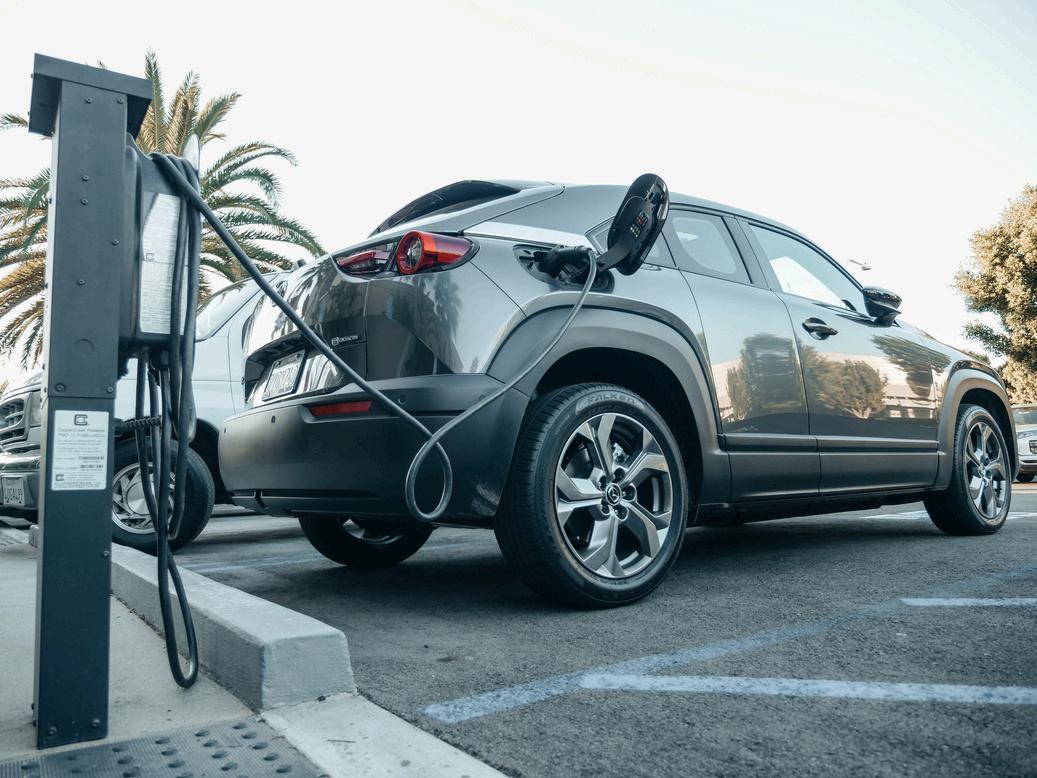

In India, the electric vehicle (EV) market is gaining momentum, driven by factors such as environmental concerns, government incentives, and technological advancements For entrepreneurs looking to capitalize on this burgeoning market, navigating the landscape presents a mix of opportunities and challenges. This article explore the Indian electric vehicle market, highlighting key opportunities for entrepreneurs while addressing the challenges they may encounter along the way
Opportunities abound in the Indian electric vehicle market, particularly in sectors such as electric two-wheelers, three-wheelers, and commercial vehicles With the Indian government's push towards electrification and the ambitious targets set for EV adoption, entrepreneurs have a ripe opportunity to capitalize on the growing demand for clean and sustainable transportation solutions. Moreover, the rise of electric mobility startups and innovative business models presents entrepreneurs with avenues to carve out their niche in the market and differentiate themselves from established players
One of the significant opportunities for entrepreneurs lies in electric two-wheelers, which are witnessing robust demand due to their affordability, efficiency, and suitability for urban commuting With the proliferation of electric scooter startups and the entry of established players into the segment, entrepreneurs have the opportunity to develop innovative electric two-wheeler offerings tailored to the needs of Indian consumers By focusing on factors such as range, performance, and affordability, entrepreneurs can tap into the burgeoning market for electric scooters and motorcycles in India
Similarly, the electric three-wheeler segment presents lucrative opportunities for entrepreneurs, driven by the demand for last-mile connectivity solutions in urban and peri-urban areas Electric rickshaws and e-autos are increasingly replacing their conventional counterparts,


offering lower operating costs, reduced emissions, and enhanced passenger comfort. Entrepreneurs can capitalize on this trend by developing electric three-wheelers with features such as swappable batteries, digital payment integration, and IoT-enabled tracking systems, catering to the needs of drivers and passengers alike
Commercial electric vehicles, including electric buses and delivery vans, represent another promising opportunity for entrepreneurs in the Indian market With the government's emphasis on electrifying public transport and logistics fleets, entrepreneurs can explore partnerships with fleet operators, government agencies, and logistics companies to deploy electric vehicles for passenger transport and freight delivery. By offering innovative financing solutions, leasing options, and after-sales services, entrepreneurs can facilitate the transition to electric mobility for commercial fleet operators and capitalize on the growing demand for clean and efficient transportation solutions
Despite the myriad opportunities in the Indian electric vehicle market, entrepreneurs may encounter several challenges along the way These include regulatory uncertainties, infrastructure gaps, technology barriers, and market competition Navigating these challenges requires entrepreneurs to adopt a strategic approach, leveraging partnerships, alliances, and innovation to overcome obstacles and seize opportunities in the rapidly evolving electric mobility landscape
The Indian electric vehicle market offers abundant opportunities for entrepreneurs to innovate, disrupt, and succeed. By focusing on key sectors such as electric two-wheelers, three-wheelers, and commercial vehicles, entrepreneurs can capitalize on the growing demand for clean and sustainable transportation solutions in India However, navigating the market requires resilience, adaptability, and strategic foresight to overcome challenges and achieve long-term success in the dynamic and competitive electric mobility ecosystem
| INDIA LEADERSHIPSPECIAL|MAR-APRISSUE2024 38 BUSINESS INSIGHTS

GRAND

Navigating Excellence, Defining Leadership


Swarana Lead Electric Veh and Strategy Audi India STRATEGIC PAR




TECHNOLOGY BREAKTHROUGH IN EV POWERTRAIN


Akshi Jain
usiness Developm indra EV Pvt. Ltd.



Charging Ahead: Strategies For
IMPLEMENTING ELECTRIC MOBILITY SOLUTIONS IN CORPORATE FLEETS
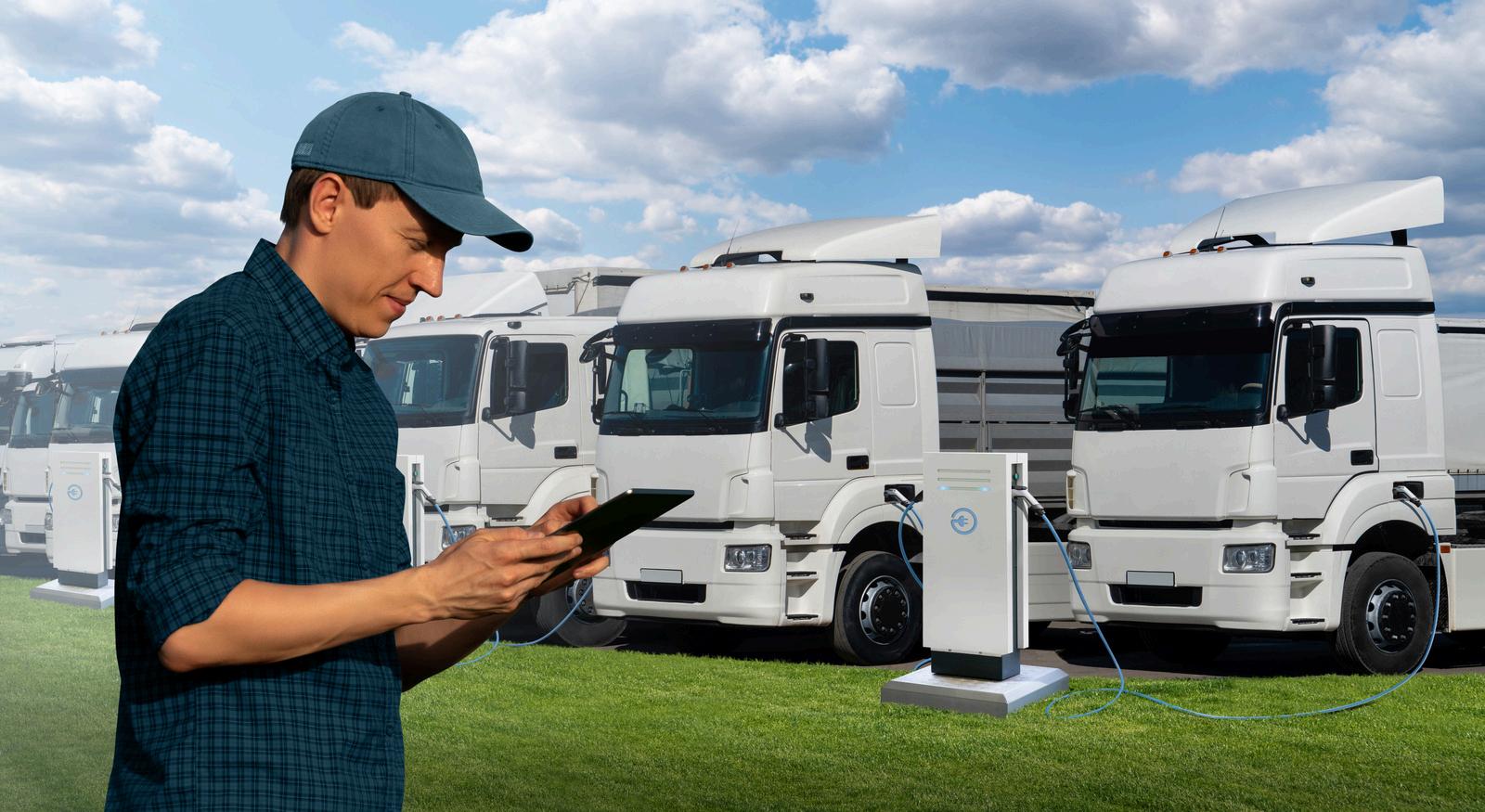
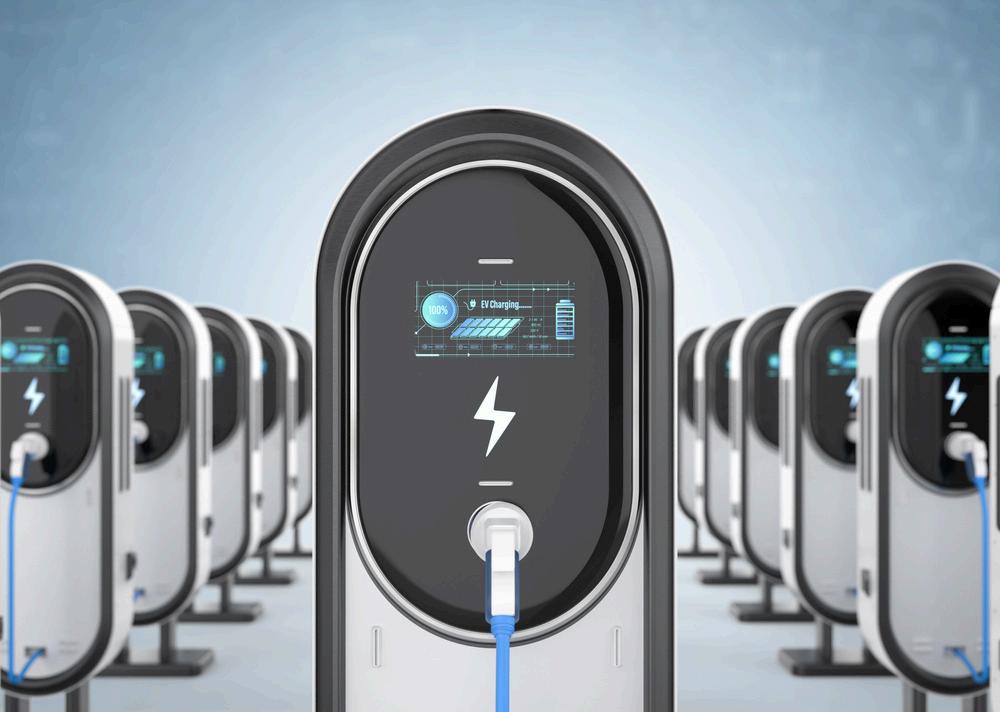
In the ever-evolving landscape of transportation, electric mobility has emerged as a promising solution to address environmental concerns and reduce carbon emissions As the world shifts towards sustainable practices, corporate fleets are increasingly embracing electric vehicles (EVs) as part of their transportation strategies This column delve into the strategies and challenges associated with implementing electric mobility solutions in corporate fleets.
The adoption of electric vehicles in corporate fleets offers numerous benefits, ranging from cost savings to environmental sustainability With lower fuel and maintenance costs compared to traditional internal combustion engine vehicles, EVs present an opportunity for companies to reduce operational expenses and enhance their bottom line Moreover, by transitioning to electric mobility, corporations can demonstrate their commitment to environmental stewardship and align with sustainability goals, thereby enhancing their corporate social responsibility (CSR) initiatives.
One of the key strategies for implementing electric mobility solutions in corporate fleets is the development of robust charging infrastructure Unlike traditional gasoline-powered vehicles, EVs require access to charging stations for recharging their batteries. Therefore, companies must invest in installing charging infrastructure at their corporate campuses, office buildings, and other strategic locations frequented by fleet vehicles By providing convenient and reliable charging facilities, corporations can alleviate range anxiety among drivers and facilitate the widespread adoption of electric vehicles.
In addition to infrastructure development, fleet managers must also consider factors such as vehicle selection and fleet optimization when transitioning to electric mobility Conducting a thorough analysis of fleet operations, including driving patterns, route optimization, and vehicle requirements, can help identify opportunities for electrification For instance, deploying electric vehicles for short-distance urban deliveries or commuting purposes may yield significant fuel savings


and emissions reductions. Furthermore, leveraging telematics and fleet management software can enable real-time monitoring of EV performance and charging status, facilitating efficient fleet operations
Another critical aspect of implementing electric mobility solutions in corporate fleets is employee engagement and training. As EV technology continues to evolve, it is essential to educate fleet drivers and personnel about the benefits and features of electric vehicles Providing training on EV operation, charging protocols, and maintenance procedures can empower drivers to maximize the efficiency and performance of electric fleet vehicles Moreover, fostering a culture of sustainability and eco-consciousness within the organization can motivate employees to embrace electric mobility and support the transition towards a greener future.
Despite the numerous benefits of electric mobility, several challenges persist in the adoption of EVs in corporate fleets Range limitations, charging infrastructure constraints, and upfront costs are some of the common barriers encountered by fleet managers. To overcome these challenges, companies must collaborate with stakeholders such as government agencies, utility providers, and industry partners to develop innovative solutions and incentives for accelerating the electrification of corporate fleets Policy support, financial incentives, and investment in research and development are essential components of a comprehensive strategy to promote electric mobility adoption
In conclusion, electric mobility holds immense potential for transforming corporate fleets and driving sustainable transportation practices By embracing electric vehicles and implementing strategic initiatives such as infrastructure development, fleet optimization, and employee engagement, companies can position themselves as leaders in the transition towards a cleaner and greener future With concerted efforts and collaboration across sectors, charging ahead with electric mobility solutions in corporate fleets can pave the way for a more sustainable and resilient transportation ecosystem
| INDIA LEADERSHIPSPECIAL|MAR-APRISSUE2024 40 SPECIAL STORY
Revolutionizing Transportation:
TECHNOLOGICAL INNOVATIONS DRIVING INDIA'S ELECTRIC MOBILITY REVOLUTION
India's electric mobility revolution is fueled by a wave of technological innovations that are transforming the transportation landscape and driving the adoption of electric vehicles (EVs) across the country. In this Tech Story, we delve into the technological advancements revolutionizing India's electric mobility sector, exploring key innovations driving the shift towards cleaner, greener, and more sustainable transportation solutions
Battery technology lies at the heart of the electric mobility revolution, and significant advancements in battery chemistry, design, and manufacturing are driving improvements in range, performance, and affordability of electric vehicles Lithium-ion batteries, the dominant technology in EVs, are witnessing continuous improvements, with developments in materials science, cell design, and manufacturing processes leading to higher energy densities, faster charging times, and longer battery lifespans
Moreover, the emergence of solid-state batteries holds the promise of further enhancing the performance and safety of electric vehicles Solid-state batteries offer higher energy densities, reduced risk of thermal runaway, and enhanced stability compared to conventional lithium-ion batteries, making them an attractive option for electric vehicle manufacturers seeking to push the boundaries of range and efficiency
In addition to advancements in battery technology, electric vehicle drivetrains are also undergoing rapid innovation, with the development of more efficient and compact electric motors and power electronics Permanent magnet motors, induction motors, and synchronous reluctance motors are some of the motor technologies being deployed in electric vehicles, each offering unique advantages in terms of efficiency, power density, and cost-effectiveness
management systems and vehicle-to-grid (V2G) technologies are also being developed to optimize energy usage, facilitate bi-directional charging, and enable grid integration, transforming electric vehicles into smart, grid-responsive assets
Charging infrastructure is another area witnessing significant technological innovation, with the development of fast chargers, wireless charging solutions, and smart charging networks Fast chargers capable of delivering high-power DC charging are becoming increasingly prevalent, enabling EVs to recharge quickly and conveniently, thereby addressing range anxiety concerns and enhancing the appeal of electric vehicles to consumers
Wireless charging technology, which allows electric vehicles to charge without the need for physical cables, is also gaining traction, offering convenience and ease of use for EV owners Moreover, smart charging networks equipped with cloud-based management systems, predictive analytics, and demand-response capabilities are enabling efficient utilization of charging infrastructure, optimizing charging schedules, and minimizing grid impact.
Furthermore, advancements in vehicle connectivity, telematics, and autonomous driving technologies are reshaping the future of electric mobility, enabling features such as remote diagnostics, over-the-air updates, and autonomous driving assistance. By leveraging data analytics, artificial intelligence, and sensor technology, electric vehicle manufacturers can enhance safety, efficiency, and user experience, driving the widespread adoption of electric vehicles in India and beyond
In conclusion, technological innovations are playing a pivotal role in revolutionizing India's electric mobility sector, driving improvements in
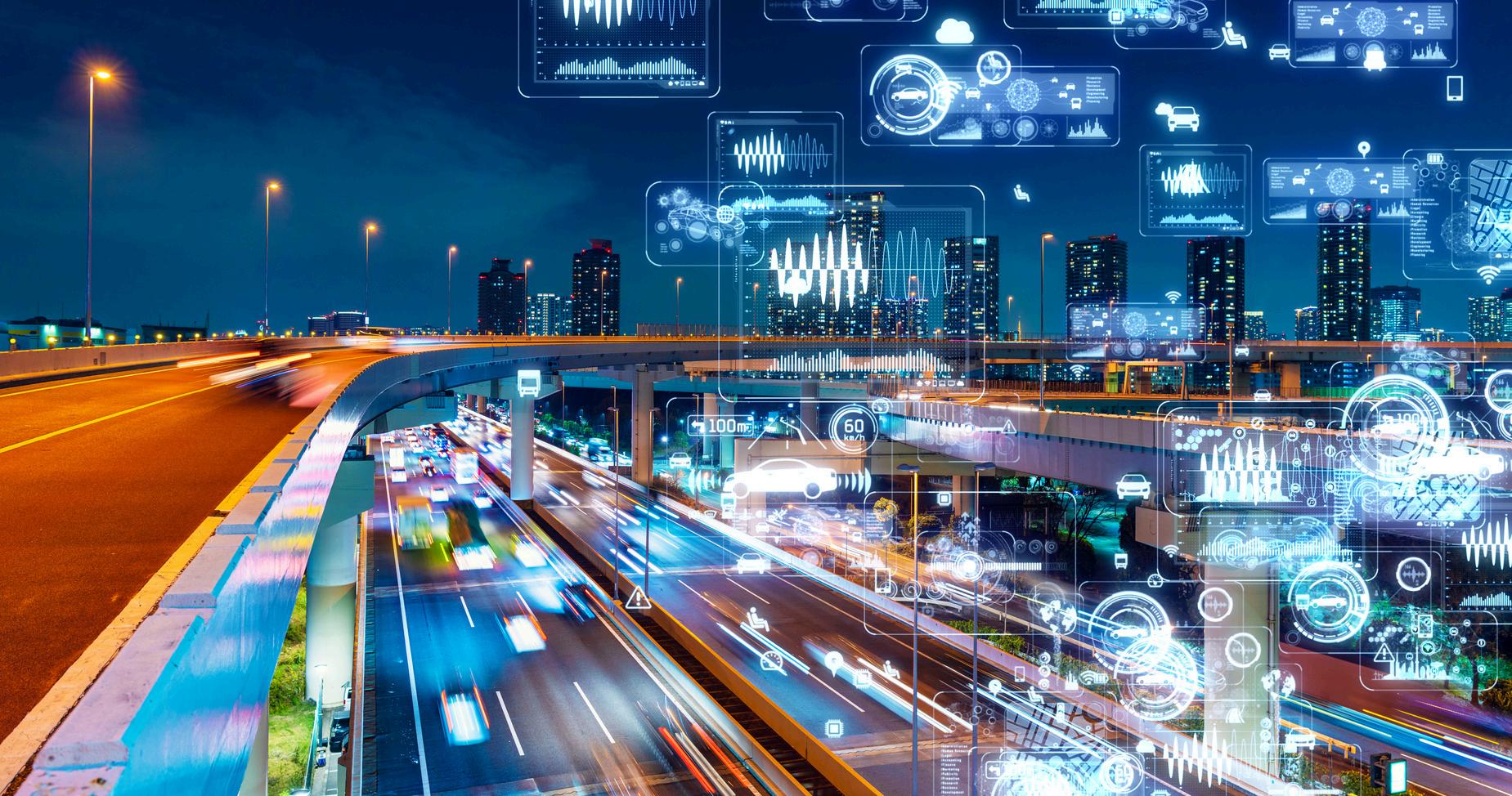

TECH STORY
Policy Perspectives: Government Initiatives Driving
INDIA'S ELECTRIC MOBILITY TRANSITION
India's transition towards electric mobility is gaining momentum, largely driven by government initiatives aimed at promoting the adoption of electric vehicles (EVs) and reducing carbon emissions in the transportation sector In this Policy Research Story, we delve into the policy perspectives shaping India's electric mobility transition, exploring the key government initiatives driving the shift towards cleaner and greener transportation solutions
The Indian government has recognized the importance of electric mobility in addressing environmental concerns, reducing dependence on fossil fuels, and promoting sustainable development To accelerate the adoption of EVs, the government has introduced several policy measures and incentives aimed at incentivizing manufacturers, buyers, and other stakeholders in the electric mobility ecosystem
One of the flagship initiatives driving India's electric mobility transition is the Faster Adoption and Manufacturing of Electric Vehicles (FAME) scheme. Launched in 2015 and subsequently extended and revised, FAME provides financial incentives for the purchase of electric vehicles, including two-wheelers, three-wheelers, and electric cars Under the scheme, buyers of EVs are eligible for subsidies and incentives, making electric vehicles more affordable and accessible to consumers.
In addition to incentives for buyers, the FAME scheme also provides support for the deployment of charging infrastructure across the country Charging infrastructure is critical for the widespread adoption of electric vehicles, and the government's efforts to develop a robust charging network are essential for addressing range anxiety concerns among consumers and facilitating the transition to electric mobility
Apart from the FAME scheme, the government has implemented various other policies and initiatives to promote electric mobility in India These include tax incentives and exemptions, research and development grants, and procurement mandates for electric vehicles in government fleets Moreover, the government has set ambitious
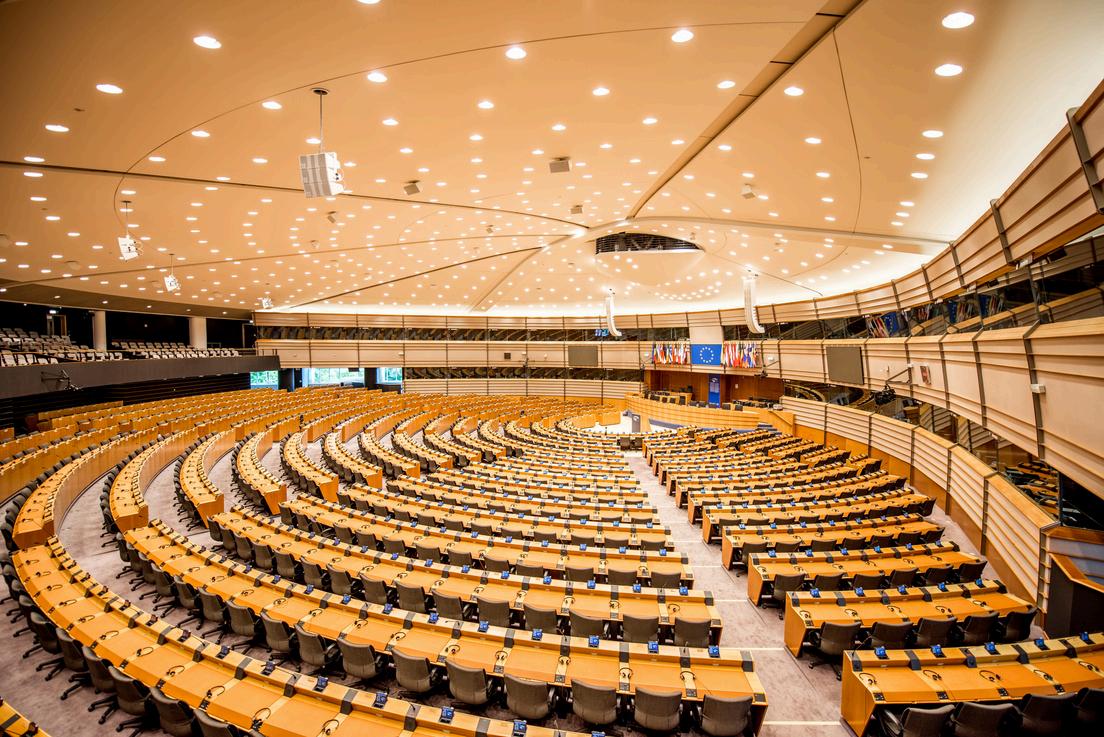
targets for EV penetration and manufacturing, aiming to achieve 30% electric vehicle sales by 2030 and become a global hub for electric vehicle manufacturing
The National Electric Mobility Mission Plan (NEMMP) is another key policy framework driving India's electric mobility transition Launched in 2013, NEMMP outlines a comprehensive roadmap for promoting electric mobility in the country, focusing on areas such as vehicle manufacturing, charging infrastructure development, battery technology, and research and development By providing a strategic framework and direction for electric mobility initiatives, NEMMP plays a crucial role in coordinating efforts across government agencies, industry stakeholders, and other partners
Moreover, state governments in India are also implementing their own policies and incentives to promote electric mobility at the regional level. States such as Karnataka, Maharashtra, and Delhi have introduced various initiatives, including subsidies, tax exemptions, and infrastructure incentives, to encourage the adoption of electric vehicles and support the growth of the electric mobility ecosystem
While government initiatives have been instrumental in driving India's electric mobility transition, challenges remain in achieving the ambitious targets set for EV adoption These include addressing infrastructure gaps, ensuring affordability and accessibility of electric vehicles, developing indigenous battery manufacturing capacity, and overcoming consumer perceptions and awareness barriers
In conclusion, government initiatives play a pivotal role in shaping India's electric mobility transition, providing the necessary policy support and incentives to accelerate the adoption of electric vehicles By implementing robust policy frameworks, incentivizing investment, and fostering innovation and collaboration, the government can pave the way for a cleaner, greener, and more sustainable future for transportation in India.
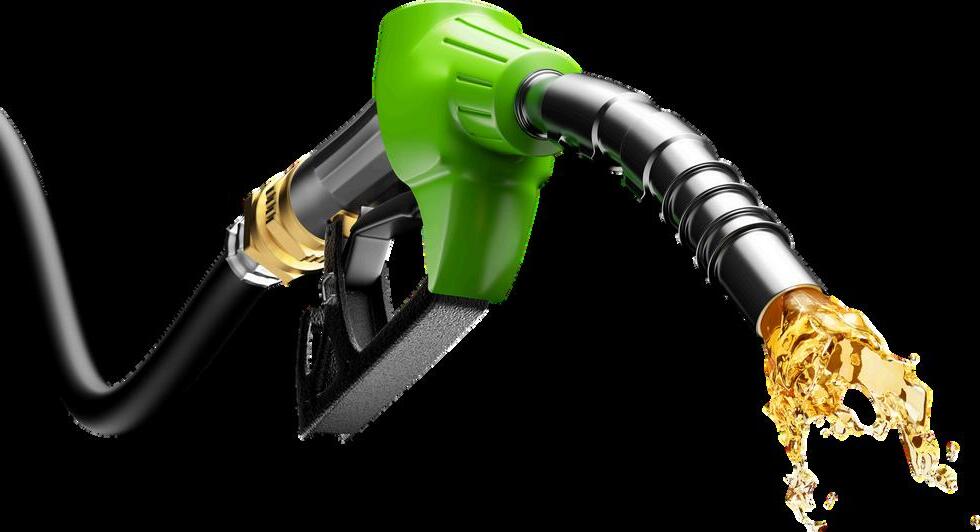
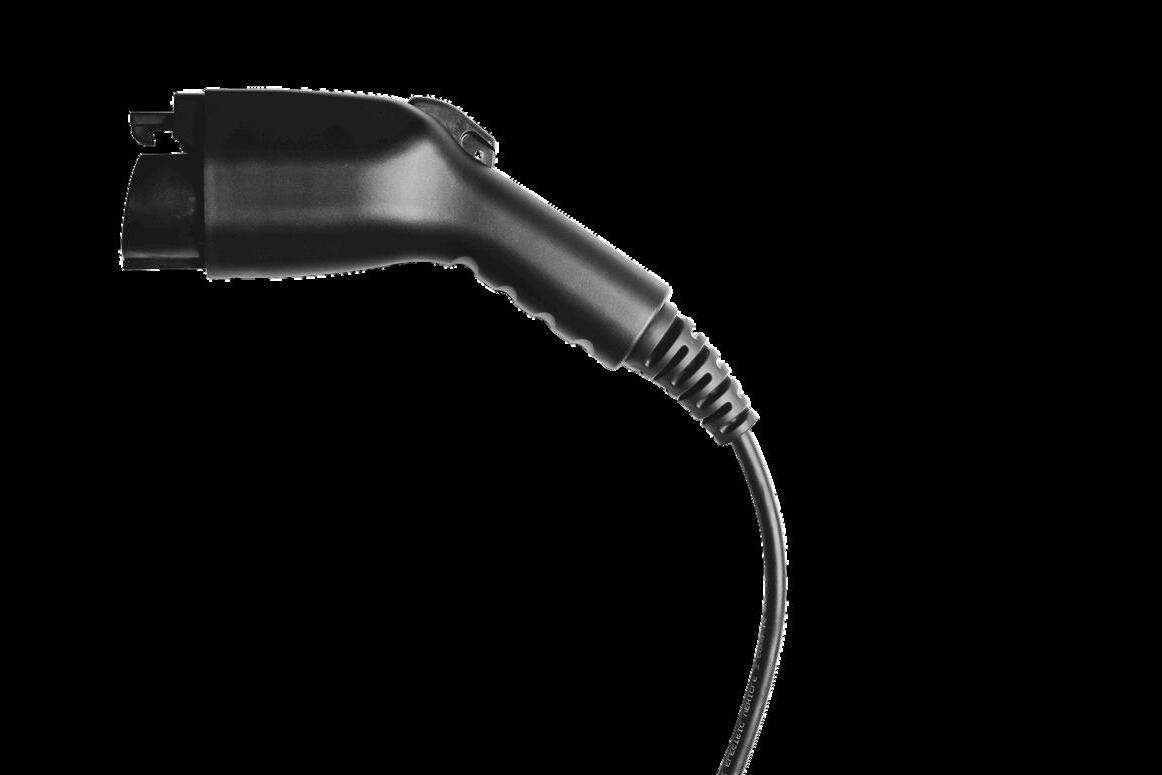
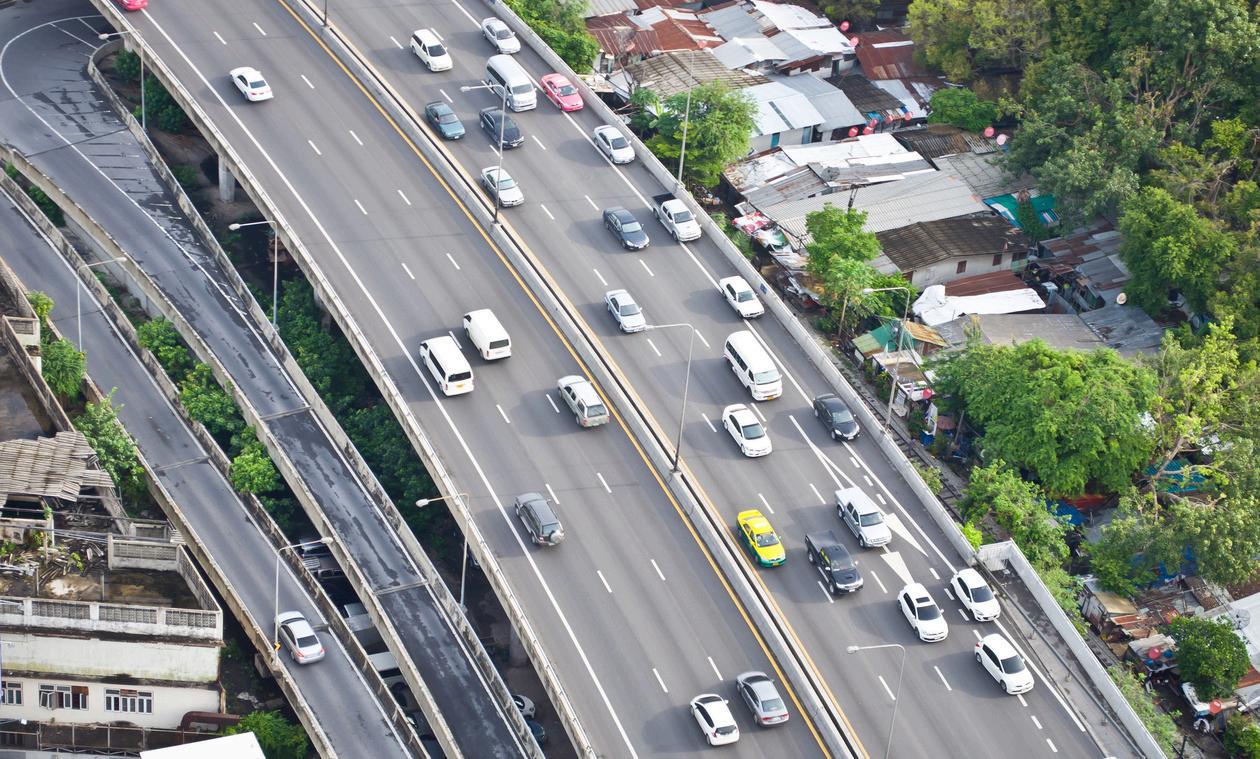
POLICY RESEARCH STORY



E-Mobility+ publications, distributed pan-India, sets a new standard in EMobiliy+ energy media. With over 200+ and a growing list of advertisers, we work with who's who in the industry across our platforms from print magazines to social media platforms put their brands first and ensure the best delivery of the marketing needs.

Ensures best delivery of the marketing needs
Customizable Product Layout
Highest Circulation & Readership Well Researched Editorial Content
Most read by Key Decision Makers
There are many great reasons to become an EMobility+ Subscriber Scan me
events insights
updates
Get access to our upcoming
&
SUBSCRIBE NOW! CONTACT US +91-9372788472 Sangeeta Sridhar sangeeta@firstviewgroup.com Shalini Tandon shalini@firstviewgroup.com +91-9821157794




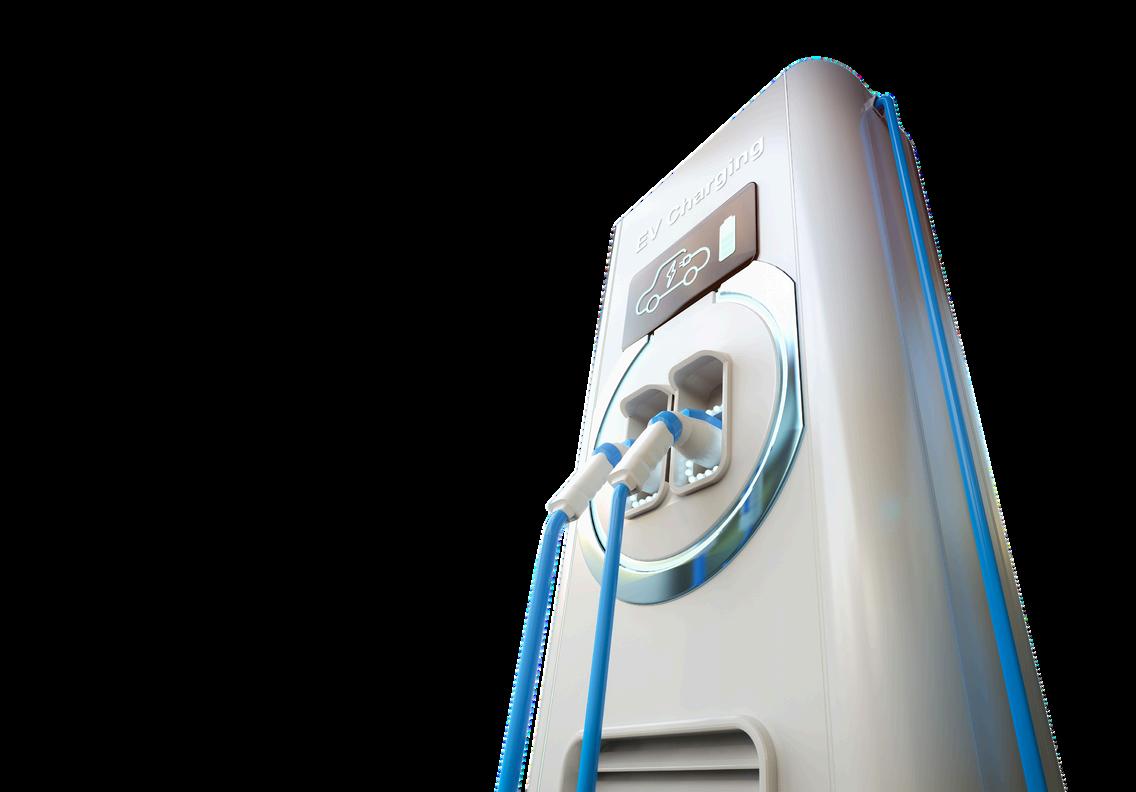









SH W2024 INDIAFLEET ELECTRIC, SMART & CONNECTED PRESENTS BATTERY EV SHOW2024 Fri, 13 Sep, 2024 EV MANUFACTURING SHOW EV CHARGE INDIA20 24 Fri, 13 Dec, 2024 Ahmadabad STATE SUMMIT GUJARAT 24 0 2 Fri, 18 Oct, 2024 Chennai STATE SUMMIT TAMILNADU 24 0 2 Hyderabad Fri, 28 Jun, 2024 STATE SUMMIT TELANGANA 24 0 2 UPCOMING EVENTS STATE SUMMITS SERIES New Delhi Fri, 22 Nov, 2024 New Delhi 2024 Thu, 23 May, 2024 Bengaluru Fri, 02 Aug, 2024 New Delhi CONNECTING THE EMOBILITY INDUSTRY LOCALLY AND GLOBALLY Save the Dates for our 2024 Physical Conferences! GET IN TOUCH: Shalini Tandon shalini@firstviewgroup.com +91 98211 57794 Sangeeta Sridhar Sangeeta@firstviewgroup.com +919372788472













































































































 Chief Business Officer
Chief Business Officer





































